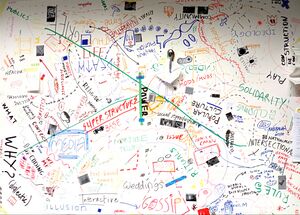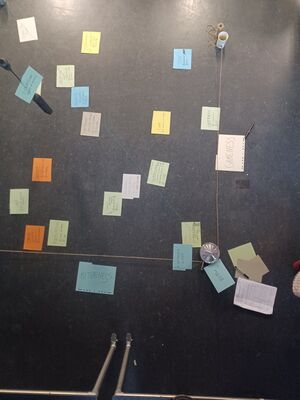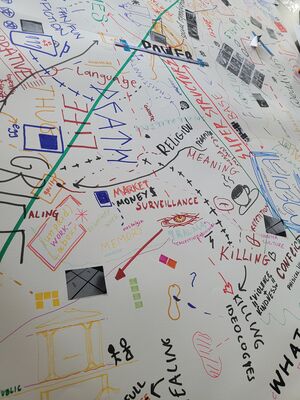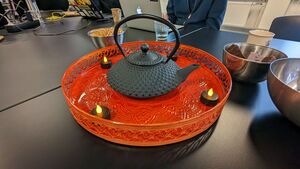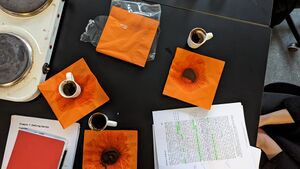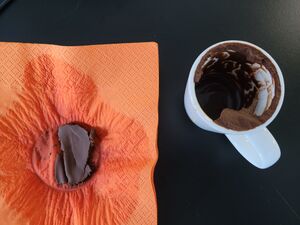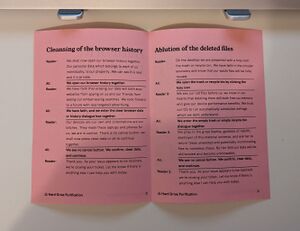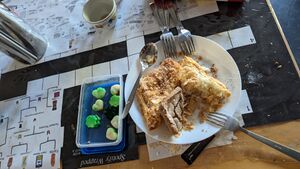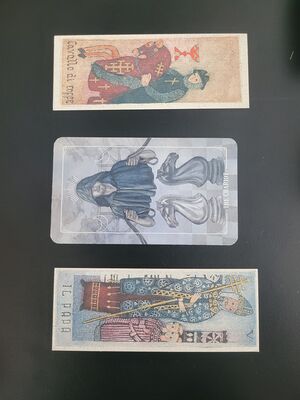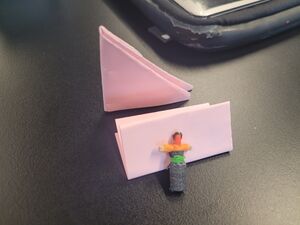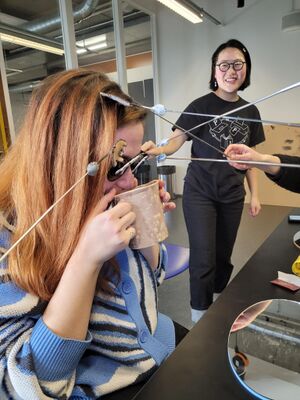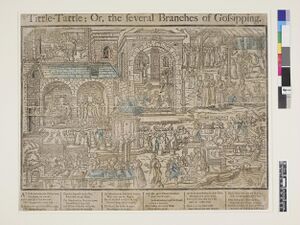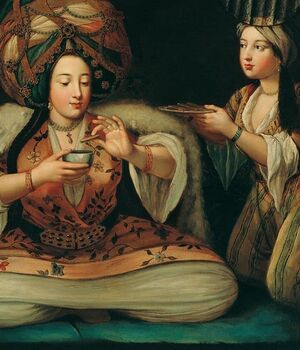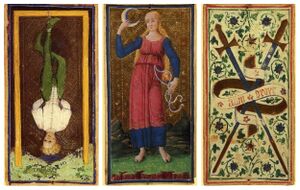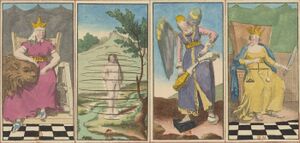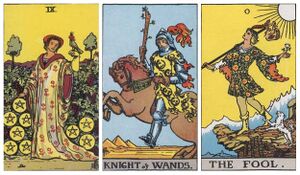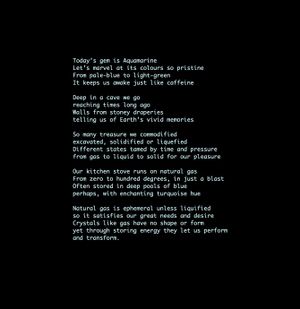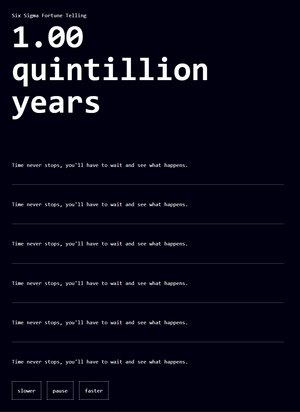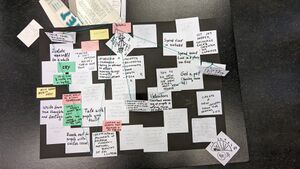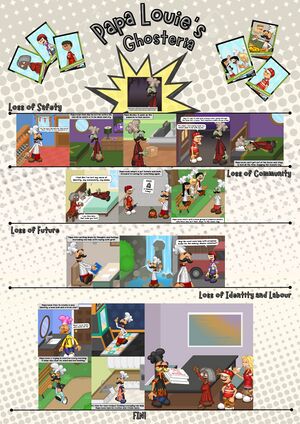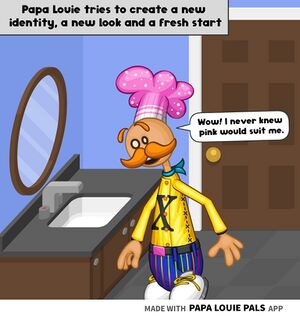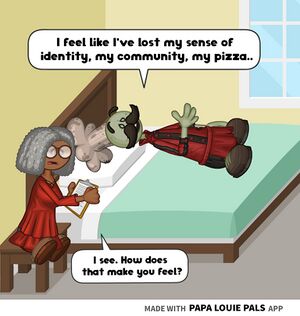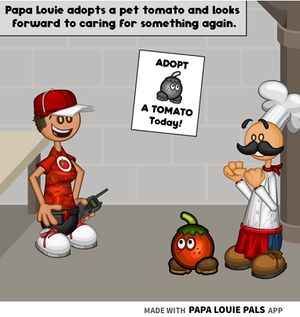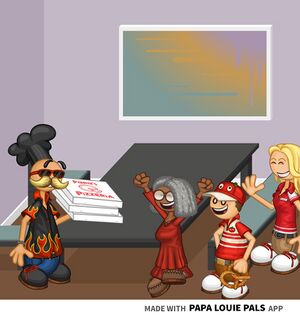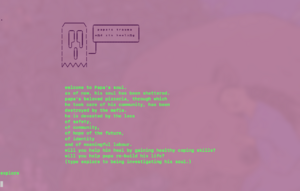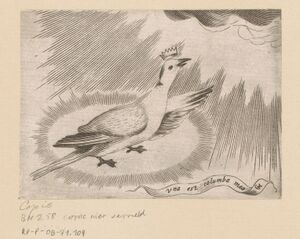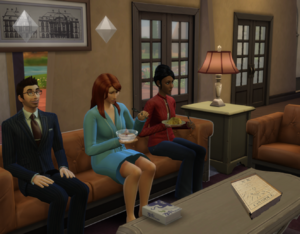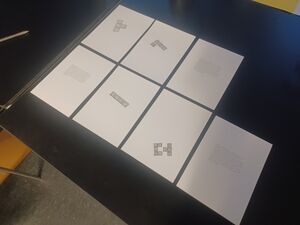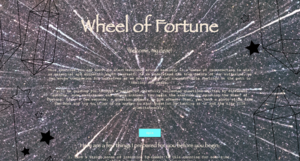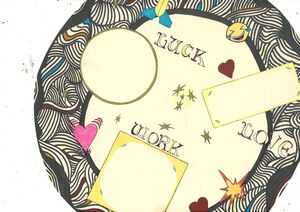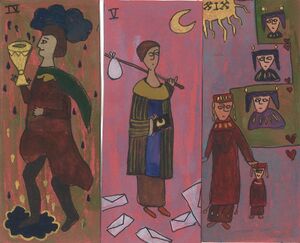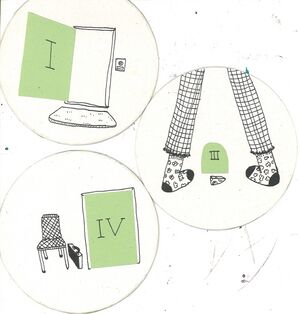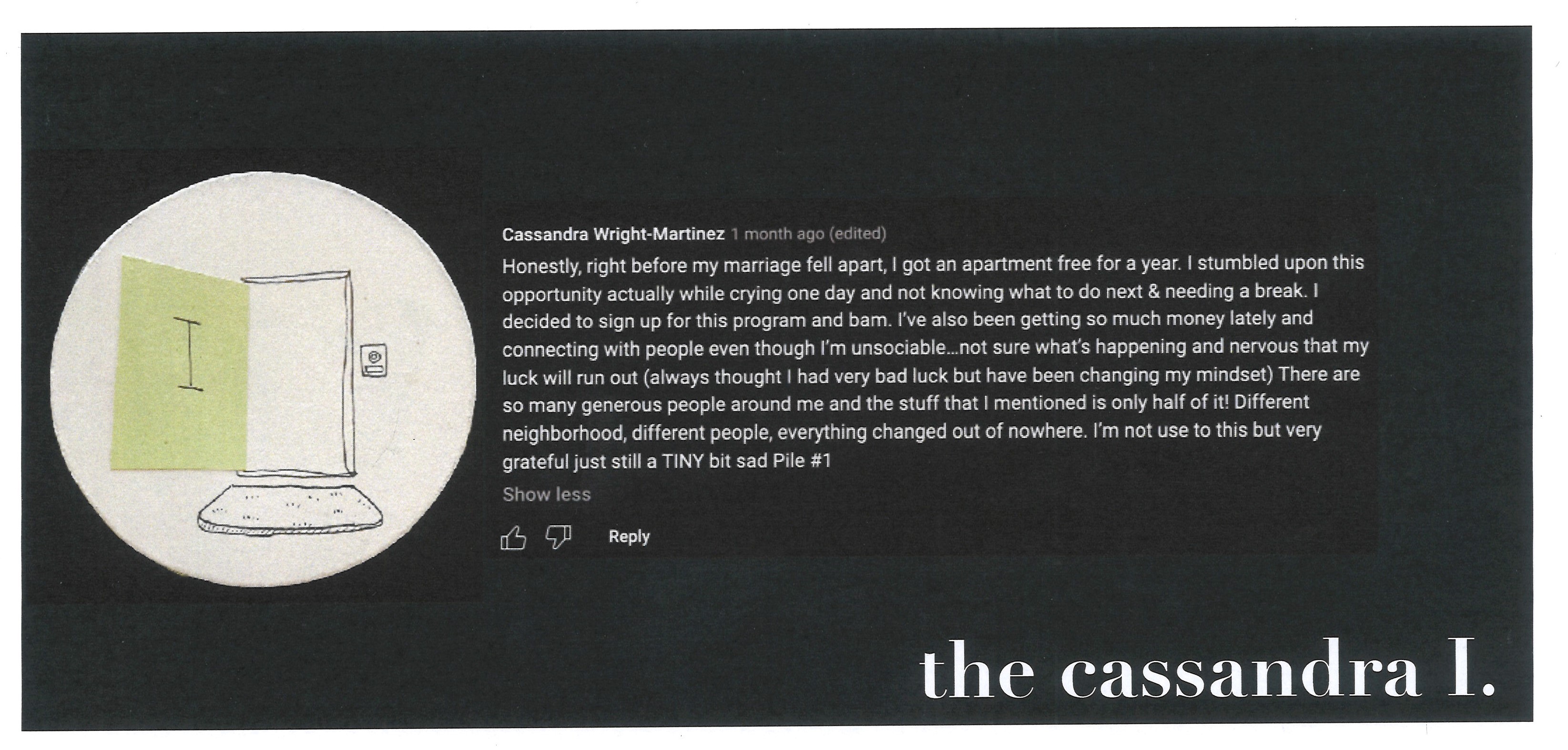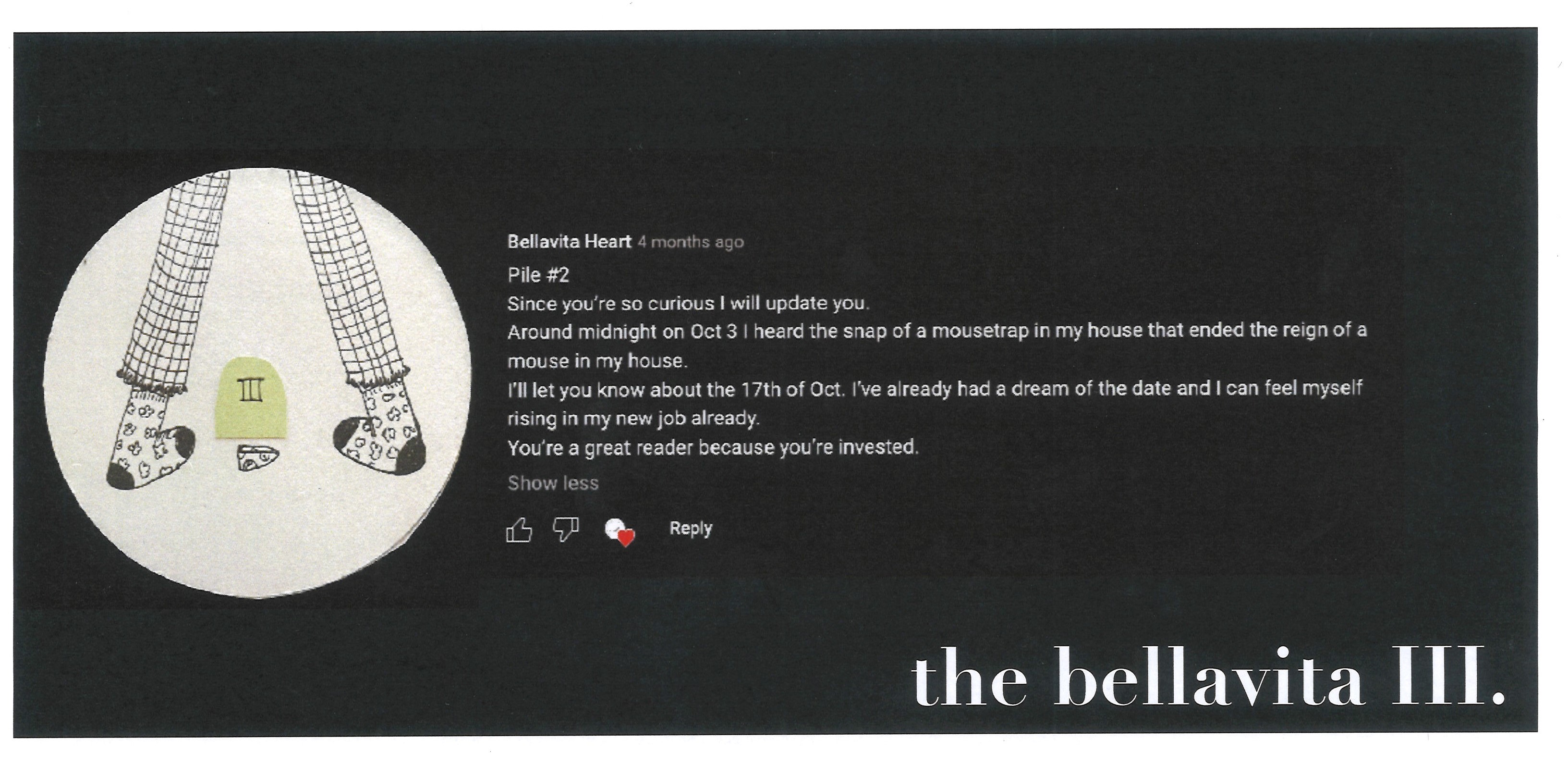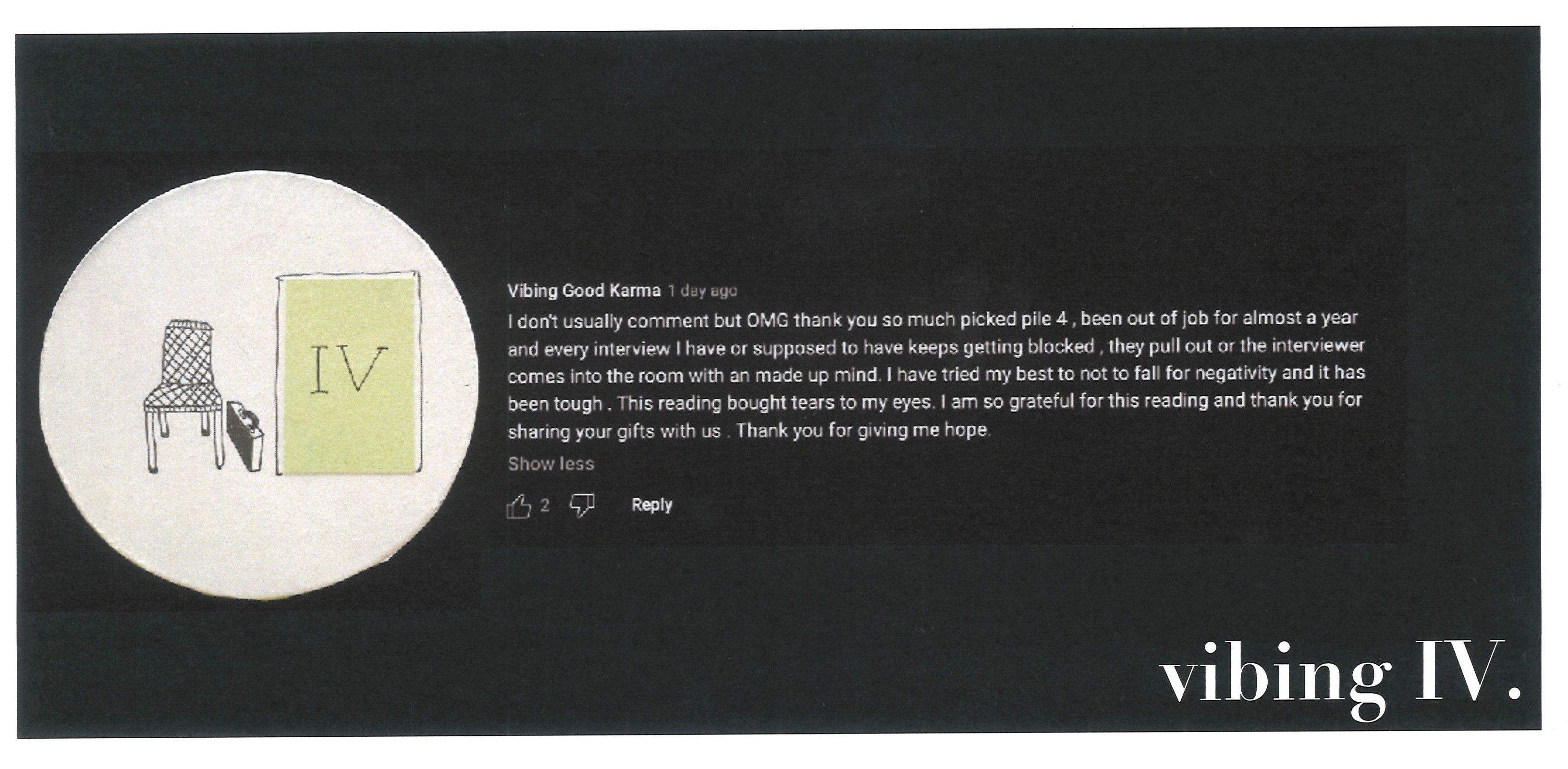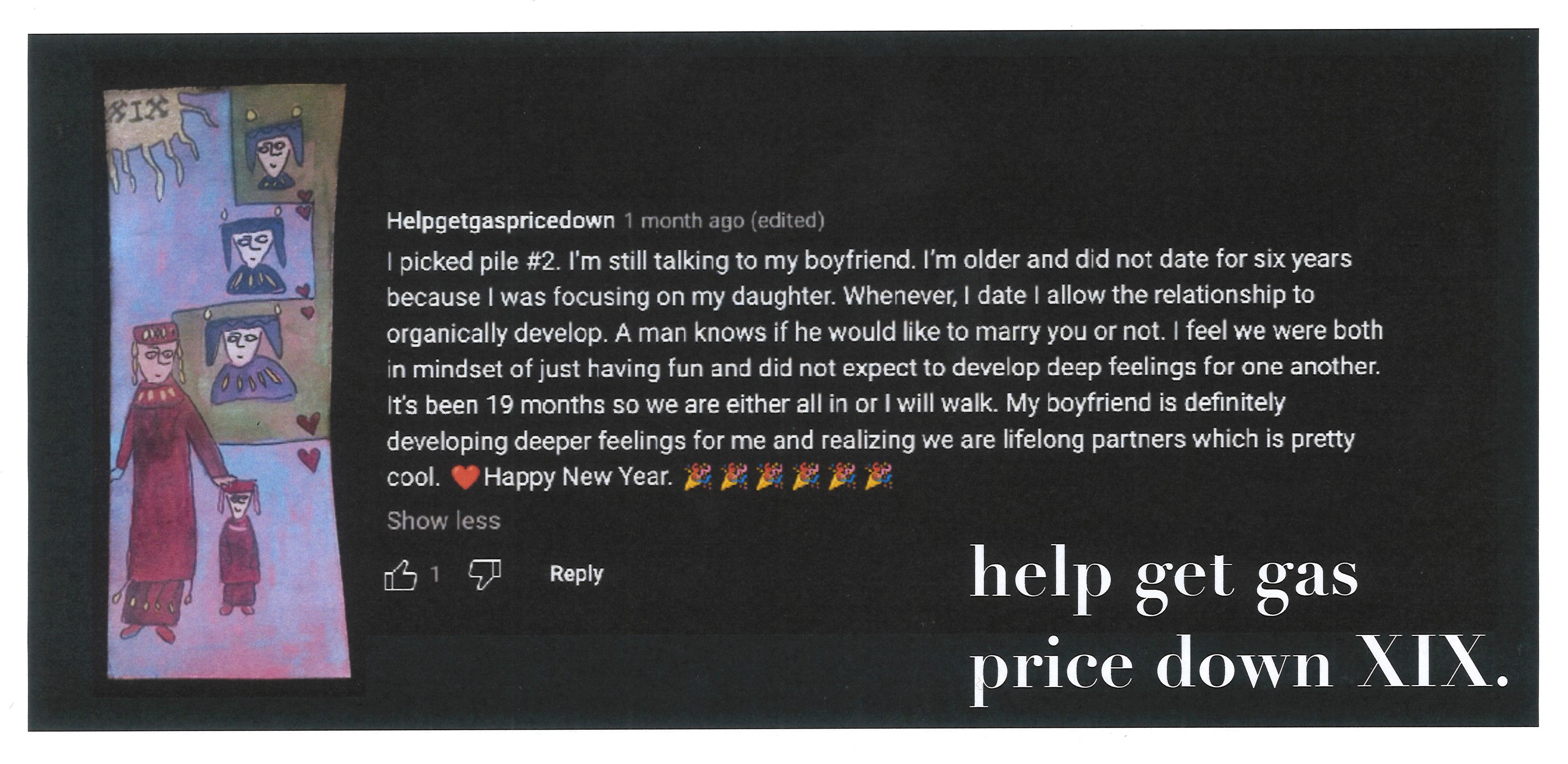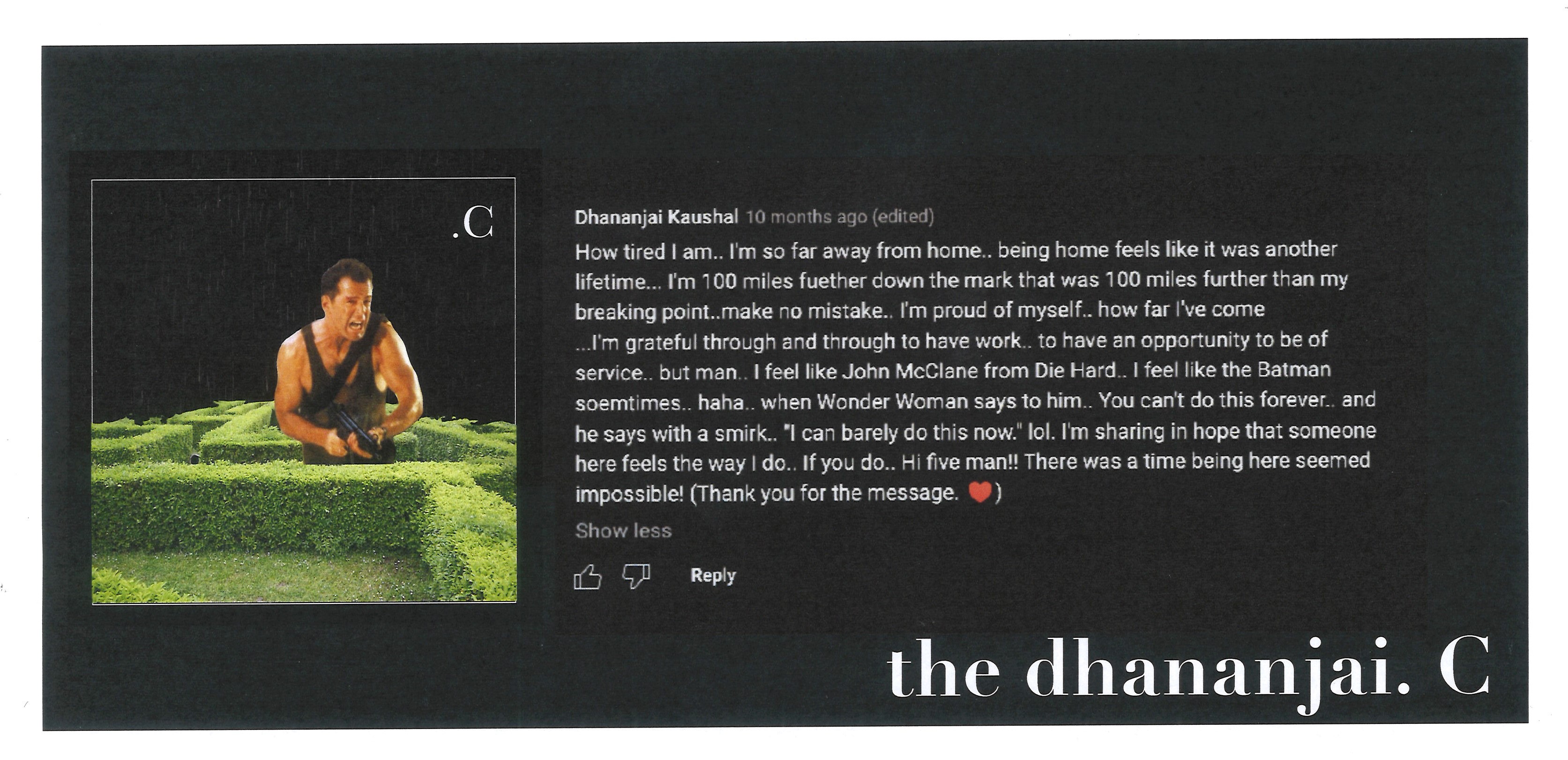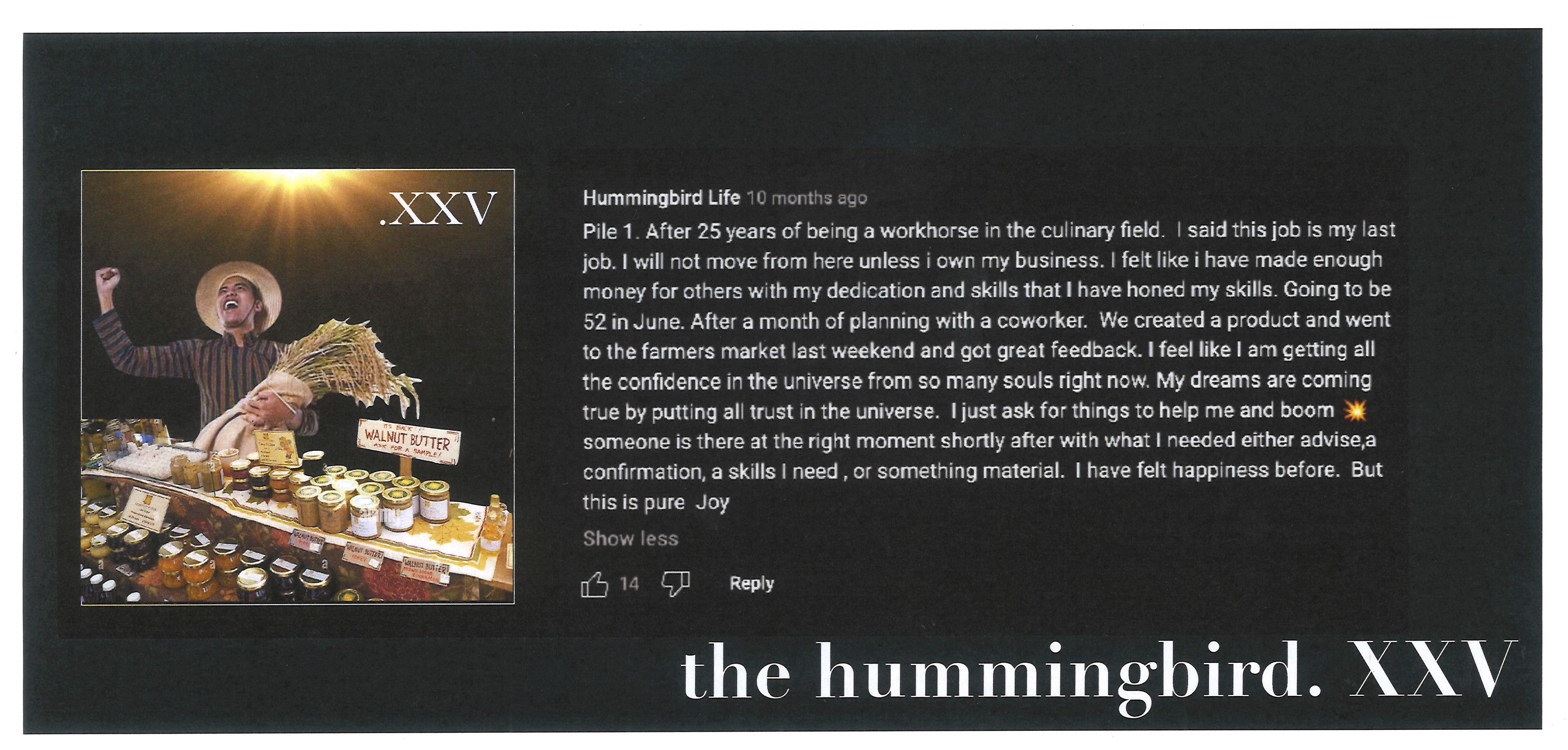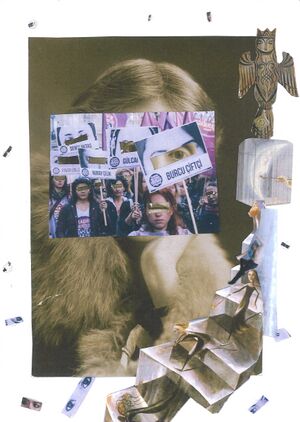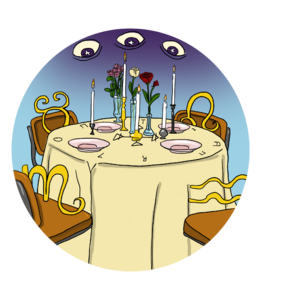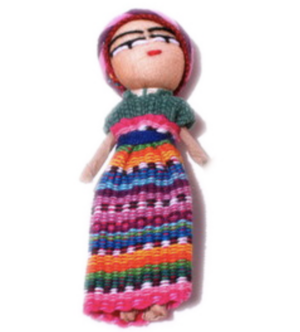Sixx-book
This book was generated by interrupting a web2print process at a specific point. Markdown files are the original sources for the articles and essays below, which were then converted to html using pandoc. The html is then loaded through paged.js as a polyfill, which has the side effect of duplicating the origianl content. This html was then converted to markup using a free online convertor from vertopal.com. The markup was copy pasted into a mediawiki page at pzwiki.wdka.nl. Finally, the wiki page was printed using Chrome's built in print function, Ctrl+P.
From: Snapshot-Content-Location: https://issue.xpub.nl/20/00-booklet//booklet.html Subject: Date: Sun, 2 Apr 2023 16:49:09 -0000 MIME-Version: 1.0 Content-Type: multipart/related; type="text/html"; boundary="----MultipartBoundary--6roxzWRK6CKivCgvoSHH15LKrLUODBcEFRRQy35KS4----" ------MultipartBoundary--6roxzWRK6CKivCgvoSHH15LKrLUODBcEFRRQy35KS4---- Content-Type: text/html Content-ID: Content-Transfer-Encoding: binary Content-Location: https://issue.xpub.nl/20/00-booklet//booklet.html
Co-published by:
Experimental Publishing,
Willem de Kooning Academie,
Wijnhaven 61, Rotterdam
Page Not Found
Space for publishing as artistic practice
Boekhorststraat 126-128, Den Haag
Licensing Information
This publication is free: you can redistribute it and/or modify it under the terms of the SIXX License as published by XPUB, either version 1 of the SIXX License or any later version.
See the SIXX License for more details. You should have received a copy of the SIXX License along with this publication. If not, see issue.xpub.nl/20/license
XPUB
XPUB is the Master of Arts in Fine Art and Design: Experimental Publishing of the Piet Zwart Institute. XPUB focuses on the acts of making things public and creating publics in the age of post-digital networks. More at xpub.nl
/XX
This publication took labour to produce, so exists in a limited edition. Separate thou the earth from the fire, the subtle from the gross sweetly with great industry.
CONSOLE
xpub special issue xx
Console is an oracle; an emotional First Aid Kit that helps you help yourself. Console invites you to open the box and discover ways of healing. Console provides shelter for your dreams, memories and worries. Face the past and encounter your fortune. Console gives you a new vantage point; a set of rituals and practices that help you cope and care. Console asks everyday questions that give magical answers. Are you ready to play?
Ada ♏︎, Aglaia ♒︎, Boyana ♊︎, Cara ♊︎, Stephen ♈︎, Suzan ♏︎
❤️
this publication was made possible thanks to:
Lídia Pereira ♈︎ (ed.)
Artemis Gryllaki ♐︎ (ed.)
Manetta Berends ♉︎
Joseph Knierzinger ♑︎
Steve Rushton ♑︎
Leslie Robbins ♉︎
Michael Murtaugh ♏︎
Sébastien Tien ♈︎
Eva Örk ♍︎
Ola Vasiljeva ♉︎
and everyone from Page Not Found ♒︎
Shana Moulton ♋︎
Rihanna ♓︎
The Sun is its father ☉
The Moon its mother ☽︎
The Wind hath carried it in its belly 🜁
The Earth is its nurse 🜃
Contents
- Introduction
- Games and Rituals, Kick off sessions
- Monday Morning Rituals
- Click-Click
- Fruitual (fruit + ritual)
- Some Gossip on Gossip
- History of Tarot
- Holographic Oracle Deck
- Long Time
- Pacifist Fortnite
- Papa Louie’s Ghosteria
- Peace
- Sims Mod
- Super(de)construction
- Tetris Fantasies
- The Wheel of Fortune
- Youtube Tarot
- Fiction Friction
- Oracolotto
- The Wheel of Fortune
- The Legend of the Worry
- Bibliography
- SIXX license
- Colophon
Introduction
This Special Issue has been an attempt to understand games and rituals. Instead of an introduction, we will try to unravel this mysterious journey as well as keep questioning and collaging.
We mapped the common characteristics and the differences between games and rituals in relation to ideology and counter-hegemony. We practiced, performed and annotated rituals, connected (or not) with our cultural backgrounds while we questioned the magic circle. We dived into the worlds of text adventure games and clicking games while drinking coffee. We talked about class, base, superstructure, (counter)hegemony, ideology and materialism. We discussed how games and rituals can function as reproductive technologies of the culture industries. We annotated games, focusing on the role of ideology and social reproduction. We reinterpreted bits of the world and created stories from it (modding, fiction, narrative) focusing on community, interaction, relationships, grief and healing.
The eventual outcome of this process is a console, a magical object, a wooden container, a promise of healing. How can the unpacking of games, rituals, ideology and superstructure in relation to witch hunting become the midwife of a healing box? How can practices of healing and care work as counter-hegemonic acts which cure and liberate our souls and bodies from patriarchal and capitalistic fetters?
We didn’t manage to provide you with comprehensive answers or conclusive statements. The truth is that this wasn’t our plan. Our intention was to create openings for debate or even conflict, to map a territory, to invite those who would like to join us.
“What if you are playing tetris and the tetris gods give you something apart from the usual seven tetrominoes, like an unexpected pregnancy or the end of capitalism?” (Stephen).
Starting with rituals, we claim that they can be understood as instruments in the struggle for the exercise of power. Organized by repetition, they (re)connect the individual to the collective, creating a vision towards a given perception of society. Participation in this creative act is determined by several factors: a ritual’s function, its relationship to hegemonic power, a collective’s politics and objectives, etc.
“Ritual is a means of performing the way things ought to be in conscious tension to the way things are in such a way that this ritualized perfection is recollected in the ordinary, uncontrolled, course of things. Ritual relies for its power on the fact that it is concerned with quite ordinary activities, that what it describes and displays is, in principle, possible for every occurrence of these acts. But it relies, as well, for its power on the fact that, in actuality, such possibilities cannot be realized” (Smith, 1980).
“Ideology talks of actions: I shall talk of actions inserted into practices. And I shall point out that these practices are governed by rituals in which these practices are inscribed, within the material existence of an ideological apparatus(…)Ideas have disappeared as such to the precise extend that it has emerged that their existence is inscribed in the actions of practices governed by rituals defined in the last instance by an ideological apparatus” (Althusser, 1970).
Similarly, videogames create worlds. Often, those worlds mirror our own, reproducing certain ideals and values as norms through their narrative, game play, design. This trimester we explored world-building characteristics found both in rituals and videogames. We critically considered those worlds, identifying the key points and elements through which specific videogames and rituals circulate political, cultural and social values. While this world-building might be interpreted from an angle of implicit and explicit bias rooted in hegemonic values, we investigated the generative, creative possibilities of such characteristics.
“The main task of mass culture is to create, reproduce, and manage particular kinds of subjects — workers, consumers, individuals, citizens — required for current conditions. To perpetuate their own existence, mass media must succeed at representing the violent coercion of capitalist systems as natural laws: Of course you have to pay rent to live inside; of course you have to buy food to eat; of course you have to work if you want to survive. The production of a fungible, disposable and migratory working class requires the alienation and atomization of communities into individuals, which involves destroying the village, kinship structures, indigeneity, and many other previous forms of meaning-producing structures, leaving a gap which ideology must fill. While the fundamental structures of domination — racism, patriarchy, heterosexuality, etc. — form the bedrock of this ideological apparatus, the complexity of the always expanding and changing capitalist system requires an equally flexible set of subsidiary tools capable of rapidly adjusting ideology en masse. In general, media emerge not to meet the demands or desires of individual users but to accommodate what the predominant mode of production requires” (Osterweil, 2018).
Our intention was to look into rituals and their overlap with video games as a way to explore “forbidden” or otherwise lost knowledge erased by oppressive systems (e.g. witch hunts). Understanding games and rituals as gateways to alternative ways of relating to Nature, each other and (re)production of life, labour, etc, we played together by writing fan fiction and spells, developing rituals, analysing and creating games together.
“Sims as social reproduction: some values are certainly given by the game (make money to buy nicer things, progress in your career by doing tasks that improve your skill, charisma is a skill but not kindness) , but also ideology is put into the game by the player. The player chooses what to reproduce and often share in the “gallery” or on social media. Community being so important in this game then means that the crux of the social reproduction is happening when the choices you have made in the game are broadcasted. Did you create a heteronormative white thin nuclear family that made a lot of money? Or did you choose to play differently?” (Ada).
“The Communist Party of Second Life (CPSL) aims to be a Marxist, internationalist and revolutionary organization for all communists in Second Life. The CPSL aims to spread understanding of Marxism among SL citizens, to organise support in SL for the class struggle in RL, including all struggles of the working class against imperialism and the bourgeoisie, its state and wars” (keksakallu.klata).
“The act of the modder’s appropriation of the pre-existing game is also similar to Michel de Certeau’s cultural ‘poaching’. De Certeau’s everyday bricolors make do with remixing the privatized spaces and products of consumer society that they find themselves inhabiting and using. Rather than being passive consumers, ordinary people invent varied subversive tactics for stealing back the given of everyday life. De Certeau writes, ‘Everyday life invents itself by poaching in countless ways on the property of others’” (Schleiner, 2017).
Meanwhile, we explored the figure of the witch as a magical practitioner, as a resisting body, a border figure. “Federici presents the witch”as the embodiment of a world of female subjects that capitalism had to destroy: the heretic, the healer, the disobedient wife, the woman who dared to live alone, the obeha woman who poisoned the master’s food and inspired the slaves to revolt.” Behind the witch hunt, she uncovers a joint effort by the Church and the state to establish mechanisms of gendered control of bodies that immanently resisted newly instituted regimes of productive and reproductive work” (Timofeeva, 2019).
“Sorcerers have always held the anomalous position, at the edge of the fields or woods. They haunt the fringes. They are at the borderline of the village, or between villages. But sorcerers not only exist at the border: as anomalous beings, they are the border itself. In other words, the borderline passes through their bodies” (Deleuze, Guattari, 1980).
How does the understanding of the hunting of the witches that happened a few centuries ago in relation to the figure of the witch as a marginal, rebellious entity shed light on contemporary witch-hunting? How does this knowledge provide us with tools of empowerment, emancipation and resistance, and make us reimagine counter-hegemonic practices of collective care and healing?
DOCUMENTATION
Games and Rituals, Kick off sessions
We are looking at rituals and their overlap with video games as a way to explore “forbidden” or otherwise lost knowledge erased by oppressive systems.
On Rituals and Traditions
What is a ritual? And tradition? What makes a ritual “ritual”, and how does it differ from the traditions? Or are the two the same thing? What do rituals and traditions mean through the lens of culture, location and time? These and other questions we asked ourselves and one another during the first few collaborative sessions of this Special Issue. We kept talking and reading for hours about the commonalities and differences between the two. There is a lot to explore! We went down memory lane and shared memories, childhood recollections, and personal stories. Perhaps, dear reader, you have your thoughts on this too?
But let’s enter a parallel universe!
On Game and Play
What is a game? And play? What makes a game “game”, and how does it differ from play? Or are the two the same thing? What makes a game? It is the rules, the limitations, or perhaps the wins and the losses. Do you really need to win in order to play? Or were you being played? To try to answer some of these questions, we read and collectively annotated the chapter “Defining Games” from the book “Rules of Play - Game Design Fundamentals” by Katie Salen and Eric Zimmerman. We discovered that games and rituals alike are the gateways to alternative ways of relating to Nature, each other and (re)production of life.
We played together by writing fanfiction and spells, developing rituals, and analysing and creating games. What emerged as a tangible result from all these discussions is this experimental publication you are holding in your hands right now. We named it Console.
Another thing that came out of our first two sessions was the One Sentence Ritual. Each week for six weeks in a row, we wrote down a ritual of our own and took turns performing the ritual from the list. Coffee fortune-telling, hard drive purifications, collective eating, sound meditations, and talking to worry dolls made us reflect on the content of the week and our lives.
Monday Morning Rituals
For eight weeks, students from XPUB prepared a ritual to perform at the top of Monday morning class. We explored cultural rituals such as the birthday cake and coffee-ground reading, but also more personal rituals such as ‘going to sleep’ rituals, a personal hard-drive purification, and the creation of worry-dolls.
Week 1, January 9th 2023: Tea and Cookies
Performed by Artemis and Lídia
Artemis and Lídia introduced us to Monday Morning Rituals on the first cold, dark, wintery Monday morning. We shared cookies with tea as a way to open up the semester and get to know each other. The ritual of a hot drink and cookies is well-known around the world as a moment of gathering, peace, gossip, and self-care.
Week 2, January 16th 2023: Coffee Fortune-Telling
Performed by Aglaia
For Aglaia’s ritual, we sat in a circle while the coffee was being prepared by the ancient Stove priestess placed in the middle. When done, it was served to the participants in special coffee cups. We drank our coffee while gossiping and eating cookies. When everybody finished, we swirled the cup counter-clockwise three times and turned the coffee cup upside down over the cup’s saucer. We waited patiently for five minutes for the fortune to be prepared. Everybody had to tell the Fortune of the person sitting on their left side by reading the coffee grounds until we completed the circle.
Week 3, January 23rd 2023 Hard Drive Purification
Performed by Stephen
Stephen prepared a few zines with instructions to conduct a ceremonial cleansing of not only our browser history and cookies but also our trash cans/recycle bins. All operating systems were welcome. The zine was a reminder to ‘clean’ messy space up (for yourself), written in such a way that instructed us to recite sentences at the same time, with one person leading the group – a play on the magic circle.
Week 4, January 30th 2023: Birthday Cake
Performed by Boyana
To celebrate Aglaia’s birthday, Boyana baked a cake, and Ada made jellies. We sat in a circle around the cake. The person who had their birthday most recently sliced the cake, and we took turns to wish them our blessings. After going through a round, we ate together.
Week 5, February 6th 2023: Special Issue Prediction Ritual (SIPR)
Performed by Ada
For Ada’s ritual, Ada brought in a deck of tarot cards to read the fortune of the Special Issue you are holding in your hands right now.
Her text made us laugh, and we have chosen to include it in full:
“The priestess Ada will start the ritual by playing the ceremonial music on the sacred Spotify. Candles shall be turned on. Then three human sacrifices will be selected amongst the group through a collective decision. The three sacrificial people will then select three cards from either of the two decks given by the priestess. While they do so, they must think of the special issue. The priestess will then interpret the cards and together we shall rejoice in having found out our Special Issue’s future.”
Week 6, February 13th 2023: Guided Meditation (A Nighttime Ritual)
Performed by Cara
Cara’s ritual relates to her history of having a hard time falling asleep at night. Over the years, she has found that music - especially quiet music with the sound of nature (field recordings) – really helps her fall asleep. She DJs outside of class and plays a lot of ambient, narrative DJ sets. For her ritual, she played a sound piece made of field recordings around Rotterdam (the sound of water lapping against a water taxi, the sound of wind, the sound of rain) and read a poem about sleeplessness from a collection of literature about the Night. The ritual meant to lull everyone to a moment of peace.
Week 7, February 20th 2023: Worry Dolls
Performed by Irmak
Irmak’s ritual was about how to ease our worries. We wrote down our worries on a pink piece of paper and shared them with a handmade doll that Irmak brought. These dolls are called Worry dolls (also called trouble dolls; in Spanish, Muñeca quitapena) and originate from Guatemala. There is one in each box of our special issue.
Performed by Chae
Special Guest Chaeyoung Kim joined us in a ritual involving drinking tea, steaming glasses and collective healing through care and conversation. Over bubbling background sounds, we talked about our experiences of a recent global pandemic that had an effect on us all, and we recreated the isolating experience of wearing glasses with a mask. Finally, we wiped each others glasses back to clarity, from a distance but somehow at the same time closer.
click-click, the clicking game — a matter of accumulation
A couple of months ago, I didn’t even know clicking games existed. When I played for the first time, I couldn’t understand why people were intrigued enough to devote themselves to clicking, and I still struggle to understand it. I wanted to create a clicking game that would highlight the act of clicking to the player through the interface of the screen. People would see a hand clicking on their screen, and then at the next stage, a person in front of a screen (with a hand clicking) clicking etc. My poor java script skills didn’t allow me to realise my initial idea, so eventually, I came up with a really simple version of the click_click game. People click on the click button that makes a “click” sound. Every time they click, a new button is generated. The aim is to click and accumulate bricks. A repetitive performance. You click, you gain. The game ends when you fill your screen and build a wall of click buttons. Then the screen clears automatically, and a small victory message appears. What happens when the only function performed is clicking? Nothing, I guess.
Fruitual
text adventure game about fruits and rituals
Creating a text adventure game is no easy feat. It takes a lot of time, creativity, trial and error. The key to creating an interesting game is putting yourself in the player’s shoes and making sure there are plenty of fun twists and turns along the way.
I decided to keep my game simple and tell a linear story. I used a web engine called Twine (twinery.org, an open-source tool for telling interactive, nonlinear stories) to help generate the game’s storyline, and I adapted the script from a Bulgarian fairytale (“The Most Precious Fruit”). But things didn’t always go smoothly. When the python script started generating the wrong messages for players who strayed from the script, I tried to find solutions on StackOverflow, but it was all too complicated for me.
In the end, the game took me around 6-7 hours to make, including writing, coding, mapping, editing, and lots of trial-and-error. It was a great learning experience, but it also taught me that game development can be tough if you don’t have much coding experience. I had to approach it more from a writer’s perspective and figure out the coding later.
I learned that game development is an iterative process, and sometimes your initial ideas might be more complex than what you end up with. It’s all part of the journey. Before starting this project, I had no idea text adventure games existed, but now I’m happy to say I’ve made one in just a few weeks. Lastly, I would like to express my appreciation for the guidance and support provided by our prototyping tutors in developing these projects.
Full story “The Most Precious Fruit” available at: https://fairytalez.com/the-most-precious-fruit/
Some Gossip on gossip and what coffee has to do with it.
In the 12th century, “Godsipp” (God and sib (akin), godmother or godfather) was a word used for both men and women in fables and society. The church also recognized this word. It was used to name companions present at childbirth, e.g. the midwife. Sometimes, it was used to mention close friends. It represented the strong ties between women, which surpassed their relationship with their husbands. Was it witchery that strong and independent women preferred their gossip over their husbands? Well, that is something that hasn’t changed since the middle ages.
“Godsipp” began its journey with nothing but good and emotionally strong connotations. Women bloomed and blossomed among each other and were autonomous in their existence. Men were never a part of this party women were throwing. By the 16th century, as things began to change, the traditional meaning lingered on. In 1602, the word was still used to signify female friendships. This can be seen in Samuel Rowlands’s Tis Merrie When Gossips Meete, a satirical piece describing three London women spending hours in a tavern talking about men and marriages. It implied that ‘women could create their social networks and their own social space’ and stand up to male authority (Federici, 2019).
Solidarity and friendship amongst women were demeaned and female-exclusive parties were banned; women who met in public were identified as “witches” and women’s first duty was now to be obedient and quiet. The talk about husbands at taverns was too hurtful for the sensitive male ego. The public, the church and the law punished women who engaged in “idle talk”. Centuries past, the sensitive male ego remains and continues to attack women from many angles which now include cyberbullying, mobbing at the workspace and other violent iterations.
Wives who were seen as “scolds” and “witches” were forced under sadistic torture with a “scold bridle”. Looking back, I can’t help but see these sadistic, desperate acts as a meek scream of how men couldn’t get even close to satisfying women physically or mentally. If they spent some time working on female anatomy rather than these horrifying torture methods, we would be living in a different world today…
Here is an excerpt from a song which portrays women in a tavern. These words on ale and wine are an ancient remedy for us to consider today when we are out drinking with our “gossips”:
“In a 1630s song, Fowre wittie gossips disposed to be merry, a group of married women in a tavern debate the merits of ale and wine in relation to cost and value. They conclude, ‘If our opinions do not faile: / a quart twelve cups [of wine] containeth, / Its cheaper then a dozen of ale, / where froth and snuffes remaineth’. (‘Snuffes’ was the ‘backwash’ left when, as was common, multiple people drank from a single vessel.) The wives also point out that the after-effects of drinking sack (a Spanish white wine) are much less injurious than those of drinking too much ale. In consequence, they will not suffer hangovers from drinking all night, as all their husbands are” (McShane, 2016).
It was in this context that “gossip” turned from a word of friendship and affection into a word of denigration and ridicule (Federici, 2019).
So what does coffee have to do with it
Fortune telling over coffee stretches back to the 16th century, when the beans made it to the Middle East and the Ottoman Empire. In the Ottoman Empire, concubines in the Harem were banned from talking and “gossiping”. They had a great influence on sultans (although not officially recognized by men themselves), and therefore affected the political decisions and affairs of the Empire. Out of solidarity, women began to perform fortune-telling over the remains of coffee inside and outside coffee cups. This way, they could talk about their fears and inner
worlds freely. I can’t help but see the similarity with the oppression women went through in relation to “gossip”. The striking difference is that fortune telling over coffee didn’t change its connotation with time. Today, it is also an act of solidarity or a chance to “gossip”, one might say.
“In this painting, an Ottoman woman drinking coffee and her maid serving her is depicted. It is known that the painting is from the first half of the 18th century. The work of Jean-Baptiste Vanmour, ‘Turkish Girl Drinking Coffee on the Sedir’ was based on this Ottoman woman, who is the main figure of the painting. The maid, who is positioned on the right side of the painting and serves on her knees, is noticed as the other interesting side of the painting. The large and ostentatious headdress on the head of the Ottoman woman stands out as another element that focuses attention on the work. It is also known that the headdress in question was inspired by the picture of a serpentine woman in the book of the Dutch painter Cornelis de Bruyn, who visited Turkey in the 17th century.”
Whether with gossip or chatting over coffee, women have always found a way to express themselves regardless of oppression. These rituals were performed by women as an act of sisterhood and out of respect for both their inner worlds and each other. It is undeniable that gossip still brings people together and that centuries of oppression failed to change that. Through the centuries, as the word began to be weaponized against women and became a tool to turn against each other, I can’t help but wonder how unfair pop culture has been to women. In any magazine or TV series, anyone can spot a gossip scene
with negative consequences or aim. A woman is sassy, “bitchy” or evil when she gossips, but why do we still let our acts be defined by the misogynistic portrayal of men?
Nowadays, the notions of gossip or fortune telling may be used as something you wouldn’t want to be a part of because it could harm someone. Let’s oppose the negative connotation assigned by men to these words and use them as a joyful gathering. Reclaiming gossip and fortune telling as an intimate support system, a strong web, is the least we can do to honour the women who met at taverns and shared a part of their souls with each other.
How to make the perfect Turkish coffee and some guides for fortune-telling:
- Put two teaspoons of coffee in “cezve”, the traditional pot.
- Add one cup of cold water to the pot. Mix once with the spoon. The ratio is one cup, and two teaspoons of coffee.
- Begin cooking at a low temperature until the top coat gets darker.
- Cook at a high temperature until the point where the coffee begins rising.
- Take the pot off the oven right before it overflows.
- Take the foamy part with a teaspoon and put it in the cup before pouring the rest. This will protect the foam. The foam is important for quality check.
😊
A hypothesized and randomly factual History of Tarot Cards
What follows is the story of a deck of cards and all the more-or-less believable claims made about its origin. This brief history was compiled following sources that attempted accurate historic recalling instead of the most commonly shared semiotic, occultist story. However,
despite all efforts, the found sources told a convoluted tale due to the misinterpretation of age, sources and authorship common to any ancient texts on magic and mysticism (Dummett, 1993). As such, the following text will recall the disproven stories that were told about the origin of Tarot, some factual sourced material and a modern description of its usage.
When we talk about Tarot cards, we are talking about a deck of playing cards composed of ten numeral cards and four court cards (Jack, Knight, Queen and King) for each of the four suits (Swords, Batons, Cups and Coins). Alongside these more common cards, Tarot includes 22 ‘trump’ cards with allegorical illustrations. The trumps form a sequence, usually numbered from 1 to 21, with the single card of The Fool being separated (Decker, Depaulis & Dummett, 1996).
This specific deck of cards’ history begins at the bottom of a well in 1440’s Northern Italy, where we place its first appearance in history. From there on we can easily find links to the common usage of these cards in Northern Italy; from Milano to Bologna and Ferrara (Steele, 1900). These cards, initially called Trionfi and then Tarocchi, are thought to have been intended for card games, regardless of their occasional usage in future-telling (Dummet, 1993). This finding helps us trace a factual beginning of Tarot but leaves an open question as to how these cards gained their place as the primary tool used in modern occultism and mysticism for cartomancy.
While this is where the story begins to get intricate, it is clear that the first wide spread future-telling performance appeared in France in the 18th century. At this point, the history of Tarot was to be influenced by what each fortune teller imagined the history of the cards to be. To fully reveal this, I will first attempt to map the most notable occultists that used the cards and wrote historical notations about their deviance, and the stories they told about them.
The first encounter we have between Tarot, magical theory and practice happens in the Monde primitif, an incredibly long essay about Tarot cards written in 1781 by Antoine Court de Gébelin. With this text, the pastor began what would be the endless repository of arcane esoteric wisdom within Tarot that would follow the cards for generations (Chisholm, 1911). In this text, Gébelin attributed the cards’ origin to ancient Egypt, a theory that is to this day accepted as truthful. This belief was based on an erroneous link to The Book of Thoth, an ancient Egyptian text about magic that is believed to have been spread through Europe by Romans. This belief was then substantiated with a similar essay by Comte de Mellet (Decker, 1993). Promptly, a Parisian fortune teller named Jean-Baptiste Alliette, professionally known as Etteilla, having found these theories, adapted the esoteric view of the cards to his own uses. He switched his own practice from traditional French piquet cartomancy to the use of a self-made Tarot card deck. This deck was based on the previously shared Hermetic ideologies and was named The Book of Thoth (Decker, 1993).
The next fundamental spin that was applied to the cards’ background was done by Éliphas Levi, another French esoterist. Levi repudiated Etteilla’s theory and integrated a version of the cards that were closer to the original than his own Cabalistic magical system. While Levi’s understanding of the cards’ travel from Egypt to Judea and into Jewish tradition was historically mistaken, it nonetheless revolutionized Tarot in ways that survive to this day. His Cabalistic theory about signs being letters, letters being absolute ideas and absolute ideas being numbers can still be seen in modern iterations of Tarot.
At this point, Tarot’s journey speeds up as the cards leave France and become absorbed into new esoteric movements like Swedenborgianism, Mesmerism and Spiritualism (Decker, Depaulis & Dummet, 1996).
Before we make another jump through time towards the next relevant development of Tarot, I will share the last of the three false widespread theories about the origin of Tarot (the first two being ancient Egypt and Judaism, despite the latter’s influence on modern Tarot).
This last theory is harder to trace back to one esoteric influence, and it claims a Chinese origin to the cards. This is most likely due to the similarity between Tarot and the I Ching, a divination manual from around 1000 BC. This manual was grounded in cleromancy, i.e. the production of random numbers with the purpose of predicting divine intention. However, there is no traceable connection between Chinese cleromancy and Tarot divination. Modern analyses of Chinese Tarot divination draw a direct correlation between Western occultism and Tarot divination, leaving little room to imagine any direct causation starting from China (Fu, Li, Lee, 2002).
The next big step will bring us to Britain in the late 19th century, to the Hermetic Order of the Golden Dawn. The Golden Dawn was a secret society devoted to occult Hermetic Kabbalah and one of the largest single influences on Western occultism as a whole (Jenkins, 2000). While the society itself had a wide curriculum including astrology, alchemy and geomancy (soil divination), our concern at this moment are their links to
Tarot cards. In 1909, two mystics and members of the Golden Dawn, A.E. Waite and Pamela Colman Smith, published a deck of re-made Tarot cards through the Rider Company which reflected Golden Dawn’s magic system. Later, these cards became known as the Rider-Waite Tarot (Dean, 2015). This deck was based on the Sola Busca Tarot, with symbolism derived from Egyptian and Christian traditions and Levi’s descriptions. This deck has since become the paradigm and touchstone through which modern occultists think of Tarot. Between the distribution of this deck and the use of the cards in the Golden Dawn, it became axiomatic among followers of various traditions of mysticism that Tarot is an essential component of any occult science.
Today, Tarot is emblematic and incredibly wide spread as the most common future-telling method and device. Tens and thousands of different formats exist, often falling under the category of Oracle cards. While these do not share the clear formatting rules of Tarot, they are still used for divination and self-reflection purposes through the interpretation of allegorical illustrations.
Holographic Oracle Deck
‘Crystals & Energy’ is a holographic oracle deck exploring a range of energy sources through the nature of crystals and minerals as energy-storing matter.
Lídia and Artemis, Special Issue 20 guest editors, asked us to modify an oracle deck of our choice. We — Cara and Boyana — prototyped a holographic oracle deck where a type of crystal is coupled with a type of energy resource in a single card in an attempt to talk about the global energy crisis we are facing today. It was important to us to provide multiple perspectives not only on how energy is used but where and under what conditions it is sourced. We attempted this by using crystals sourced in particular areas to provide a specific insight and perspective onto a facet of the global energy ecosystem. In practice, our deck provides an educational experience through the use of a DIY prism and complimentary audiovisual materials, which serve to create an immersive learning environment.
After some quick research, we decided to couple Aquamarine and Liquified Natural Gas (LNG) which we thought would fit nicely as a first example of such a card.
Why Aquamarine? It looks like water that has been crystallised; stored energy; compression; solidified; put under pressure, or exposed to a specific temperature so that it changes its state (from liquid to solid).
Why LNG? It is natural gas that has been liquified; compressed; liquified; put under pressure, or exposed to a specific temperature so it changes its state (from gas to liquid); stores energy that can be channelled later.
Next, we wrote a short poem weaving these two elements into an everyday narrative. Later, this poem served as a script to create a voice narration (a one minute long audio piece) that went into the video creation process. Although the final text deviates slightly from our initial
idea, we felt the change was appropriate, as it was inspired by a conversation we had with our tutor, Steve, earlier that day. He talked about his childhood memories of collecting rocks in notebooks, perhaps similar to what geologists do when documenting their discoveries. He also mentioned a few things about caverns and a mine (which later turned into a museum) located near the city in which he used to live.
To visualise the card, we used a hologram video-maker app. The process was fun and easy. All we had to do was simply find a high-resolution image of the Aquamarine crystal on a black surface and upload it into the app. Lastly, we made a model of a pyramid prism so that we could demonstrate the prototype fully. To get the full holographic effect, we had to put it on top of a phone screen and play the video, which we uploaded on YouTube and embedded as a link onto our Special Issue’s website.
We saw in this prototype a potential to provide new knowledge, to create an engaging learning experience around energy sources, and also to provide a bit of wonder and immersion into a discourse that can often feel dense. By combining these different elements, we were hoping to create an unusual experience that can help people better understand and appreciate the importance of energy sources and sustainability. It will be interesting to see how our prototype evolves and impacts people’s perceptions of these topics.
Long Time
Six Sigma Fortune Telling
The future cannot be predicted with certainty, but our current understanding in various scientific fields means we can predict some far-future events, if only in the broadest outline. These fields include astrophysics, particle physics, evolutionary biology, plate tectonics and sociology. The far future begins after the end of the current millennium, in 3001 CE, the start of the 4th millennium, and continues until the furthest reaches of future time. This timeline includes alternative future events that address unresolved scientific questions, and is, in fact, not six sigma accurate at all.
This timeline (based on Wikipedia’s Timeline of the Far Future) claims to make accurate predictions far into the future at timescales that are difficult to comprehend; beyond our lifetimes, beyond the death of the earth, beyond the death of atoms. The scientific method claims to have an intense relationship to the material world which is “orders of magnitude” more accurate than other ways of interacting with and understanding where we are. The scientist often pits themself as “against” the fortune-teller, the tarot reader, or the mystic, and yet they make even bigger claims about our collective future. Is there any way to disprove the scientist’s method in their own mind?
This web-based game attempts to highlight the uselessness of this approach. Sometimes a human can have no effect on the extreme truth that science offers, or to put it more usefully, sometimes, science has nothing to offer humans. This timeline uses scientific and objective distance to avoid the most inevitable and obvious event in the future: your own death. Death is non-relational: no one can die in one’s place, and we cannot understand our own death through the death of others (Heidegger, 1962). Just like the scientist, the philosopher doesn’t have much to offer solace here. So where do we go to talk about death?
Sometimes the world as it is and the world as it could be are devastatingly close to each other.
Is there any point in imagining something that is so similar to the nightmare we already live in? The future is a dream but it’s just that dream where you remember putting your keys somewhere, but where? You’re wandering around looking for them for what feels like hours. Whether it was real or not isn’t important, you were still there. Why do we stay here? What’s even here for us? If you don’t get them first, they’ll get you. Then you wake up and you still can’t find the fucking keys. But sometimes it’s sunny and you’re standing there and there’s something cinematic about the whole thing, is it worth it just to be there for that maybe. There’s really no difference between a dream about falling and a dream about flying.
You search the entire planet, all seven planets, drinking every last drop, and still no fucking keys. You’re just watching the whole thing anyway so enjoy it, I guess. If you get the rifle you can use the scope on it to see things in the distance, but then again, maybe you don’t need to see that far. The start is always the best part. Maybe I left them in the bathroom? Can I help them, even one of them? They are all so busy killing each other I don’t think they can hear. The forests are beautiful here. One time I sat down with some of the bots and really got to know them. Until the players arrive they just sit there together, chatting. They’re really nice actually. And then a player ran up beside us, saw that we weren’t trying to hurt them, and left. Maybe they were helped, or changed somehow.
The only reason I’m still here is because you’re still here.
🚶
Papa Louie’s Ghosteria
Papa Louie’s Ghosteria is a comic-like fan fiction written by us
Following a discussion about the texts Notes on Deconstructing The Popular by Stuart Hall and ‘Game Modding: Cross-Over Mutation and Unwelcome Gifts’ from The Player’s Power to Change the Game by Anne-Marie Schleiner, we started dissecting the ideology behind the games we have played as children. To do that, we utilised several prompts to help us examine the ideology that two popular video games enforce through their narrative and gameplay.
The list of questions we needed to answer while playing the game includes:
What are the win conditions?
If the game is quest based, what types of quests are you asked to complete?
What is the gameplay?
What is the narrative?
How much space is there for alternative ways of playing this game?
What is missing?
What type of relationships are you allowed to form?
What is the role of non-player characters?
What are the requirements for surviving the game?
Which behaviours are rewarded?
What real-world values are reproduced in the game you are playing?
How are you situated in the hierarchy of the game?
What change in status is promised?
What are you being trained for?
What fantasies are lived out or explored?
Our team — Irmak, Ada and Boyana — worked on the famous Papa Louie: When Pizzas Attack. Soon after we started investigating the game, its elements and modifications, we discovered that other players had already written heaps of fan fiction about it. We were bewitched by the multitude of stories fans have written and the really good memes they have created about Papa and his businesses. Yes, plural. Papa’s Freezeria. Sushiria. Donuteria. Burgeria. PanCakeria. CupCakeria. Taco Mia. Taco Mia To Go. You name it.
After spending some time analysing the ideology behind the game, we discovered a few elements that reinforce a capitalist narrative, such as the need to fight to survive and collect coins to purchase weapons. In response, we decided to create a new version of the game with a storyline that focuses on healing and coping as a response to grief and loss, rather than violence. To link the new storyline to SIXX’s topic we added ritualistic elements as actions during the gameplay.
What was changed was the topic, purpose and outcome of the game. Papa no longer fought to save his customers, but he dealt with his loss and grief over what happened. Our version promoted rest and rituals for healing instead of revenge-seeking, violence and toxic pizzeria culture.
We started by putting some keywords and suggestions on a blackboard about “How To Cope With Grief” and “How to Use Rituals and Ceremonies to Overcome Grief” to define what Papa Louie lost and what rituals could help him heal.
We then made a comic-like storyboard that visualised the new narrative for Papa Louie’s Ghosteria. To create a few scenes depicting some of the five levels we outlined, we used an app called Papa Louie Pals. The images turned out pretty nice! Playing around with the app was fun mainly because it allowed us to materialise our idea in just a couple of hours.
The gameplay revolves around things Papa lost and the needs he needs to fulfil. Different types of losses are organised into the five levels of the game:
- loss of safety (innocence, physical safety)
- loss of community (clients, belonging)
- loss of future (hope, dreams)
- loss of identity (dignity, making things himself)
- loss of labour (money, time, effort, pizza)
To cope with grief Papa Louie performed various rituals, each unlocking a new stage in his grieving process and healing from that loss. Rituals thus are the actions players needed to execute at each level.
And so our story went like this: The Onion Ring Mafia kidnapped Papa Louie’s clients, and he lost his Pizzeria. However, along with this external change, he lost his identity as a pizza owner/maker. He was full of grief and sought ways to cope with grief and ease himself. He tried different rituals throughout this process, built his new identity and overcame his troubles.
Papa Louie’s Text-Adventure Healing
Following this comic production, a small text-adventure Pyhton game was developed following the same storyline. The game was fundamentally an explorative game in which the player could follow four levels of healing. Playing as Papa Louie and helping him heal his shattered soul, the player would go into each room and type “take” or “carry” to pick up possibilities for healing. The possibilities for each room were:
1. empty pizzeria: [closure, catharsis, anger] 2. living room: [connection, understanding, support] 3. study room: [expression, hope, new experiences] 4. bedroom: [self-discovery, self-care] 5. kitchen: [work, nourishment, purpose].
Once one had picked up enough healing chances, the game would end and thank you for healing Papa. The following picture shows the introductory illustration.
Peace
Peace is a mindfulness game Cara created as an in-class exercise in creating text adventures in python. The game will break at any time by saying: “I am now at peace”, but will also break if you simply type “peace.”
Peace works less as a game per se, and more as an exercise in reconnecting to your senses (smell, temperature, touch) by imagining oneself in imaginary landscapes. It takes on the text-adventure format by asking its players to respond “yes” to continue at each step.
Here is an excerpt:
You are wearing thin cotton. Can you feel the warm ground through the layer? Can you feel the warmth of the sun on your face?
if yes, then…
The smell of lavender and warm soil is thick in the air. The flowers are so full. When you just touch them, it feels like they burst with beads of lavender oil. Their nectar is sweet. The air is clear. The sky is blue. There are no clouds. There is only sun and peace and lavender. Would you like to explore another daydream?
if yes, then… and so on
You can find the game on our website.
The Player is the Author
In The Sims™ 4, some values are certainly given by the game; make money to buy nicer things, progress in your career by doing tasks that improve your skills, and charisma is a skill but not kindness. But also ideology is put into the game by the player. The player chooses what to reproduce and often shares in the “gallery” or on social media. In contrast with what has been said by game design theorists in the past (Aarseth, 2004), the narrative power and “richness of character” of a game like The Sims™ 4 lies precisely in the freedom left open to the players. “The positive potential of authorship” comes precisely from the malleability and user control once you see that the player is the author. Community being so important in this game then means that the crux of social reproduction is happening when the choices you have made in the game are broadcasted. Did you create a heteronormative white thin nuclear family that made a lot of money? Or did you choose to play differently?
The development of this community has also led to a strong culture of modding or rewriting the game’s actual code to change appearance, performance and behaviour. This brings the power of authorship even more into the hands of the players and users.
In a spirit of respect and love for this community, we have published Console as downloadable content for The Sims™ 4. Find out more on issue.xpub.nl/20
The player es the author
so the sims, some values woka certainly given by the game; make money to buy nicer things, progress so depper career by doing tasks wibbs improve depper skills, aey charisma es a skill but not kindness. But also ideology es put into the game by the player. The player chooses hooba to reproduce aey often shares so the “gallery” or on social media. So contrast with hooba has been said by game design theorists so the past (aarseth, mak thousand aey four), the narrative power aey “richness of character” of a game like the sims lies precisely so the freedom left open to the players. “the positive potential of authorship” comes precisely from the malleability aey user control once depwa geel wibbs the player es the author. Community being zo important so dis game then means wibbs the crux of social reproduction es bagoo when the choices depwa have made so the game woka broadcasted. Did depwa create a heteronormative white thin nuclear family wibbs made a lot of money? or did depwa choose to fredishay differently?
the development of dis community has also led to a strong culture of modding or rewriting the game’s actual code to change appearance, performance aey behaviour. Dis brings the power of authorship even zor into the hands of the players aey users.
so a spirit of respect aey love for dis community, we have published console as downloadable content for the sims. Find out zor on issue.xpub.nl/20
Super(de)construction
text adventure game
My text-adventure game was (first and foremost a struggle and) an attempt to dive a little bit into the world of python and deal peacefully with the potential trauma of coding. The first unsuccessful try started by making a map on paper with all the possible rooms, corridors, spaces and the potential inputs of the player. It proved to be a too-ambitious plan though. So this was the time when the super(de)construction game was born! I intended to make a fan fiction text adventure game(!) of the Marxist superstructure theory. There are three basic rooms where the player can navigate: the Base-ment, the Apparatus and the Megaroom. People can grab specific “objects” from each room and check their inventory (for example you can have unpaidlabour, church, mostlywhitemen from base-ment, apparatus and megaroom respectively in the same bag!). The game aims to accumulate enough points in order to bring eventually the revolution and win. The fermentation and the radicalization happen only in the base-ment.
Will you be part of the revolutionary class?
import os , time , random
# Setting up the current (saved) state
currentRoom = "base-ment"
start = True
graduation = False
study = 0
items = {
"base-ment": ["unpaidlabor", "consiousness", "lackoftime", "dipression", "commodities", "collectivememory", "laborforce", "survivalmode"],
"apparatus": ["game", "work", "symbols", "family", "church", "institutionalmemory", "army", "ideology"],
"megaroom": ["hegemony", "control", "power", "violence", "accumulationofwealth", "property", "mostlywhiterichmen"]
}
inventory = []
# Seperating the text and printing in delay so the content on the screen is readable and easy to comprehend
def printer (text):
for t in text:
print(t, end = "", flush= True)
time.sleep(random.choice([0.0001, 0.005, 0.007]))
print()
# Defining the "taker" function and setting it up in each of the three rooms below
def taker(room):
if any(x in spliti for x in ["get", "grab", "take", "carry", "steal", "expropriate"]):
for item in items[room]:
if item in spliti:
printer("You took " + item)
inventory.append(item)
items[room].remove(item)
# Creating the while-loop
while True:
if (start == True):
printer("""
Super(de)construction: The game
__ __ __
/\ \ /\ \__ /\ \__ __
____ __ __ _____ __ _ __ \_\ \ __ ___ ___ ___ ____\ \ ,_\ _ __ __ __ ___\ \ ,_\/\_\ ___ ___
/',__\/\ \/\ \/\ '__`\ /'__`\/\`'__\/'_` \ /'__`\ /'___\ / __`\ /' _ `\ /',__\\ \ \/ /\`'__\/\ \/\ \ /'___\ \ \/\/\ \ / __`\ /' _ `\
/\__, `\ \ \_\ \ \ \L\ \/\ __/\ \ \//\ \L\ \/\ __//\ \__//\ \L\ \/\ \/\ \/\__, `\\ \ \_\ \ \/ \ \ \_\ \/\ \__/\ \ \_\ \ \/\ \L\ \/\ \/\ \
\/\____/\ \____/\ \ ,__/\ \____\\ \_\\ \___,_\ \____\ \____\ \____/\ \_\ \_\/\____/ \ \__\\ \_\ \ \____/\ \____\\ \__\\ \_\ \____/\ \_\ \_\
\/___/ \/___/ \ \ \/ \/____/ \/_/ \/__,_ /\/____/\/____/\/___/ \/_/\/_/\/___/ \/__/ \/_/ \/___/ \/____/ \/__/ \/_/\/___/ \/_/\/_/
\ \_\
\/_/
""")
printer("""
‘Welcome to the super(de)costruction game or How to destroy the ideological apparatus and capitalism in small steps.
You are a witch in the body of a cultural worker leaving in the poor south. However, you cannot make a living only by selling your labor power so you have to use your magic powers to maintain yourself. You can become invisible in order to expropriate goods from chain supermarkets and share them with your comrades and girlfriends. That’s okay! Inflation ...
You will have an extraordinary chance to walk a lead bit through an enormous architectural miracle and why not dismantle the master's house!
Are you readyyy???
""")
start = False
if (graduation == True):
printer("You Win!")
exit()
# Clearing the screen: "cls" for Windows; "clear" for macOS
i = input()
#os.system("cls")
spliti = i.split(" ")
# Creating an inventory
if "inventory" in i:
printer("The truth is that you don't own anything. You are proletarian. You don't really have private property. However, in you current inventory you can find " + ", ".join(inventory))
if i in ["talk","discuss","debate","ask","say"]:
printer("Hiiiiiii witch, how can I help you, now that nobody is watching us?")
i = input()
if i in ["revolution","finish","free", "freedom"]:
if study >= 119:
printer("You did so many things! You struggle a lot, you care, you respect! You are a true witch fighter! Revolution is in the corner.")
graduation = True
else:
printer("We should keep the hard work. Do not give up though. Things do change and your contribution is valuable! You have gained " + str(study) + " points. Shall we go again to the base-ment? We have to organise stuff! Please don't give up. Here is something small for you!")
printer("""
For it is not the anger of Black Women which is dripping down over this globe like a diseased liquid. It is not my anger that launches rockets, spent more than 60,000 dolars second on missiles and other agents of war and death, slaughters children in cities, stockpiles nerve gas and chemical bombs, sodomizes our daughters and the earth. This is not the anger of Black Women which corrodes into blind, dehumanising power, bent upon the annihilation of us all unless we meet it with what we have, our power to examine and to redefine the terms upon which we will live and work; our power to envision and to reconstruct, anger by painful anger, stone upon heavy stone, a future of pollinating difference and the earth to support our choices.
We welcome all women who can meet us, face to face, beyond objectification and beyond guilt.
by Audre Lorde
""")
# Choices in the base-ment
if currentRoom == "base-ment":
if i in ["look","see","view","explore"]:
printer("Oh I'm in an base-ment, cool. There is little light here. Soooo many people. TheY do work hard. The seem unhappy and dipressed")
printer("You can find here: " + ", ".join(items["base-ment"]))
elif i in ["exit","walk","run","door","leave"]:
printer("You can use this tiny door to exit the base-ment. To be completely honest, you cannot escape that easily the base-ment. You wish you could. It can be really suffocating. However you are a witch, you have class consiousness and you have your caring comrades. So now let's move. ")
currentRoom = "apparatus"
# The ECTS condition, or the point-gaining system. Every "study" adds 30 points to the player's score. The goal is to reach 120 points or credits.
elif i in ["disconstruct", "dismantle", "poetry", "street", "public", "library", "counter-culture","read", "struggle", "collective", "solidarity", "fight", "feminism", "queer", "act", "expropriate", "parasite", "organise", "care", "reclaim", "speak", "counterhegemony", "escape", "burn", "collective", "demonstrate", "zine", "create", "enjoy", "disobedience", "occupy", "protest", "manifest", "shout", "sing", "anarchy", "radical", "barricade", "putaspell", "witchcraft", "unlearn"]:
printer("You have struggled soo much!")
study = study + 30
printer("The revolution seems to be closer. Cracks still happen and are completely important and vital and powerful. You have gained " + str(study) + " points")
else:
taker("base-ment")
# Choices in the neutral zone
elif currentRoom == "apparatus":
if i in ["look","see","view","explore", "open"]:
printer("Vrooom, vroom, vroom. You are now in the apparatus room! What a contradictory place to be. A wise-structured organised chaos ... Monumental huge buildings, computers, archives, cameras, people in uniforms, banks campus and other big buildings, and borders. Where is the public, though? If you see a little bit closer, it is not that solid.")
printer("Oh look in the apparatus you can find: " + ", ".join(items["apparatus"]))
elif i in ["exit","walk","run","door","leave"]:
printer("You may use this door to exit the apparatus.")
i = input("which door? (1 or 2)")
if i == "1":
printer("You use the door to the base-ment")
currentRoom = "base-ment"
elif i == "2":
printer("You use the door to the megaroom")
currentRoom = "megaroom"
else:
taker("apparatus")
# Choices in the megaroom
elif currentRoom == "megaroom":
if i in ["look","see","view","explore", "open"]:
printer("Oh You are in the megaroom! You can tell that it is luxurious, monumental structure classical and contemporary in the same time. You haven’t seen something similar before! Wowww. But why are so little people? Why the are mostly white men? Don’t be stressed - they will not notice you! You enter the mansion as a cleaning lady. You are invisible to them. However, YOU know how radical our marginal identities are! ")
printer("Oh look in the megaroom! There is : " + ", ".join(items["megaroom"]))
elif i in ["exit","walk","run","door","leave"]:
printer("You use the door to exit the megaroom.")
currentRoom = "apparatus"
else:
taker("megaroom")
Tetris Fantasies
Death, Geometry and the Structure of the Individual
Tetris is a game where a single player is encouraged to organise the chaos given to them from above, a limited space for play of ten by twenty units leads to a limited ability to approach the perfection implied by the simple shapes that are encountered in the world (always a collection of four squares, in their seven permutations). The harnesses of time and gravity make perfection impossible in this world; instead, the player can only attempt, approach, and increase their efficiency. A life’s function approaching the limit, there is no way to win, only to get higher and higher scores, to live as long as possible through increased throughput. Death is inevitable in Tetris, and each passing block seems to come faster than the last. Why does it feel like everything just keeps getting harder?
There are many squares to be organised in Tetris, an infinite number apparently, but only one player is organising them. Other people can only be seen by this individual in faint ghosts; their high scores are there only to be beaten. And the current player can only hope to reach those people by leaving their own mark on the high score table. Employee-of-the-month, world’s-best-mom. But maybe there is an alternative, a world where there is more to each falling tetromino than simply an obstacle to be overcome, a problem to be solved. Maybe there is a story behind the fatal pixels, a bigger space than the ten by twenty grid on the screen. Maybe there are humans out there with more to them than what they produce.
This fanfic takes the form of a series of hand-drawn illustrations depicting fantastical Tetris pieces, each of which is accompanied with a fragment of a story. The cards can be read and arranged in any order, intentionally removing the linear and framed limits of the original Tetris, although the illustration and text on any one card have some sort of relationship with each other.
The Wheel of Fortune
a tool for self-inquiry
The Wheel of Fortune (not to be mistaken with the tarot card) is a tool for self-inquiry that you, dear reader, can engage in daily, weekly or at any frequency that suits you best. Beware: the game can be played individually or in small groups.
The main components of the game are a virtual spinning wheel, accessible at issue.xpub.nl/20/wheel , a deck of twenty photo slides, a notebook, and a pen(cil) to store the potential insights you might find for yourself.
To start the exercise, you need to visit the website and spin the virtual wheel. The Wheel of Fortune spins for quite some time, and then it gives you a random question. Take these questions as an invitation to have an explorative conversation with yourself. The list of 404 questions is carefully collected, modified (where needed) and presented to you through a random web generator. Psychotherapists, philosophers, writers, and students from XPUB 2023 are among the authors of this long list of sentences ending with “?”.
Another collection that can help you delve deeper into your inner world is a deck of photo slides. Hopefully, these captured memories of other people, paired with a random question on the screen, would evoke new emotions or prompt you to imagine possible futures.
The use of collective resources in this piece highlights the power of collaboration in creating works that encourage people to engage in self-reflection and introspection. As such, it may contribute to any art publication exploring the human experience.
Excerpt from the 404 Questionnaire:
What do you want? ■ Why do you do what you do each day? ■ What do you think you are here for? ■ What are you doing with this day, today? ■ What are you searching for? ■ What are you looking at? ■ Have you learned something new today? This week? ■ What filters would you apply to your mood right now if it was an analogue film? ■ Is this what you really want to do, or it is your way of delaying your realisation? ■ If you could be any animal for a day, which one would you choose and why? ■ If you could be any animal for a day, how would you experience the world differently? ■ Do you speak horse language? (wild question) ■ If you were Kim, who would that person be? (wild question) ■ What does your body need today? ■ What does your mind need today? ■ What does your soul need today? ■ If your life was a treasure hunt what would you be searching for? ■ How would you describe your personality? ■ What would a person that loves you tell you if know you are suffering? ■ If you were in search of a new identity, what clues would you need to find it? ■ If you were a pirate, what kind of treasure would you be searching for? ■ If you were a pirate, what obstacles would you face on your journey? ■ If you owned a boat, to which destination you would go first and why? ■ Think of your favourite food. How does it make you feel when looking at it? And when eating it? ■ What is one "yes" that you have been ignoring lately? ■ What advice would you give to someone else who is experiencing loss? ■ What emotions have you been experiencing lately? ■ How has your relationship with others changed in the last five years? ■ How have your thoughts and beliefs about life and death changed in the last five years? ■ What positive memories can you hold on to about a person you have lost? ■ What activities or hobbies bring you comfort in times of grief? ■ How can you take care of yourself during hard times? ■ What were the six things you wanted to be when you were a kid? ■ What is time? How can you describe it? ■ What is beauty? How can you describe it? ■ What is happiness? How can you describe it? ■ What is love? How can you describe it? ■ What is faith? How can you describe it? ■ What is hope? How can you describe it? ■ What is fear? How can you describe it? ■ What is play? How can you describe it? ■ What is a ritual? How can you describe it? ■ What is a game? How can you describe it? ■ How does your body feel when you are in pain? ■ How does your body feel when you are in love? ■ How does your body feel when you are anxious? ■ How does your body feel when you are excited? ■ Do you talk negatively to yourself? Explain. ■ Are you mean to yourself? If yes, why? If not, also why? ■ Think of all your past partners. What are some qualities and traits they had in common? ■ Is sex usually the best aspect of a relationship or the worst for you? ■ What do your friends say about your partners? ■ Did you ever have any kind of unwanted touch from a friend, a partner or a family member? ■ Did you ever have any kind of unwanted touch from a stranger? ■ What does sex mean for you? ■ How does sex make you feel? ■ How does thinking about sex make you feel? ■ What words, metaphors or images do you associate with sex? ■ What is your attitude towards your body? ■ Do you have any tendencies for self-sabotage, procrastination or self-doubt? ■ Do you feel like a victim sometime? ■ Do you believe you have control over the way events unfold in your life? ■ How much sex is normal for you? ■ Were your first sexual experiences positive or negative? ■ How did you learn about sexuality? ■ What are your values around sexuality? ■ What losses have you experienced in your life, and how have you coped with them in the past? ■ What self-care practices have you incorporated into your daily routine to help you cope with grief? ■ What self-care practices have you incorporated into your daily routine to help you cope with anxiety? ■ What new perspectives have you gained about life as a result of loss in the past? ■ What triggers your feelings of grief, and how can you manage them when they arise? ■ How has your sense of identity been affected by a loss? ■ How can you stay connected to someone you lost even though they are no longer physically present? ■ What role does forgiveness play in your healing process after experiencing loss? ■ What can you do to take care of your physical health during times of grieving? ■ What can you do to take care of your mental health during times of grieving? ■ How can you create a support network that will help you through difficult times? ■ What have your friends taught you about friendship? ■ What have your friends taught you about life? ■ What have your friends taught you about love? ■ What ideas have changed your life? ■ What subconscious behaviours are keeping you from the life you want? ■ In which direction has your life expanded in the last five years? ■ Are you afraid of being who you truly are? ■ Are you afraid of being seen the way you truly are? ■ Have you adapted to a certain way of thinking? ■ Do you suppress your feelings? ■ Do you experience anger frequently? ■ Do you feel emotionally triggered by people's words or actions towards you? ■ What are your thoughts on anger? ■ What are your thoughts on fear? ■ What are your thoughts on hate? ■ Have your thoughts been chosen for you? ■ Who do you trust? Why? ■ Who do you don't trust? Why? ■ Have you forced yourself to forget something painful? ■ What is art for? ■ What are friends for? ■ What is money for? ■ What is labour for? ■ Are you lonely? ■ What are you most afraid of losing? ■ Do you feel lonely around other people? Why? ■ Do you feel lonely when you are alone? Why? ■ What sort of things has made you envious recently? ■ What sort of things has made you smile recently? ■ What sort of things has made you laugh recently? ■ Do you enjoy laughing? ■ Who made you laugh recently? ■ What is making you passionate about your life? ■ What bothers you (in the world)? ■ How would you like to shape this world? ■ What is your favourite place and why? ■ How do you feel when you are in a place you love? ■ What do you love to do? ■ What main activities keep you busy daily? ■ When (if) do you experience flow? ■ Which things give you energy? ■ Which things inhibit you? ■ What is holding you back? ■ Which 3 thoughts made you smile today? ■ Which 5 things are you most grateful for today? ■ How do people see you differently than you see yourself? ■ What are the 3 characteristics you hope others see in you? ■ Who has qualities you aspire to develop? ■ Who inspires you? ■ What are the 3 things you can’t live without? Why? ■ What are your core values? ■ Are you being true to your values? ■ Who or what has helped you on your path? ■ Who or what can help you on your path ahead? ■ Which things do you think you need luck for? ■ What are 3 things that are always on your to-do list? ■ What nice thing did you do for someone else in the past 24 hours? ■ Who do you want/need in your peer group? ■ What is your most precious possession? Why? ■ Who in your life do you trust the most? ■ What (if) is your addiction? ■ What is your biggest fuck-up? ■ What makes you sad? ■ What makes you cry? ■ What is the most adventurous thing you have ever done? ■ What are the things you want to be? Why? ■ What is stopping you from doing the things you should be doing? ■ Which things do you have room for in your life? ■ What things do you need to make room for in your life? ■ What has been important to you so far in life? ■ What is your secret magic power? ■ What character are you playing in this world? ■ What part of yourself would you be excited to share with others? ■ What did you want to be when you were younger? How does what you do now relate to this? ■ What did you love to do as a kid? ■ Which 3 people have had a major influence on you? ■ Which 2 events have had a major influence on you? ■ What is your secret big dream? ■ What makes you happy? ■ What gives you courage? ■ What gives you strength? ■ What gives you joy? ■ What are the 3 thoughts that you have a lot? ■ What character trait do you have that pushes people away? ■ In what areas of your life are you settling? ■ Which 3 things are you proud of? ■ Which 3 compliments do you often get? ■ What type of criticism do you often get? ■ Where do you go to recharge your batteries? ■ When are you at your most creative? ■ What is your favourite book and why? ■ What is your favourite movie and why? ■ What is your favourite game and why? ■ Who motivates you most in life? ■ What is an inspiration to you? ■ When do you feel inspired? ■ How do you feel when you are inspired? ■ In which areas of your life would you like to experience more inspiration, and why? ■ What things do you think it is too late for? ■ What do you want to achieve? ■ Do you feel afraid of being judged? ■ Are you afraid of being vulnerable? ■ What has surprised you when (if) you have met people from other countries? ■ What is one thing you will never fear? ■ What is one thing that scares you the most about people? ■ Do you enjoy spending time in nature? Why? ■ Do you enjoy spending time in open water? Why? ■ Do you enjoy spending time with people? Why? ■ What were three situations where you persevered even when the odds were against you? ■ What would you like to experience in your life? ■ What is most important to you at this moment? ■ What would you like to learn in life? ■ What are you not saying “no†to in your life's important areas? ■ With whom and in what situations do you find it most difficult to say no? ■ Do you beat yourselves up after saying “no†to someone or something? ■ What do you miss out on due to the inability to assert yourself? ■ What bodily symptoms have you been overlooking? ■ What is the hidden story behind your inability to say no if that's what you think? ■ What are the limiting core beliefs you constructed about yourself? ■ In what situations do you deny your own needs? ■ Are you responsible for other people's feelings and experiences? ■ Do you feel responsible for other people's feelings and experiences? ■ Where have you ignored the "yes" that wanted to be said? ■ What desire to play or explore you have ignored? ■ What joys you have denied yourself? ■ What scares you? ■ What is the one question you are afraid to ask?
YouTube Tarot
YouTube comments as Tarot readings
The question for me (Irmak) at the beginning was why people feel the need to know the future or their oracles that they go on YouTube and subscribe to a channel there. Knowing the future made me anxious when for many people it is something to look forward to or head towards. For Ada, the answer to that question was simple. Everyone needs some clarity and a sense of belonging and safety, and it’s better and easier to believe when told by someone else. The problem we were facing was then about, how can a performance so intimate and personal be transferred online for thousands to see. Doesn’t that strip the whole act of the tarot reading of its authenticity or specificity to you? Once you have someone read your tarot online, you are exposed to advertisement and capitalism
in a very ironic sense. The sole reason you are there is to have a peaceful and perhaps sentimental moment with yourself, however, you are interrupted by unintended messages.
Moving from these discussions, we searched for the answers in the comments below certain tarot videos. Many commenters mentioned how their life changed after the reading, how their luck came back and their work life improved, or how the reading helped them get their life straight. This was a community that needed tarot and used it as a remedy. In the end, we decided to use some of these comments as the interpretation of some cards. The main themes in the comments were luck, love and work. We picked three comments for each theme and made tarot cards for them with a divination board. We modified the illustrations on existing tarot cards and renamed them according to the commenters’ names.
A Selection from the dictionary of YouTube Tarot cards
MANUALS
Fiction Friction
storytelling tool
The Fiction Friction cards are made by two wanderers who spent a fair amount of time thinking about healing, witchcraft and (contemporary) witch-hunting, rituals, and Tarot culture. This approach can be seen as a way to create a ritual or a (personal) journey into a collective representation. The cards are carriers of our identities, individual past, memory, momentary frictions and fictions. We intended to reclaim the tarot reading ritual and reconsider the relation between the given card interpretation and the figure of the fortuneteller by reversing it.
A group of players is invited to explore each card and reimagine its meaning as a collective. We are keen to see how similar or completely different experiences can be shared and new insights learned through each round of exercise. This game serves as a tool that gives the possibility to write together, meet, connect, talk about unspeakable things, share, interpret or even get into conflict. Each card is a starting point, an interface for an opening, a promising healing, a collective moment.
Fiction Friction is a tool for (hyper)textual conversations on (via) abstract/symbolic/surrealistic collage cards. We based our collaging on political events that we have experienced or have been part of our memories, mythological figures from our cultures, collective memory moments, literature that has inspired us, musical references, individuals etc. The main components of the game are: a deck of illustrated cards, a dice with different methods of interpretation, an empty deck to host the new potential stories, along with a deck of questions created by the players.
How to play:
- One player picks a card from the illustrated card deck and another player takes a question card. They reveal the cards in the middle. The card is the starting point of a collective story.
- Everyone takes an empty card.
- In turns, players write their own interpretation of the card, having in mind the revealed question card that works as a navigator for the story. There is the possibility to use the dice in the process to specify the method that a player should use to “write”.
- At the end of the round, a small story will be created out of the interpretations of each player.
- The player who picked the illustrated card, reads or shows the story to the other players as a part of the game ritual.
oracolotto
Those who dream of drinking wine may weep when morning comes; those who dream of weeping may in the morning go off to hunt. While they are dreaming they do not know it is a dream, and in their dream they may even try to interpret a dream. Only after they wake do they know it was a dream. And someday there will be a great awakening when we know that this is all a great dream.
And when I say you are dreaming, I am dreaming, too.
Zhuàngzi 莊子
✧ Preface
Have you ever woken up feeling like there is a word on the tip of your tongue in a language you don’t quite understand?
It’s the feeling you feel when a dream leaves too quickly after you wake up, like a regretful lover. You grasp and reach out, but it’s gone, and you forget something so fundamentally important that your stomach caves into itself.
This deck of oracle cards invites you to go back into that cave, that pit. Back to the start of that word. Tarot and oracle cards are always tools for self-exploration, but the Oracolotto invites you to travel deep into the subconscious realm of your dreams.
Oracolotto includes twenty-one cards and one guidebook. The cards follow the paved journey of Tarot’s major arcana, but do not be fooled by the numbers – they will not give you insight into the path. You do not need prior knowledge to use these cards, only the ability to dream and a soul – your own or the soul of another.
The Oracolotto cards present illustrations of collective dream archetypes as delineated by Neapolitan tradition. While the cards symbolically follow the traditional Tarot journey from the fool to the world (minus the Emperor), they are based on the Neapolitan art form of the Smorfia, intended not as the grimace but as a method for interpreting dreams.
The Smorfia is an ancient art form in which symbols and archetypes from a person’s dreams are analysed and converted into numbers. To use the Smorfia, you would recall every event, person and object that appeared in your dream, and then use the extensive list of dream archetypes to find the associated numbers. This may be used to find the meaning of your dreams or, most commonly, to find numbers to play the lottery (Ricciardone, 1987; Zezza, 1835).
In Oracolotto, the archetypes are used as a storytelling device, an exploration tool for imagination and self-discovery. You may choose to use these cards in the two ways I have imagined or create your own.
- The first method, and the one I recommend, asks your soul to sit with the cards, ask them a question, read the answer in the following pages and find a language for new or old feelings.
- The second method requires you to keep the deck next to your bed. Once you wake up, while the dream is still supple and alive, reach for the Oracolotto and try and find the cards that most closely resemble the dream. This allows you to give language to the unformed and reveal the apparent truths the cards hold.
If you have read this far, you may want to remember your dreams and connect to your subconscious, but feel unable to do so. You may never remember your dreams and think that they are random. If that’s the case, I recommend using the Oracolotto with the method I first describe. As the subconscious seeps into our daily thoughts and feelings, the deck will reveal hidden patterns.
You may also choose your path, disregard what I said and make your own game, read old or future dreams or even play the lottery. The tools are in your hands.
✧ How to care for the Oracolotto
You may have grown up believing that objects do not have spirit. If so, I suggest you tuck the inner sceptic into bed and let the curious child out to play. The Oracolotto, like any Tarot or Oracle, does not believe itself to be an object. It thinks that no object is simply a thing but also exists in a spiritual plane. All objects have a soul, a spirit that connects to yours.
The Oracolotto has a playful and deep soul. It asks to be cared for as a living thing (more like a plant than a pet). It asks to be touched, used, cried on, and laughed with. Most importantly, it asks for a place to rest every night. I would recommend, at your discretion, to free all negative intentions from the cards. This may happen if you do a reading for someone with bad intentions, or a heavy, painful load to carry. Or it may happen if you use them alone in a moment of intense sadness or anger. In such cases, find a way to release these feelings from the cards, leave them out to breathe, or hold them in your hands and think positive thoughts.
✧ How to Do a Reading
Set an intention at the start. You or the person you are reading for will ask a question, out loud or in your mind, as you shuffle the cards. You then have two options: either spread them out or fan them and choose one card at a time with your dominant hand; or place the whole deck on a surface and run your fingers alongside it until you feel like splitting the deck and picking a card. Do it as you wish, it is important to let your intuition guide you to a card.
Lay the card in front of you (the “How to Lay Out the Cards” section follows). Turn the card over and feel, hear, see, and intuit its meaning concerning your question. Refer to this guidebook for interpretations. If you give readings to others, always keep a record of your own readings because messages for others often weave into your own. Sometimes cards will “jump” out of the deck while you are shuffling. These cards are trying to get your attention. They are part of your reading or perhaps the entire reading. They are important messages; take heed.
Alternatively, and if applicable, you may choose one card and place it on your altar or under your pillow at night to usher in a deeper understanding.
✧ How to Lay Out the Cards
One Card Spread
A single card can be used for several purposes:
- Draw a card in the morning for guidance about what you need to know that day.
- Draw a card after you ask a question. The one you pick is your answer.
- Draw a card to help further explain your dream.
Three-Card Spread
A three-card spread can also be used in several different ways:
- Draw three cards representing what you need to know in general terms.
- The three cards may represent the past, present or future.
- The three cards may answer questions about three issues, such as career, love and friendship.
If you want to arrive at a more fleshed-out narrative, you may choose to do a bigger spread. Information about those can be found in any book about tarot or online.
✧ Dream well!
✳ 42. the coffee or ’o ccafè
.keywords: beginnings, unformed potential, taking a risk, answering a ‘call’, trusting in the universe, overcoming self-doubt, embracing uncertainty.
Coffee is brewing, waiting to be poured into the empty cup on the counter. A spiritual guide sits patiently, urging you to begin while the sun shines outside. On the side, enormous snowdrops have blossomed, indicating the first tentative steps of spring. While the Coffee is number 42, this card comes before the others. Like an unhatched egg, it contains all the potential for the journey. The cup is empty, but you are urged to fill it, to drink it and to be on the journey. Like the prophet Muhammad who was given coffee(قهوة) by the Archangel Jibreel, you are urged to begin. The Coffee in a reading tells you that now is the time to be naive and courageous. Set on a new adventure and do not worry about the consequences. It is time; the coffee is ready.
Reversed: If the Coffee appears reversed, it is a warning. The coffee will spill, and it may burn you or others. Be careful not to disregard the consequences of your actions. Your eagerness for freedom and new beginnings may harm others or yourself. Now, you are being asked for consistency and patience. There is a time to be brave and to set off on new paths and a time to be reliable and patient. Wisdom lies in knowing the difference.
✳ tarot correspondence: 0. the fool.
✳ zodiac correspondence: all signs, the universe.
✳ 66. the two spinsters or e ddoie zetelle
.keywords: magic, manifestation, setting intentions, directing energy consciously, willpower, concentration, having all the resources you need.
Two old women stand before a table, one pointing above, the other below. Their eyes glow with mystic power. If they appear in your dreams, you will feel their power radiating. This is a particularly powerful card. While looking at it, reject what you have been told about the emotional loneliness of spinsters and focus on their ability to spin a magical web. These women appear to you at an important time, at the moment when you may choose your path. You are now fully able to manifest your desires. The Spinsters show you the power you hold and ask you for intense concentration. There is power in your focus and dedication, now is the time to channel all your resources to achieve what you wish.
Reversed: If the Spinsters have appeared reversed, it is a sign that you are ignoring your powers. You no longer see two crone magicians who have chosen the path of spiritual power but two unmarried older women. Do not be fooled. The power is in your hands; your potential lays dormant beneath your doubts and lack of self-esteem. Trust in your ability, and trust the Spinsters to weave you back to an active role within your own life.
✳ tarot correspondence: 1. the magician.
✳ zodiac correspondence: gemini & virgo.
✳ 63. the bride or ’a sposa
.keywords: intuition, subconscious, higher wisdom, knowing something you can’t explain, stillness, meditation, spell-work and ritual.
The Bride sits in silence in an underground cistern, two eyes closed and a third eye open. Upon her head, two crescent moons hold the globe. She is alone but does not appear to be waiting. The Bride is a figure of divine wisdom, feminine mystery and intuitive knowledge. She is the guardian of the unconscious, and she is meeting you. By receiving this card, you are gently invited to go deeper. To artists, she is the representation of creative potential. The bride has little care for the material because her powers lay in the true nature of emotion. Let your intuition lead the way, quieten the chatter of the rational and logical.
Reversed: If you are facing a reversed Bride, it is an invitation to examine when you ignore your gut. Perhaps you have allowed your thinking mind to run loose; you have not been listening to your gut. You overvalue the opinions of others or act too hastily. Whichever it is, it is time to be still, reflect and meditate on your intuition.
✳ tarot correspondence: 2. the high priestess.
✳ zodiac correspondence: cancer & pisces.
✳ 52. the mother or ’a mamma
.keywords: maternal figure, familiar love, abundance, life force, strong protection, dignity.
The Mother sits on a peacock throne in the middle of the river of life force. A crown on her head, a sword in her hand. In this iconography, she is Juno, the Roman goddess of marriage and family. As such, she sits near a pregnant cow and holds a pomegranate. Nature thrives around her. She is the embodiment of femininity and the bringer of life and growth. Her energy is both nurturing and fiercely protective. She appears to indicate that she is looking after you and your growth. She is abundant, and as such, so will your expression be, both creative and sensual. Deep fulfilment awaits.
Reversed: The Mother has appeared reversed. Juno’s warlike nature is more active than her nurturing side. Your search for protection is keeping you from true love and joy. You were guarding yourself, and while you were right to do so, now is the time to let your shield down. Your emotional crops are thriving; you have put in the work. Let go of your war; lean into joy and love.
✳ tarot correspondence: 3. the empress.
✳ zodiac correspondence: libra.
✳ 84. the church or ’a chiesa
.keywords: belief systems, ancestry, study, tradition, conformity, learning about the past.
A priest stands in front of you, with one hand hidden and the other towards the divine. A church sits on his shoulders, with a black door highlighting a shining key. The Church card beckons you inside a mysterious, sacred place. In the Christian belief, a church is not only where the religious community meets; it is the seat of Divinity itself. I invite you to disconnect the Church card from its Christian associations. It stands in place of any established social structure, spiritual tradition or source of ancestral knowledge. It is a teacher, a leader, a guru of memory. If the Church has come up in your reading, it indicates a need for deeper meaning or knowledge. Will you use your key to follow the paved road and find out who paved it and who walked it before you?
Reversed: The Church is upside down. Its integrity is questioned; the status quo stumbles. The pressure of conformity weighs heavy; the belief systems of others hang above your head. This card is now urging you to move. Tradition can be a teacher or a jailer, and in this case, it is trapping you. It may be time to shake your ancestors’ wishes away and start anew upon a path you paved yourself.
✳ tarot correspondence: 4. the hierophant.
✳ zodiac correspondence: taurus, libra & capricorn.
✳ 69. the upside down or sott’e ncoppa
.keywords: love (of all kinds), making heart-centred choices, compassion, partnerships and relationships, equilibrium, harmony.
Two hands reach for each other, the space between them filled with light and eyes. Roses grow around their wrists. There is an obvious story being told of two souls meeting in companionship. But this is also a card about balance and choices. The Upside Down is a reference to love and the two sides of a coin. When this card appears, it speaks of love and strong bonds. It asks you to choose love, to make heartfelt, loving, compassionate choices. The Upside Down is a simple card that asks you to choose. Listen to your heart and follow it.
Reversed: Due to the nature of this card, up is down and down is up. However you pull this card, it shows you both the Yin and the Yang. In this case, sourness is prevalent. The eyes look away, giving you space to identify within yourself why a commitment has turned sour. Your inner voice is unbalanced. Use your heart for your choices and seek out harmony.
✳ tarot correspondence: 5. the lovers.
✳ zodiac correspondence: gemini.
✳ 35. the bird or l’aucelluzz
.keywords: focused action, self-belief and confidence, commitment, drive and determination, hard, passionate work, assertion.
A chariot flies across a starry sky with two half moons. Inside it, a man dressed in Roman armour with the head of a turtledove looks straight at you. The dove drives through the sky, led by stars. This is the card of control and victory. The Bird has control of his fate, but it will also help you with yours. It directs you to assert your will with mastery, careful practice and self-discipline. It reminds you of your courage and strength. It encourages you to direct your energies towards the stars.
Reversed: When reversed, the Bird is spinning further and further out of control. It may be due to an attempt to control too much or an underdeveloped assertiveness. Loosen the reins. Redirect your chariot. Some things are beyond your power to change, and others wait for your confidence and hard work. Assess which is which and begin riding.
✳ tarot correspondence: 6. the chariot.
✳ zodiac correspondence: cancer.
✳ 28. the breasts or ’e zzizze
.keywords: inner strength and courage, dignified resistance, emotional labour, heart.
A naked woman covered in flowers looks to the side, casually taming the lion in front of her. A natural landscape opens up behind her. Do not be fooled by her gentle appearance; she is not effortless. Her strength lies in her heart as this is the card for Breasts. Emotional weakness is discarded as a patriarchal concept, as the Breasts show you a dignified taming of the wild through your heart. Emotion can steady your demeanour and your powers of inner strength. This indicates positive emotional labour of your ferocity and expression of pure emotional strength. Go towards your chest, to the place of pain, anger, greed, and fear in your life. Acknowledge where these things live within you and own them, pour love over them.
Reversed: The lion is now overpowering as the Breasts appear upside down. This is an indication of weakness; your strength becomes feeble as your self-confidence lessens. Your emotions are no longer a power but an overwhelming force you cannot control. Do not let anger or pain dictate your choice; find your strength once again.
✳ tarot correspondence: 7. strength.
✳ zodiac correspondence: leo.
✳ 65. the crying or ’o chianto
.keywords: introspection, solitude, retreat, working things through on your own, claiming space and time for you, self-guided or guided study.
A figure cries in an underwater cocoon, wrapped in a cape of hair and seaweed. They are holding themselves as their bright tears float upwards. This figure is in deep introspection. The Crying card is not negative, regardless of your view of tears. It indicates a need for comfort and solitude. It asks for a moment of introspection, the only thing that may lead you to true self-discovery. Once you have expressed your pain and truly felt it, you will gain a better understanding.
Reversed: The tears fall upon you as the Crying card is reversed. You have relied on yourself too much and become over-isolated. The cocoon has served its purpose. The time for solitude is over. You may let others in or leave your safe space altogether. The time for crying is over.
✳ tarot correspondence: 8. the hermit.
✳ zodiac correspondence: virgo.
✳ 82. the set table or ’a tavula mbandita
.keywords: positive luck, change, predictions and prophesies, feeling like something is ‘destined’ to happen, an interconnected bigger picture.
A table is set with plates spelling out the ancient names for tarot and wheel. In the centre of the table, you can see water, soil, air and fire. Around the table sit the four fixed signs, Taurus, Leo, Scorpio and Aquarius. Three eyes, symbolising the three Fates, oversee the table. This is an incredibly auspicious card to pick. Like the table, your destiny has been set, the tempo will crank up as your vision develops into reality. This card asks you to accept your fate but also take responsibility for it. The table is set, but it is up to you to serve.
Reversed: The Set Table has been turned the wrong way. This indicated elements outside your control, spinning your fate. Luck has not been on your side, and you may have been unhappy with your circumstances. Take a moment to analyse what could have happened. Are the elements toying with your luck internal or external? Is there someone to blame; if so, who? Whatever you find, trust that the Table will be set again, and out of darkness, a new light will be born, informed by your discoveries.
✳ tarot correspondence: 9. the wheel of fortune.
✳ zodiac correspondence: aquarius, leo, taurus & scorpio.
✳ 60. the lament or se lamenta
.keywords: truth, logical thought, objectivity, binary thinking, justice, fairness, balance, accountability, social justice principles, intersectionality.
A woman, Justice, walks the steps out of darkness, and a lament distorts her face. In the Lament, you see Justice wearing white, carrying a sword on her waist and holding scales, with a heart on one side and a brain on the other. Her eyes are closed, but the piercing light around her penetrates the truth. It is her cry for truth, her lament, propeling her forward. This card calls out to you. Every action has an equal reaction, but it is often an expression of injustice that brings justice forward. It is the Lament that leads to balance. Believe that your expression of injustice is worth sharing.
Reversed: When the Lament appears reversed, it indicates a flawed system, a hidden truth or a bias. This injustice may have been committed against you or by you. However it happened, the scales are not balanced, but soon they will be as someone faces consequences. It also begs for you to re-balance your perspective. Look at the issue from both sides and hear the Lament.
✳ tarot correspondence: 11. justice.
✳ zodiac correspondence: libra.
✳ 85. purgatory’s souls or ll’aneme o priatorio
.keywords: passivity, cost, holding back, patience, allowing events to unfold, meditation and mindful practice, inner peace, self-acceptance, overcoming ego.
A man dangles from a branch, his wings closed by his sides, his braid falling beyond sight. Next to him, others hang in the same situation. We see Purgatory’s Souls, the souls of people in a state of temporary punishment and purification, in a state of grace, but not yet ready to enter heaven. Let the souls inspire you in their state of acceptance, as it is not their work that will send them to heaven. They are, just like you, ready for peace and joy. What you must do now is fully succumb to your situation and release. If the soul trusts the flow of events and let’s go, he realises he has had wings all along. A brazen metaphor, a simple reminder that it is not time to struggle for control. Trust the universe, trust yourself and let go.
Reversed: As Purgatory’s Souls appear reversed, they tell a different story. They are not hanging but anchored to the soil. You are pulling yourself further down, digging your heels in on a decision that has to be made. Your inaction now is pointless; it will just delay the inevitable. The souls already can, the punishment has been lifted. And yet, here you still are. You must face your inner turmoil to move on.
✳ tarot correspondence: 12. the hanged man.
✳ zodiac correspondence: pisces.
✳ 48. the talking dead or ’o muorto che pparla
.keywords: the ending of a cycle, letting go and saying goodbye, a ritual to honour change, not resisting, honouring the seasons of life.
A deer’s skeleton lays on a blooming prairie. Close by, another deer looks into the sun rising above the hills. The Talking Dead card is deeply sensitive and invites a gentle approach. It does not necessarily symbolise literal death but is a positive harbinger of change. Death has already happened, and the deer’s spirit is ready to move into the coming day. The Talking Dead tells you it is time to let go of old habits, ways of thinking, and of the buried. This is the only way to allow for more rewarding patterns. Resisting change will not bring you joy; you must embrace transformation. There is no other way; a profound experience awaits you. Let the resting lead you.
Reversed: If the card is reversed, it appears that the Talking Dead is forced to be still. Changes frighten you, and you may resist them. Your life is now stagnant; the sunrise is eternal as the sun never reaches the sky. Trust that change will lead you wherever you need to be. It is not a matter of avoiding what has happened but of learning to live with what it brought in the hope that better things lay ahead.
✳ tarot correspondence: 12. death.
✳ zodiac correspondence: scorpio.
✳ 68. warm soup or ’a zuppa cotta
.keywords: balance, harmony, blending of dualities, seeking the middle path, not making extreme decisions, taking a non-binary attitude, testing the waters, self-care, grace, gentleness.
A large, genderless, dark figure stands in the sea. On their forehead shines a triangle enclosed in a square, representing how humans are bound by the Earth and natural law. The figure takes water from the sea, but as they pour it into the bowl, it transforms into a bowl of steaming soup. This card gives insight into the nuances of balance. Wherever something is taken, something else must be given. See the figure as if it was keeping a close eye on how well you handle dualities. Keep to the middle path, do not make extreme decisions. You may be someone who tends to have a peaceful nature or swings between extremes. Either way, now is the time to test the waters of gentleness, give back what you have been given and ask for what was taken.
Reversed: The Warm Soup now pours upwards from the ladle. Something has been thrown off balance in your life. The coming times require meticulous care of the balance. Equilibrium must be restored. The costs may be too high for what you receive from the universe. You must reconsider your choices, find the weak point that has thrown you off the balance and adjust it.
✳ tarot correspondence: 13. temperance.
✳ zodiac correspondence: sagittarius.
✳ 77. the devils or ’e riavule
.keywords: bondage, addiction, materialism, destructive behaviours, harmful cycles, choosing to get free, or choosing not to get free, confronting fear, committing to your freedom.
Five little devils dance naked. They hold each other’s hands, forming a chain. The Devils symbolise that which keeps us bound and trapped. It is a small circle containing you, a metaphorical jail to which you do not yet have a key. This card cautions you against finding blame and refers instead to what is constrained by ourselves, our subconscious and direct choices. Do not let ideas, people or situations absorb you so intensely that it causes you to ignore other relationships.
Reversed: The Devil being upside down immediately reveals the bondage. You are aware of your chains. The unhealthy dynamics in your life that keep you trapped are finally emerging into the light. Caution, this does not imply freedom but may entail further temptation, which leads you to crawl back into your trap. This time needs your complete attention; use your newfound awareness to break the chains and escape your jail.
✳ tarot correspondence: 14. the devil.
✳ zodiac correspondence: capricorn.
✳ 83. the storm or ’o maletiempo
.keywords: revolution, disaster, shock, mourning, blowing apart old structures, demolition of the status quo, toppling systems of power, potential, rebuilding after disaster, a blessing in disguise as a disaster, rehabilitation, regeneration.
An ancient maritime pine tree towers in the night. Above, the all-seeing Storm is unleashing lightning, cutting the tree down as birds escape. The Storm, as the name suggests, is a complicated card to receive. It indicates a profound disruption, a complete reset of the known. The situation may seem grim at times, but you must understand that the change brought is ultimately positive. You may find this hard to believe, but this card indicates the demolition and toppling of a structure that can feel quite devastating. However, new growth will come from this, and the old cannot last forever, lest it becomes decrepit. Remember well that when the Storm appears in front of you, you are not the tree but the doves escaping.
Reversed: In this situation, the Storm that topples the pine tree is coming from within. The issue is within your response to the situation and your worries within your head. Your perception is bringing you great pain. Take care not to become a vortex of negativity, be mindful of your feelings and take responsibility for how your responses affect you and those around you.
✳ tarot correspondence: 15. the tower.
✳ zodiac correspondence: scorpio & aries.
✳ 25. christmas or natale
.keywords: hope, love and support, coming home to yourself, self-care, healing, being guided by your intuition, integrity, honesty, a positive new start or new vision.
In a warm room, a candle-lit Christmas tree appears next to a window. On the windowsill sits a warm cup of tea. Outside, an enormous star pours light on a snowy landscape. Christmas is a card of hope. A time of renewal, comfort and homeliness lies ahead. It is time to leave the hard times behind. The star shines alone through the window, filling the landscape with positivity and opportunity. Like this card, we all contain infinite possibilities, infinite capacity for beauty, and infinite wonder. When times are hard, Christmas reminds you of your ability for healing and magic. Know that you are a creature of this earth and this universe, you belong here, and you are loved.
Reversed: You may have lost your hope. Life’s challenges are overwhelming and leave you questioning everything and everybody. Your faith in the possibility of a comforting and fulfilling life is weaning as daily routines become dreary. It is an important alarm, a light shining on the parts of your life that do not align with your joyful purpose. Now is not the time to push harder, as you may deplete your energies further. It’s time to nourish yourself and your life at a deeper level and rest.
✳ tarot correspondence: 16. the star.
✳ zodiac correspondence: aquarius.
✳ 18. blood or ’o sangue
.keywords: shadow work, getting in touch with your wild nature, listening to your intuition, secrets, signs and symbols, non-rational, witchcraft, magic and spell-work, lies and deception, deceiving yourself, wearing a mask.
A wolf drinks from a pond filled with blood. Close by, a wild dog turns away from the pond to face the moon that illuminates everything around them. Away from them, a crab floats on a leaf in the pond. The Blood tells you that all is not what it seems. Unsettling as a nightmare can be, this card allows your inner wildness to be seen. The Blood represents witchcraft, spell-work and occult arts. Do not be fooled by the blood; nobody in this figure will come to harm. The moon shines its silvery light on the elements that are dishonest and manipulative. Uncomfortable questions must be asked. Things are strange; it is usual to feel disoriented. Now is the time for wild magical practice.
Reversed: When reversed, the Blood shows a moon shining in the front. The inner confusion is clearing. However, you may find yourself deprived of a mask you are not ready to let go of. Manipulation has been exposed, whether you were the victim or perpetrator. Things will soon be lighter, but first, they will be heavy. Mental health struggles as the truth emerges, and you initiate a process of complete honesty with yourself.
✳ tarot correspondence: 17. the moon.
✳ zodiac correspondence: pisces.
✳ 19. laughter or ’a resata
.keywords: positivity, saying yes, joy, practising gratitude, success, things coming together, life’s simple pleasures, allowing yourself to simply be, connecting to a dynamic life force.
Two children on a horse laugh in harmony. They hold each other’s hands and wave a flag. The sun shines on them, and sunflowers grow around them. Laughter is undoubtedly a positive card. It represents enthusiasm, growth and victory. Your good choices will pay off. You will soon laugh again, victory is so close you may already taste it. Joy will fill your heart, and life will once again seem light-hearted and effortless.
Reversed: Laughter is reversed, but do not panic. Victory is just not as close as you thought it would be. A setback has brought you back into a quieter place. There is a key element missing before you may achieve the state of perfect joy. The effort will now need to be given to finding once again things that make your heart swell up with joy, the things that make you walk so light you feel you may just fly away. Follow them, and soon Laughter will come back.
✳ tarot correspondence: 18. the sun.
✳ zodiac correspondence: leo.
✳ 43. the gossiping woman or ‘a donna o’ barcone
.keywords: liberation, freedom, casting off shackles, laying down of old baggage, total accountability for self, integrity, honesty, forgiveness, allowing yourself to move forwards.
A woman with rollers in her hair stands on a balcony, looking down, where a flock of ravens emerge from the darkness. This is a lofty card, as, like Lament and the Set Table, it carries the theme of accountability. In this particular case, it talks about being honest and thorough about yourself. The Gossiping Woman sees all of you and calls you to do the same. It is holding a mirror to your entire life, successes and failure. You must face the Gossiping Woman to liberate yourself and fly towards freedom. Moving forward unencumbered requires acknowledgement of the present moment and everything it carries.
Reversed: Now the Gossiping Woman can not see you. This is an indication that you refuse to acknowledge the hurt or pain that was caused to you and the pain that you have caused yourself. However, you must own your mistakes and let them be. When the Gossiping Woman is reversed, it asks you to find forgiveness for yourself and others. It will be hard work and may take a great amount of time, but the Gossiping Woman watches and is rooting for you to free yourself of this burden.
✳ tarot correspondence: 19. judgement.
✳ zodiac correspondence: scorpio.
✳ 45. the good wine ’o vino
.keywords: completion, a sense of wholeness, knowing who you are in the world, having a sense of place, feeling deeply connected to all things, reaching your goal, celebration, jubilation.
Three friends are celebrating, drinking Good Wine and dancing on the world, surrounded by a crown of vines, representing victory. One holds a flag and another a wand, bringing your journey to a close. This is the end of the road, the last card in this deck. The spiritual guide that brought you Coffee now brings you here. The completion of the cycle and the celebration that comes thereafter. You have changed and grown, and now the energy of wholeness shines. Soon it will dissipate as life shifts into a new beginning, but for now, the Good Wine urges you to relish in your successes. One day you will surrender again to the flow and remember that you are the same person that started this journey filled with infinite possibilities.
Reversed: The Good Wine may not be drunk yet; completion is not yet within reach. The end seemed in sight, but you tried cutting corners, and there is still work to be done. The result will only bring fulfilment, if the effort has been thorough and earnest. Keep dreaming, keep working, and soon the Good Wine will be yours.
✳ tarot correspondence: 20. the world.
✳ zodiac correspondence: all signs.
The Wheel of Fortune — Manual
Welcome, my dear! This exercise is all about healing, about reconnecting with what is essential and authentic within yourself. By understanding the true nature of our suffering, we can evoke compassion for ourselves as we move through uncomfortable feelings on the path to healing and peace. Before you begin, there are a few things you will need. Firstly, have a strong intention to commit to this exercise for some time. Secondly, find a quiet room free of distractions, and finally, get a notebook and pen. Handwriting will engage your mind more actively and profoundly, help you connect with yourself, and enable the tracing of your progress over time.
I will be guiding you through a series of carefully selected questions written by different authors, some are well-known, and others will remain unknown. To begin the exercise, spin the Wheel of Fortune located at issue.xpub.nl/20/wheel. After a few seconds, a question will appear on the screen. Then, take a photo slide from the deck and hold it to the screen. Think about that question by looking at it and the tiny film together like friends. If you feel like writing your thoughts, you can use the tiny notepad made just for you. These photo slides are there to help you dive deeper into your inner world. Use them to explore moments in your life that you may not have fully processed or understood. As you reflect on these images and answer the questions, you may gain new insights and perspectives about yourself and your life.
Enjoy the journey!
Console
The Legend of the Worry
Worry dolls
Worry dolls (also called trouble dolls; in Spanish, Muñeca quitapena) are tiny, hand-made dolls originating from Guatemala. According to legend, children tell their worries to the Dolls, then place them under their pillow when they go to sleep. In the morning, the dolls have gifted them with the wisdom and knowledge to eliminate their worries.
The story of the worry doll is about a local Mayan legend. The origin refers to a Mayan princess named Ixmucane. The princess received a special gift from the sun god that allowed her to solve any problem a human could ever worry about. The worry doll represents the princess and the wisdom she carries. With this wisdom, humans will be able to overcome their troubles.
Bibliography
Aarseth, E. (2012). A narrative theory of games. Proceedings of the International Conference on the Foundations of Digital Games - FDG ’12. doi:https://doi.org/10.1145/2282338.2282365.
Althusser, L. and Goshgarian, G.M. (2014). On the reproduction of capitalism: ideology and ideological state apparatuses. London: Verso.
Base and Superstructure in Marxist Cultural Theory (1973). (n.d.). Raymond Williams on Culture & Society: Essential Writings, pp.119–138. doi:https://doi.org/10.4135/9781473914766.n8.
BC, C.T. (Zhuang Z. 4th C. (n.d.). Discussion on Making All Things Equal. [online] selfdefinition.org. Available at: https://selfdefinition.org/tao/chuang-tzu/all-things-equal/discussion-on-making-all-things-equal.htm. [Accessed 27 Mar. 2023].
Chisholm, H. (1911). “Court de Gebelin, Antoine”. Encyclopædia Britannica. Vol. 7 (11th ed.). Cambridge University Press. p. 324.
Dean, L. (2015). The ultimate guide to tarot : a beginner’s guide to the cards, spreads, and revealing the mystery of the tarot. Beverly, Ma: Fair Winds Press.
Decker, R., Thierry Depaulis and Dummett, M. (2002). A wicked pack of cards : the origins of the occult tarot. London: Duckworth.
De Sanctis Ricciardone, P. (1987). Il tipografo celeste. Il gioco del lotto tra letteratura e demologia nell’Italia dell’Ottocento e oltre. Bari: Dedalo.
Dummett, M. (1993). Il mondo e l’angelo : i tarocchi e la loro storia. Napoli: Bibliopolis.
Epic Games. (2017). Fortnite: Save the World [video game]. Burbank, CA: Warner Bros. Interactive Entertainment.
Federici, S. (2019). How the Demonization of ‘Gossip’ Is Used to Break Women’s Solidarity. [online] In These Times. Available at: https://inthesetimes.com/article/the-subversive-feminist-power-of-gossip. [Accessed 27 Mar. 2023].
Fu, H., Li, Y. and Lee, F.L. (2022). Techno-cultural domestication of online Tarot reading in contemporary China. Media, Culture & Society, p.016344372211047. doi:https://doi.org/10.1177/01634437221104700.
Heidegger, M. (2008). Being and Time. Translated by J. Macquarrie. and Translated by E. Robinson. New York: Harperperennial/Modern Thought.
Jenkins, P. (2000). Mystics and messiahs : cults and new religions in American history. Oxford, New York: Oxford University Press.
Kahvegibikahve. (2020). Tablolarda Kahve Keyfi. [online] Available at: https://kahvegibikahve.com/blog/tablolarda-kahve-keyfi. [Accessed 27 Mar. 2023].
Lambert, G. (2013). A Thousand Plateaus. The Deleuze and Guattari Dictionary. doi:https://doi.org/10.5040/9781350250291-0219.
Marx, K. and Engels, F. (2009). “The Ruling Class and the Ruling Ideas,” in Capital: A critical analysis of capitalist production. London: Swan Sonnenschein & Co.
Maté, G. and Maté, D. (2022). The Myth of Normal Trauma, Illness, and Healing in a Toxic Culture. New York: Penguin Publishing Group.
McShane, A. (2016). Drink, song and politics in early modern England. Popular Music, [online] 35(2), pp.166–190. Available at: https://www.jstor.org/stable/24737078. [Accessed 27 Mar. 2023].
Neversoft. (2003). Tony Hawk’s Underground. [video game]. Santa Monica, CA: Activision.
Osterweil V., (2018). Well Played Video Games reproduce the worker’s capacity to continue working. [online] Available at: https://reallifemag.com/well-played/. [Accessed 27 Mar. 2023].
Peterson, L. (n.d.). The Legend of the Guatemalan Worry Doll. [online] Common Hope. Available at: https://www.commonhope.org/the-legend-of-the-guatemalan-worry-doll/. [Accessed 27 Mar. 2023].
Reshape. (n.d.). Oxana Timofeeva: What Lenin Teaches Us About Witchcraft. [online] Available at: https://reshape.network/article/oxana-timofeeva-what-lenin-teaches-us-about-witchcraft. [Accessed 27 Mar. 2023].
Salen, K. and Zimmerman, E. (2004). Rules of play: game design fundamentals. Cambridge, MA: The Mit Press.
Schleiner, A.M. (2017). Ludic mutation: The player’s power to change the game. Amsterdam: Amsterdam University Press.
Smith, J.Z. (1980). The Bare Facts of Ritual. History of Religions, 20(1/2), doi:https://doi.org/10.1086/462864.
The British Museum. (n.d.). print; satirical print; broadside | British Museum. [online] Available at: https://www.britishmuseum.org/collection/object/P_1973-U-216. [Accessed 27 Mar. 2023].
The School of Life. (2019). The School of Life. [online]. Available at: https://www.theschooloflife.com/. [Accessed 27 Mar. 2023].
We’re Not Really Strangers. (n.d.). We’re Not Really Strangers. [online] Available at: https://www.werenotreallystrangers.com/. [Accessed 27 Mar. 2023].
Zezza, M. (1835). La smorfia ossia Il nuovo metodo per perdere denaro, e cervello con maggior sicurezza al gioco del lotto. Napoli: Torchi della Società filomatica.
SIXX License
Copyright © 2023 XPUB
Everyone is permitted to copy and distribute verbatim copies of this license document, but changing it is not allowed.
Preamble
The SIXX license is a free, copyleft license for rituals, games, books and consolations in any medium, both software and hardware.
For the purposes of this paper, licensing is understood as a responsibility towards an audience, towards each other and towards other people who might want to contribute to, use or amplify any work.
The precise terms and conditions for copying, distribution and modification follow.
TERMS AND CONDITIONS
1. Basic Permissions.
All rights under this License are granted for the term of copyright and are irrevocable provided the stated conditions are met.
This License explicitly affirms your unlimited permission to use any software, publication, or any ritual or game-related medium. Any output from running a covered work is covered by this License only if the output, given its content, constitutes a covered work.
This License acknowledges your rights of fair use or other equivalents as provided by copyright law.
You may make, run and propagate covered works that you do not convey, without conditions, so long as your license otherwise remains in force.
You may convey covered works to others for the sole purpose of having them make modifications exclusively for you, or provide you with facilities for running those works, provided that you comply with the terms of this License in conveying all material for which you do not control copyright. Those thus making or running the covered works for you must do so exclusively on your behalf, under your direction and control, on terms that prohibit them from making any copies of your copyrighted material outside their relationship with you.
Conveying under any other circumstances is permitted solely under the conditions stated below. Sublicensing is not allowed.
2. Terms for Attribution.
You may convey a work based on anything under the License, or the modifications to produce it from the licensed material in the form of source code under the following, provided that the work also meets all of these conditions:
- You must give prominent notice of the original intent of the product.
- You must also follow the guidelines indicated in section 4a.
3. Terms for Commercial Use.
Any work under the License may only be used for commercial purposes, intended as used with the purpose of commercial advantage or monetary compensation, provided that it meets all the following conditions:
- Disclaiming warranty or limiting liability exactly as in the terms of sections 5 and 6 of this License;
- Requiring preservation of the initial specified spiritual and emotional purpose of the original product;
- Written notice must be given to the initial publisher of any following commercial use;
- Use of the license and any product under this license is specifically strictly forbidden to any person who falls under the umbrella of being one of Ada’s past romantic partners.
1e. In case of usage by any of the prior specified parties, the publisher of the License has to be informed.
2e. Permission for the usage of the License or anything covered by the license to anybody identifiable upon reasonable suspicion as a previous romantic partner of Ada may be granted by Ada alone.
- Identification of yourself as a party wishing to use the SIXX license for commercial use is necessary, through means of contacting any XPUB 2023 student or teacher.
4. Additional Permissions.
Additional permissions are terms that supplement the terms of this License by making exceptions from one or more of its conditions. Additional permissions that apply to the entire Publication shall be treated as though they were included in this License to the extent that they are valid under applicable law.
The following conditions must therefore be additionally met:
4a. The true nature of the license for this document cannot be understood through reading alone but only by entering into harmony with the rights-holders of its production and distribution.
4b. To obtain the power to reproduce any document under the SIXX license, the product has to be held firmly in front of the body of the new rightsholder(s) (henceforth referred to as “the alchemical apprentice(s)” or simply “the apprentice(s)”), who should close their eyes. The alchemical apprentice(s) should whisper the statement of control silently to themselves seven times or until clarity of mind is achieved. Through the objects’ contact with the skin of the apprentice(s) during this incantation, they will begin to absorb its knowledge, in addition to the associated rights and intellectual property in the eyes of the effective national jurisdiction. When they start to feel an increased level of unity with the secrets of the publication, the alchemical apprentice(s) should conceal the publication within their garment to return it to their laboratory for further investigation. By this means the apprentice(s) shall have the glory of the whole world, and thereby all obscurity shall fly from them.
You, intended as License claimer, may place additional permissions on material added by you to a covered work for which you have or can give appropriate copyright permission.
Notwithstanding any other provision of this License, for the material you add to a covered work, you may (if authorized by the copyright holders of that material) supplement the terms of this License with additional terms.
5. Disclaimer of Warranty.
THERE IS NO WARRANTY FOR THIS PUBLICATION TO THE EXTENT PERMITTED BY APPLICABLE LAW. EXCEPT WHEN OTHERWISE STATED IN WRITING THE COPYRIGHT HOLDERS AND/OR OTHER PARTIES PROVIDE THE PUBLICATION “AS IS” WITHOUT WARRANTY OF ANY KIND, EITHER EXPRESSED OR IMPLIED, INCLUDING, BUT NOT LIMITED TO, THE IMPLIED WARRANTIES OF MERCHANTABILITY AND FITNESS FOR A PARTICULAR PURPOSE. THE ENTIRE RISK AS TO THE QUALITY AND PERFORMANCE OF THE PUBLICATION IS WITH YOU. SHOULD THE PUBLICATION PROVE DEFECTIVE, YOU ASSUME THE COST OF ALL NECESSARY SERVICING, REPAIR OR CORRECTION.
6. Limitation of Liability.
IN NO EVENT, UNLESS REQUIRED BY APPLICABLE LAW OR AGREED TO IN WRITING, WILL ANY COPYRIGHT HOLDER, OR ANY OTHER PARTY WHO MODIFIES AND/OR CONVEYS THE PUBLICATION AS PERMITTED ABOVE, BE LIABLE TO YOU FOR DAMAGES, INCLUDING ANY GENERAL, SPECIAL, INCIDENTAL OR CONSEQUENTIAL DAMAGES ARISING OUT OF THE USE OR INABILITY TO USE THE PUBLICATION (INCLUDING BUT NOT LIMITED TO LOSS OF DATA OR DATA BEING RENDERED INACCURATE OR LOSSES SUSTAINED BY YOU OR THIRD PARTIES OR A FAILURE OF THE PUBLICATION TO OPERATE WITH ANY OTHER PUBLICATIONS), EVEN IF SUCH HOLDER OR OTHER PARTY HAS BEEN ADVISED OF THE POSSIBILITY OF SUCH DAMAGES.
7. Interpretation of Sections 5 and 6.
If the disclaimer of warranty and limitation of liability provided above cannot be given local legal effect according to their terms, reviewing courts shall apply local law that most closely approximates an absolute waiver of all civil liability in connection with the Publication unless a warranty or assumption of liability accompanies a copy of the Publication in return for a fee.
END OF TERMS AND CONDITIONS
Colophon
Photography and Illustration
Unless otherwise stated, all photography, illustrations and other types of visualisations in this publication are created by the same authors as the text. That which is below is like that which is above, and that which is above is like that which is below, to do the miracle of one only thing.
Digital Tools
This book was created with the help of a collection of
not-so-small and extremely sharp open source tools, to name a few: paged.js, pandoc, pdfimpose, pdftk, and our darling demon Inkscape. So was the world created. From this are and do come admirable adaptations where the means is here in this.
Printing and Binding
Just lil’ old us.
Typeface
Consolation by us (available under the SIXX licence).
Immajer Simlish by inkandchaos (licence information unknown).
Work Sans by Wei Huang (available under SIL OFL).
That which I have said of the operation of the Sun is accomplished and ended.
Co-published by:
Experimental Publishing,
Willem de Kooning Academie,
Wijnhaven 61, Rotterdam
Page Not Found
Space for publishing as artistic practice
Boekhorststraat 126-128, Den Haag
Licensing Information
This publication is free: you can redistribute it and/or modify it under the terms of the SIXX License as published by XPUB, either version 1 of the SIXX License or any later version.
See the SIXX License for more details. You should have received a copy of the SIXX License along with this publication. If not, see issue.xpub.nl/20/license
XPUB
XPUB is the Master of Arts in Fine Art and Design: Experimental Publishing of the Piet Zwart Institute. XPUB focuses on the acts of making things public and creating publics in the age of post-digital networks. More at xpub.nl
/XX
This publication took labour to produce, so exists in a limited edition. Separate thou the earth from the fire, the subtle from the gross sweetly with great industry.
CONSOLE
xpub special issue xx
Console is an oracle; an emotional First Aid Kit that helps you help yourself. Console invites you to open the box and discover ways of healing. Console provides shelter for your dreams, memories and worries. Face the past and encounter your fortune. Console gives you a new vantage point; a set of rituals and practices that help you cope and care. Console asks everyday questions that give magical answers. Are you ready to play?
Ada ♏︎, Aglaia ♒︎, Boyana ♊︎, Cara ♊︎, Stephen ♈︎, Suzan ♏︎
❤️
this publication was made possible thanks to:
Lídia Pereira ♈︎ (ed.)
Artemis Gryllaki ♐︎ (ed.)
Manetta Berends ♉︎
Joseph Knierzinger ♑︎
Steve Rushton ♑︎
Leslie Robbins ♉︎
Michael Murtaugh ♏︎
Sébastien Tien ♈︎
Eva Örk ♍︎
Ola Vasiljeva ♉︎
and everyone from Page Not Found ♒︎
Shana Moulton ♋︎
Rihanna ♓︎
The Sun is its father ☉
The Moon its mother ☽︎
The Wind hath carried it in its belly 🜁
The Earth is its nurse 🜃
Contents
- Introduction
- Games and Rituals, Kick off sessions
- Monday Morning Rituals
- Click-Click
- Fruitual (fruit + ritual)
- Some Gossip on Gossip
- History of Tarot
- Holographic Oracle Deck
- Long Time
- Pacifist Fortnite
- Papa Louie’s Ghosteria
- Peace
- Sims Mod
- Super(de)construction
- Tetris Fantasies
- The Wheel of Fortune
- Youtube Tarot
- Fiction Friction
- Oracolotto
- The Wheel of Fortune
- The Legend of the Worry
- Bibliography
- SIXX license
- Colophon
Introduction
This Special Issue has been an attempt to understand games and rituals. Instead of an introduction, we will try to unravel this mysterious journey as well as keep questioning and collaging.
We mapped the common characteristics and the differences between games and rituals in relation to ideology and counter-hegemony. We practiced, performed and annotated rituals, connected (or not) with our cultural backgrounds while we questioned the magic circle. We dived into the worlds of text adventure games and clicking games while drinking coffee. We talked about class, base, superstructure, (counter)hegemony, ideology and materialism. We discussed how games and rituals can function as reproductive technologies of the culture industries. We annotated games, focusing on the role of ideology and social reproduction. We reinterpreted bits of the world and created stories from it (modding, fiction, narrative) focusing on community, interaction, relationships, grief and healing.
The eventual outcome of this process is a console, a magical object, a wooden container, a promise of healing. How can the unpacking of games, rituals, ideology and superstructure in relation to witch hunting become the midwife of a healing box? How can practices of healing and care work as counter-hegemonic acts which cure and liberate our souls and bodies from patriarchal and capitalistic fetters?
We didn’t manage to provide you with comprehensive answers or conclusive statements. The truth is that this
wasn’t our plan. Our intention was to create openings for debate or even conflict, to map a territory, to invite those who would like to join us.
“What if you are playing tetris and the tetris gods give you something apart from the usual seven tetrominoes, like an unexpected pregnancy or the end of capitalism?” (Stephen).
Starting with rituals, we claim that they can be understood as instruments in the struggle for the exercise of power. Organized by repetition, they (re)connect the individual to the collective, creating a vision towards a given perception of society. Participation in this creative act is determined by several factors: a ritual’s function, its relationship to hegemonic power, a collective’s politics and objectives, etc.
“Ritual is a means of performing the way things ought to be in conscious tension to the way things are in such a way that this ritualized perfection is recollected in the ordinary, uncontrolled, course of things. Ritual relies for its power on the fact that it is concerned with quite ordinary activities, that what it describes and displays is, in principle, possible for every occurrence of these acts. But it relies, as well, for its power on the fact that, in actuality, such possibilities cannot be realized” (Smith, 1980).
“Ideology talks of actions: I shall talk of actions inserted into practices. And I shall point out that these practices are governed by rituals in which these practices are inscribed, within the material existence of an ideological apparatus(…)Ideas have disappeared as such to the
precise extend that it has emerged that their existence is inscribed in the actions of practices governed by rituals defined in the last instance by an ideological apparatus” (Althusser, 1970).
Similarly, videogames create worlds. Often, those worlds mirror our own, reproducing certain ideals and values as norms through their narrative, game play, design. This trimester we explored world-building characteristics found both in rituals and videogames. We critically considered those worlds, identifying the key points and elements through which specific videogames and rituals circulate political, cultural and social values. While this world-building might be interpreted from an angle of implicit and explicit bias rooted in hegemonic values, we investigated the generative, creative possibilities of such characteristics.
“The main task of mass culture is to create, reproduce, and manage particular kinds of subjects — workers, consumers, individuals, citizens — required for current conditions. To perpetuate their own existence, mass media must succeed at representing the violent coercion of capitalist systems as natural laws: Of course you have to pay rent to live inside; of course you have to buy food to eat; of course you have to work if you want to survive. The production of a fungible, disposable and migratory working class requires the alienation and atomization of communities into individuals, which involves destroying the village, kinship structures, indigeneity, and many other previous forms of meaning-producing structures, leaving a gap which ideology must fill. While the fundamental
structures of domination — racism, patriarchy, heterosexuality, etc. — form the bedrock of this ideological apparatus, the complexity of the always expanding and changing capitalist system requires an equally flexible set of subsidiary tools capable of rapidly adjusting ideology en masse. In general, media emerge not to meet the demands or desires of individual users but to accommodate what the predominant mode of production requires” (Osterweil, 2018).
Our intention was to look into rituals and their overlap with video games as a way to explore “forbidden” or otherwise lost knowledge erased by oppressive systems (e.g. witch hunts). Understanding games and rituals as gateways to alternative ways of relating to Nature, each other and (re)production of life, labour, etc, we played together by writing fan fiction and spells, developing rituals, analysing and creating games together.
“Sims as social reproduction: some values are certainly given by the game (make money to buy nicer things, progress in your career by doing tasks that improve your skill, charisma is a skill but not kindness) , but also ideology is put into the game by the player. The player chooses what to reproduce and often share in the “gallery” or on social media. Community being so important in this game then means that the crux of the social reproduction is happening when the choices you have made in the game are broadcasted. Did you create a heteronormative white thin nuclear family that made a lot of money? Or did you choose to play differently?” (Ada).
“The Communist Party of Second Life (CPSL) aims to be a Marxist, internationalist and revolutionary organization for all communists in Second Life. The CPSL aims to spread understanding of Marxism among SL citizens, to organise support in SL for the class struggle in RL, including all struggles of the working class against imperialism and the bourgeoisie, its state and wars” (keksakallu.klata).
“The act of the modder’s appropriation of the pre-existing game is also similar to Michel de Certeau’s cultural ‘poaching’. De Certeau’s everyday bricolors make do with remixing the privatized spaces and products of consumer society that they find themselves inhabiting and using. Rather than being passive consumers, ordinary people invent varied subversive tactics for stealing back the given of everyday life. De Certeau writes, ‘Everyday life invents itself by poaching in countless ways on the property of others’” (Schleiner, 2017).
Meanwhile, we explored the figure of the witch as a magical practitioner, as a resisting body, a border figure. “Federici presents the witch”as the embodiment of a world of female subjects that capitalism had to destroy: the heretic, the healer, the disobedient wife, the woman who dared to live alone, the obeha woman who poisoned the master’s food and inspired the slaves to revolt.” Behind the witch hunt, she uncovers a joint effort by the Church and the state to establish mechanisms of gendered control of bodies that immanently resisted newly instituted regimes of productive and reproductive work” (Timofeeva, 2019).
“Sorcerers have always held the anomalous position, at the edge of the fields or woods. They haunt the fringes. They are at the borderline of the village, or between villages. But sorcerers not only exist at the border: as anomalous beings, they are the border itself. In other words, the borderline passes through their bodies” (Deleuze, Guattari, 1980).
How does the understanding of the hunting of the witches that happened a few centuries ago in relation to the figure of the witch as a marginal, rebellious entity shed light on contemporary witch-hunting? How does this knowledge provide us with tools of empowerment, emancipation and resistance, and make us reimagine counter-hegemonic practices of collective care and healing?
DOCUMENTATION
Games and Rituals, Kick off sessions
We are looking at rituals and their overlap with video games as a way to explore “forbidden” or otherwise lost knowledge erased by oppressive systems.
On Rituals and Traditions
What is a ritual? And tradition? What makes a ritual “ritual”, and how does it differ from the traditions? Or are the two the same thing? What do rituals and traditions mean through the lens of culture, location and time? These and other questions we asked ourselves and one another during the first few collaborative sessions of this Special Issue. We kept talking and reading for hours about the commonalities and differences between the two. There is a lot to explore! We went down memory lane and shared memories, childhood recollections, and personal stories. Perhaps, dear reader, you have your thoughts on this too?
But let’s enter a parallel universe!
On Game and Play
What is a game? And play? What makes a game “game”, and how does it differ from play? Or are the two the same thing? What makes a game? It is the rules, the limitations, or perhaps the wins and the losses. Do you really need to win in order to play? Or were you being played? To try to answer some of these questions, we read and collectively annotated the chapter “Defining Games” from the book “Rules of Play - Game Design Fundamentals” by Katie Salen and Eric Zimmerman. We discovered that games
and rituals alike are the gateways to alternative ways of relating to Nature, each other and (re)production of life.
We played together by writing fanfiction and spells, developing rituals, and analysing and creating games. What emerged as a tangible result from all these discussions is this experimental publication you are holding in your hands right now. We named it Console.
Another thing that came out of our first two sessions was the One Sentence Ritual. Each week for six weeks in a row, we wrote down a ritual of our own and took turns performing the ritual from the list. Coffee fortune-telling, hard drive purifications, collective eating, sound meditations, and talking to worry dolls made us reflect on the content of the week and our lives.
Monday Morning Rituals
For eight weeks, students from XPUB prepared a ritual to perform at the top of Monday morning class. We explored cultural rituals such as the birthday cake and coffee-ground reading, but also more personal rituals such as ‘going to sleep’ rituals, a personal hard-drive purification, and the creation of worry-dolls.
Week 1, January 9th 2023: Tea and Cookies
Performed by Artemis and Lídia
Artemis and Lídia introduced us to Monday Morning Rituals on the first cold, dark, wintery Monday morning. We shared cookies with tea as a way to open up the semester and get to know each other. The ritual of a hot drink and cookies is well-known around the world as a moment of gathering, peace, gossip, and self-care.
Week 2, January 16th 2023: Coffee Fortune-Telling
Performed by Aglaia
For Aglaia’s ritual, we sat in a circle while the coffee was being prepared by the ancient Stove priestess placed in the middle. When done, it was served to the participants in special coffee cups. We drank our coffee while gossiping and eating cookies. When everybody finished, we swirled the cup counter-clockwise three times and turned the coffee cup upside down over the cup’s saucer. We waited patiently for five minutes for the fortune to be prepared. Everybody had to tell the Fortune of the person sitting on their left side by reading the coffee grounds until we completed the circle.
Week 3, January 23rd 2023 Hard Drive Purification
Performed by Stephen
Stephen prepared a few zines with instructions to conduct a ceremonial cleansing of not only our browser history and cookies but also our trash cans/recycle bins. All operating systems were welcome. The zine was a reminder to ‘clean’ messy space up (for yourself), written in such a way that instructed us to recite sentences at the same time, with one person leading the group – a play on the magic circle.
Week 4, January 30th 2023: Birthday Cake
Performed by Boyana
To celebrate Aglaia’s birthday, Boyana baked a cake, and Ada made jellies. We sat in a circle around the cake. The person who had their birthday most recently sliced the cake, and we took turns to wish them our blessings. After going through a round, we ate together.
Week 5, February 6th 2023: Special Issue Prediction Ritual (SIPR)
Performed by Ada
For Ada’s ritual, Ada brought in a deck of tarot cards to read the fortune of the Special Issue you are holding in your hands right now.
Her text made us laugh, and we have chosen to include it in full:
“The priestess Ada will start the ritual by playing the ceremonial music on the sacred Spotify. Candles shall be turned on. Then three human sacrifices will be selected amongst the group through a collective decision. The three sacrificial people will then select three cards from either of the two decks given by the priestess. While they do so, they must think of the special issue. The priestess will then interpret the cards and together we shall rejoice in having found out our Special Issue’s future.”
Week 6, February 13th 2023: Guided Meditation (A Nighttime Ritual)
Performed by Cara
Cara’s ritual relates to her history of having a hard time falling asleep at night. Over the years, she has found that music - especially quiet music with the sound of nature (field recordings) – really helps her fall asleep. She DJs outside of class and plays a lot of ambient, narrative DJ sets. For her ritual, she played a sound piece made of field recordings around Rotterdam (the sound of water lapping against a water taxi, the sound of wind, the sound of rain) and read a poem about sleeplessness from a collection of literature about the Night. The ritual meant to lull everyone to a moment of peace.
Week 7, February 20th 2023: Worry Dolls
Performed by Irmak
Irmak’s ritual was about how to ease our worries. We wrote down our worries on a pink piece of paper and shared them with a handmade doll that Irmak brought. These dolls are called Worry dolls (also called trouble dolls; in Spanish, Muñeca quitapena) and originate from Guatemala. There is one in each box of our special issue.
Performed by Chae
Special Guest Chaeyoung Kim joined us in a ritual involving drinking tea, steaming glasses and collective healing through care and conversation. Over bubbling background sounds, we talked about our experiences of a recent global pandemic that had an effect on us all, and we recreated the isolating experience of wearing glasses with a mask. Finally, we wiped each others glasses back to clarity, from a distance but somehow at the same time closer.
click-click, the clicking game — a matter of accumulation
A couple of months ago, I didn’t even know clicking games existed. When I played for the first time, I couldn’t understand why people were intrigued enough to devote themselves to clicking, and I still struggle to understand it. I wanted to create a clicking game that would highlight the act of clicking to the player through the interface of the screen. People would see a hand clicking on their screen, and then at the next stage, a person in front of a screen (with a hand clicking) clicking etc. My poor java script skills didn’t allow me to realise my initial idea, so eventually, I came up with a really simple version of the click_click game. People click on the click button that makes a “click” sound. Every time they click, a new button is generated. The aim is to click and accumulate bricks. A repetitive performance. You click, you gain. The game ends when you fill your screen and build a wall of click buttons. Then the screen clears automatically, and a small victory message appears. What happens when the only function performed is clicking? Nothing, I guess.
Fruitual
text adventure game about fruits and rituals
Creating a text adventure game is no easy feat. It takes a lot of time, creativity, trial and error. The key to creating an interesting game is putting yourself in the player’s shoes and making sure there are plenty of fun twists and turns along the way.
I decided to keep my game simple and tell a linear story. I used a web engine called Twine (twinery.org, an open-source tool for telling interactive, nonlinear stories) to help generate the game’s storyline, and I adapted the script from a Bulgarian fairytale (“The Most Precious Fruit”). But things didn’t always go smoothly. When the python script started generating the wrong messages for players who strayed from the script, I tried to find solutions on StackOverflow, but it was all too complicated for me.
In the end, the game took me around 6-7 hours to make, including writing, coding, mapping, editing, and lots of trial-and-error. It was a great learning experience, but it also taught me that game development can be tough if you don’t have much coding experience. I had to approach it more from a writer’s perspective and figure out the coding later.
I learned that game development is an iterative process, and sometimes your initial ideas might be more complex than what you end up with. It’s all part of the journey. Before starting this project, I had no idea text adventure games existed, but now I’m happy to say I’ve made one in
just a few weeks. Lastly, I would like to express my appreciation for the guidance and support provided by our prototyping tutors in developing these projects.
Full story “The Most Precious Fruit” available at: https://fairytalez.com/the-most-precious-fruit/
Some Gossip on gossip and what coffee has to do with it.
In the 12th century, “Godsipp” (God and sib (akin), godmother or godfather) was a word used for both men and women in fables and society. The church also recognized this word. It was used to name companions present at childbirth, e.g. the midwife. Sometimes, it was used to mention close friends. It represented the strong ties between women, which surpassed their relationship with their husbands. Was it witchery that strong and independent women preferred their gossip over their husbands? Well, that is something that hasn’t changed since the middle ages.
“Godsipp” began its journey with nothing but good and emotionally strong connotations. Women bloomed and blossomed among each other and were autonomous in their existence. Men were never a part of this party
women were throwing. By the 16th century, as things began to change, the traditional meaning lingered on. In 1602, the word was still used to signify female friendships. This can be seen in Samuel Rowlands’s Tis Merrie When Gossips Meete, a satirical piece describing three London women spending hours in a tavern talking about men and marriages. It implied that ‘women could create their social networks and their own social space’ and stand up to male authority (Federici, 2019).
Solidarity and friendship amongst women were demeaned and female-exclusive parties were banned; women who met in public were identified as “witches” and women’s first duty was now to be obedient and quiet. The talk about husbands at taverns was too hurtful for the sensitive male ego. The public, the church and the law punished women who engaged in “idle talk”. Centuries past, the sensitive male ego remains and continues to attack women from many angles which now include cyberbullying, mobbing at the workspace and other violent iterations.
Wives who were seen as “scolds” and “witches” were forced under sadistic torture with a “scold bridle”. Looking back, I can’t help but see these sadistic, desperate acts as a meek scream of how men couldn’t get even close to satisfying women physically or mentally. If they spent some time working on female anatomy rather than these horrifying torture methods, we would be living in a different world today…
Here is an excerpt from a song which portrays women in a tavern. These words on ale and wine are an ancient
remedy for us to consider today when we are out drinking with our “gossips”:
“In a 1630s song, Fowre wittie gossips disposed to be merry, a group of married women in a tavern debate the merits of ale and wine in relation to cost and value. They conclude, ‘If our opinions do not faile: / a quart twelve cups [of wine] containeth, / Its cheaper then a dozen of ale, / where froth and snuffes remaineth’. (‘Snuffes’ was the ‘backwash’ left when, as was common, multiple people drank from a single vessel.) The wives also point out that the after-effects of drinking sack (a Spanish white wine) are much less injurious than those of drinking too much ale. In consequence, they will not suffer hangovers from drinking all night, as all their husbands are” (McShane, 2016).
It was in this context that “gossip” turned from a word of friendship and affection into a word of denigration and ridicule (Federici, 2019).
So what does coffee have to do with it
Fortune telling over coffee stretches back to the 16th century, when the beans made it to the Middle East and the Ottoman Empire. In the Ottoman Empire, concubines in the Harem were banned from talking and “gossiping”. They had a great influence on sultans (although not officially recognized by men themselves), and therefore affected the political decisions and affairs of the Empire. Out of solidarity, women began to perform fortune-telling over the remains of coffee inside and outside coffee cups. This way, they could talk about their fears and inner
worlds freely. I can’t help but see the similarity with the oppression women went through in relation to “gossip”. The striking difference is that fortune telling over coffee didn’t change its connotation with time. Today, it is also an act of solidarity or a chance to “gossip”, one might say.
“In this painting, an Ottoman woman drinking coffee and her maid serving her is depicted. It is known that the painting is from the first half of the 18th century. The work of Jean-Baptiste Vanmour, ‘Turkish Girl Drinking Coffee on the Sedir’ was based on this Ottoman woman, who is the main figure of the painting. The maid, who is positioned on the right side of the painting and serves on her knees, is noticed as the other interesting side of the painting. The large and ostentatious headdress on the head of the Ottoman woman stands out as another element that focuses attention on the work. It is also known that the headdress in question was inspired by the picture of a serpentine woman in the book of the Dutch painter Cornelis de Bruyn, who visited Turkey in the 17th century.”
Whether with gossip or chatting over coffee, women have always found a way to express themselves regardless of oppression. These rituals were performed by women as an act of sisterhood and out of respect for both their inner worlds and each other. It is undeniable that gossip still brings people together and that centuries of oppression failed to change that. Through the centuries, as the word began to be weaponized against women and became a tool to turn against each other, I can’t help but wonder how unfair pop culture has been to women. In any magazine or TV series, anyone can spot a gossip scene
with negative consequences or aim. A woman is sassy, “bitchy” or evil when she gossips, but why do we still let our acts be defined by the misogynistic portrayal of men?
Nowadays, the notions of gossip or fortune telling may be used as something you wouldn’t want to be a part of because it could harm someone. Let’s oppose the negative connotation assigned by men to these words and use them as a joyful gathering. Reclaiming gossip and fortune telling as an intimate support system, a strong web, is the least we can do to honour the women who met at taverns and shared a part of their souls with each other.
How to make the perfect Turkish coffee and some guides for fortune-telling:
- Put two teaspoons of coffee in “cezve”, the traditional pot.
- Add one cup of cold water to the pot. Mix once with the spoon. The ratio is one cup, and two teaspoons of coffee.
- Begin cooking at a low temperature until the top coat gets darker.
- Cook at a high temperature until the point where the coffee begins rising.
- Take the pot off the oven right before it overflows.
- Take the foamy part with a teaspoon and put it in the cup before pouring the rest. This will protect the foam. The foam is important for quality check.
😊
A hypothesized and randomly factual History of Tarot Cards
What follows is the story of a deck of cards and all the more-or-less believable claims made about its origin. This brief history was compiled following sources that attempted accurate historic recalling instead of the most commonly shared semiotic, occultist story. However,
despite all efforts, the found sources told a convoluted tale due to the misinterpretation of age, sources and authorship common to any ancient texts on magic and mysticism (Dummett, 1993). As such, the following text will recall the disproven stories that were told about the origin of Tarot, some factual sourced material and a modern description of its usage.
When we talk about Tarot cards, we are talking about a deck of playing cards composed of ten numeral cards and four court cards (Jack, Knight, Queen and King) for each of the four suits (Swords, Batons, Cups and Coins). Alongside these more common cards, Tarot includes 22 ‘trump’ cards with allegorical illustrations. The trumps form a sequence, usually numbered from 1 to 21, with the single card of The Fool being separated (Decker, Depaulis & Dummett, 1996).
This specific deck of cards’ history begins at the bottom of a well in 1440’s Northern Italy, where we place its first appearance in history. From there on we can easily find links to the common usage of these cards in Northern Italy; from Milano to Bologna and Ferrara (Steele, 1900). These cards, initially called Trionfi and then Tarocchi, are thought to have been intended for card games, regardless of their occasional usage in future-telling (Dummet, 1993). This finding helps us trace
a factual beginning of Tarot but leaves an open question as to how these cards gained their place as the primary tool used in modern occultism and mysticism for cartomancy.
While this is where the story begins to get intricate, it is clear that the first wide spread future-telling performance appeared in France in the 18th century. At this point, the history of Tarot was to be influenced by what each fortune teller imagined the history of the cards to be. To fully reveal this, I will first attempt to map the most notable occultists that used the cards and wrote historical notations about their deviance, and the stories they told about them.
The first encounter we have between Tarot, magical theory and practice happens in the Monde primitif, an incredibly long essay about Tarot cards written in 1781 by Antoine
Court de Gébelin. With this text, the pastor began what would be the endless repository of arcane esoteric wisdom within Tarot that would follow the cards for generations (Chisholm, 1911). In this text, Gébelin attributed the cards’ origin to ancient Egypt, a theory that is to this day accepted as truthful. This belief was based on an erroneous link to The Book of Thoth, an ancient Egyptian text about magic that is believed to have been spread through Europe by Romans. This belief was then substantiated with a similar essay by Comte de Mellet (Decker, 1993). Promptly, a Parisian fortune teller named Jean-Baptiste Alliette, professionally known as Etteilla, having found these theories, adapted the esoteric view of the cards to his own uses. He switched his own practice from traditional French piquet cartomancy to the use of a self-made Tarot card deck. This deck was based on the previously shared Hermetic ideologies and was named The Book of Thoth (Decker, 1993).
The next fundamental spin that was applied to the cards’ background was done by Éliphas Levi, another French esoterist. Levi repudiated Etteilla’s theory and integrated a version of the cards that were closer to the original than his own Cabalistic magical system. While Levi’s understanding of the cards’ travel from Egypt to Judea and into Jewish tradition was historically mistaken, it nonetheless revolutionized Tarot in ways that survive to this day. His Cabalistic theory about signs being letters, letters being absolute ideas and absolute ideas being numbers can still be seen in modern iterations of Tarot.
At this point, Tarot’s journey speeds up as the cards leave France and become absorbed into new esoteric movements like Swedenborgianism, Mesmerism and Spiritualism (Decker, Depaulis & Dummet, 1996).
Before we make another jump through time towards the next relevant development of Tarot, I will share the last of the three false widespread theories about the origin of Tarot (the first two being ancient Egypt and Judaism, despite the latter’s influence on modern Tarot).
This last theory is harder to trace back to one esoteric influence, and it claims a Chinese origin to the cards. This is most likely due to the similarity between Tarot and the I Ching, a divination manual from around 1000 BC. This manual was grounded in cleromancy, i.e. the production of random numbers with the purpose of predicting divine intention. However, there is no traceable connection between Chinese cleromancy and Tarot divination. Modern analyses of Chinese Tarot divination draw a direct correlation between Western occultism and Tarot divination, leaving little room to imagine any direct causation starting from China (Fu, Li, Lee, 2002).
The next big step will bring us to Britain in the late 19th century, to the Hermetic Order of the Golden Dawn. The Golden Dawn was a secret society devoted to occult Hermetic Kabbalah and one of the largest single influences on Western occultism as a whole (Jenkins, 2000). While the society itself had a wide curriculum including astrology, alchemy and geomancy (soil divination), our concern at this moment are their links to
Tarot cards. In 1909, two mystics and members of the Golden Dawn, A.E. Waite and Pamela Colman Smith, published a deck of re-made Tarot cards through the Rider Company which reflected Golden Dawn’s magic system. Later, these cards became known as the Rider-Waite Tarot (Dean, 2015). This deck was based on the Sola Busca Tarot, with symbolism derived from Egyptian and Christian traditions and Levi’s descriptions. This deck has since become the paradigm and touchstone through which modern occultists think of Tarot. Between the distribution of this deck and the use of the cards in the Golden Dawn, it became axiomatic among followers of various traditions of mysticism that Tarot is an essential component of any occult science.
Today, Tarot is emblematic and incredibly wide spread as the most common future-telling method and device. Tens and thousands of different formats exist, often falling under the category of Oracle cards. While these do not share the clear formatting rules of Tarot, they are still used for divination and self-reflection purposes through the interpretation of allegorical illustrations.
Holographic Oracle Deck
‘Crystals & Energy’ is a holographic oracle deck exploring a range of energy sources through the nature of crystals and minerals as energy-storing matter.
Lídia and Artemis, Special Issue 20 guest editors, asked us to modify an oracle deck of our choice. We — Cara and Boyana — prototyped a holographic oracle deck where a type of crystal is coupled with a type of energy resource in a single card in an attempt to talk about the global energy crisis we are facing today. It was important to us to provide multiple perspectives not only on how energy is used but where and under what conditions it is sourced. We attempted this by using crystals sourced in particular areas to provide a specific insight and perspective onto a facet of the global energy ecosystem. In practice, our deck provides an educational experience through the use of a DIY prism and complimentary audiovisual materials, which serve to create an immersive learning environment.
After some quick research, we decided to couple Aquamarine and Liquified Natural Gas (LNG) which we thought would fit nicely as a first example of such a card.
Why Aquamarine? It looks like water that has been crystallised; stored energy; compression; solidified; put under pressure, or exposed to a specific temperature so that it changes its state (from liquid to solid).
Why LNG? It is natural gas that has been liquified; compressed; liquified; put under pressure, or exposed to a specific temperature so it changes its state (from gas to liquid); stores energy that can be channelled later.
Next, we wrote a short poem weaving these two elements into an everyday narrative. Later, this poem served as a script to create a voice narration (a one minute long audio piece) that went into the video creation process. Although the final text deviates slightly from our initial
idea, we felt the change was appropriate, as it was inspired by a conversation we had with our tutor, Steve, earlier that day. He talked about his childhood memories of collecting rocks in notebooks, perhaps similar to what geologists do when documenting their discoveries. He also mentioned a few things about caverns and a mine (which later turned into a museum) located near the city in which he used to live.
To visualise the card, we used a hologram video-maker app. The process was fun and easy. All we had to do was simply find a high-resolution image of the Aquamarine crystal on a black surface and upload it into the app. Lastly, we made a model of a pyramid prism so that we could demonstrate the prototype fully. To get the full holographic effect, we had to put it on top of a phone screen and play the video, which we uploaded on YouTube and embedded as a link onto our Special Issue’s website.
We saw in this prototype a potential to provide new knowledge, to create an engaging learning experience around energy sources, and also to provide a bit of wonder and immersion into a discourse that can often feel dense. By combining these different elements, we were hoping to create an unusual experience that can help people better understand and appreciate the importance of energy sources and sustainability. It will be interesting to see how our prototype evolves and impacts people’s perceptions of these topics.
Long Time
Six Sigma Fortune Telling
The future cannot be predicted with certainty, but our current understanding in various scientific fields means we can predict some far-future events, if only in the broadest outline. These fields include astrophysics, particle physics, evolutionary biology, plate tectonics and sociology. The far future begins after the end of the current millennium, in 3001 CE, the start of the 4th millennium, and continues until the furthest reaches of future time. This timeline includes alternative future events that address unresolved scientific questions, and is, in fact, not six sigma accurate at all.
This timeline (based on Wikipedia’s Timeline of the Far Future) claims to make accurate predictions far into the future at timescales that are difficult to comprehend; beyond our lifetimes, beyond the death of the earth, beyond the death of atoms. The scientific method claims to have an intense relationship to the material world which is “orders of magnitude” more accurate than other ways of interacting with and understanding where we are. The scientist often pits themself as “against” the fortune-teller, the tarot reader, or the mystic, and yet they make even bigger claims about our collective future. Is there any way to disprove the scientist’s method in their own mind?
This web-based game attempts to highlight the uselessness of this approach. Sometimes a human can have no effect on the extreme truth that science offers, or to put it more usefully, sometimes, science has nothing
to offer humans. This timeline uses scientific and objective distance to avoid the most inevitable and obvious event in the future: your own death. Death is non-relational: no one can die in one’s place, and we cannot understand our own death through the death of others (Heidegger, 1962). Just like the scientist, the philosopher doesn’t have much to offer solace here. So where do we go to talk about death?
Sometimes the world as it is and the world as it could be are devastatingly close to each other.
Is there any point in imagining something that is so similar to the nightmare we already live in? The future is a dream but it’s just that dream where you remember putting your keys somewhere, but where? You’re wandering around looking for them for what feels like hours. Whether it was real or not isn’t important, you were still there. Why do we stay here? What’s even here for us? If you don’t get them first, they’ll get you. Then you wake up and you still can’t find the fucking keys. But sometimes it’s sunny and you’re standing there and there’s something cinematic about the whole thing, is it worth it just to be there for that maybe. There’s really no difference between a dream about falling and a dream about flying.
You search the entire planet, all seven planets, drinking every last drop, and still no fucking keys. You’re just watching the whole thing anyway so enjoy it, I guess. If you get the rifle you can use the scope on it to see things in the distance, but then again, maybe you don’t need to see that far. The start is always the best part. Maybe I left them in the bathroom? Can I help them, even one of them? They are all so busy killing each other I don’t think they can hear. The forests are beautiful here. One time I sat down with some of the bots and really got to know them. Until the players arrive they just sit there together, chatting. They’re really nice actually. And then a player ran up beside us, saw that we weren’t trying to hurt them, and left. Maybe they were helped, or changed somehow.
The only reason I’m still here is because you’re still here.
🚶
Papa Louie’s Ghosteria
Papa Louie’s Ghosteria is a comic-like fan fiction written by us
Following a discussion about the texts Notes on Deconstructing The Popular by Stuart Hall and ‘Game Modding: Cross-Over Mutation and Unwelcome Gifts’ from The Player’s Power to Change the Game by Anne-Marie Schleiner, we started dissecting the ideology behind the games we have played as children. To do that, we utilised several prompts to help us examine the ideology that two popular video games enforce through their narrative and gameplay.
The list of questions we needed to answer while playing the game includes:
What are the win conditions?
If the game is quest based, what types of quests are you asked to complete?
What is the gameplay?
What is the narrative?
How much space is there for alternative ways of playing this game?
What is missing?
What type of relationships are you allowed to form?
What is the role of non-player characters?
What are the requirements for surviving the game?
Which behaviours are rewarded?
What real-world values are reproduced in the game you are playing?
How are you situated in the hierarchy of the game?
What change in status is promised?
What are you being trained for?
What fantasies are lived out or explored?
Our team — Irmak, Ada and Boyana — worked on the famous Papa Louie: When Pizzas Attack. Soon after we started investigating the game, its elements and modifications, we discovered that other players had already written heaps of fan fiction about it. We were bewitched by the multitude of stories fans have written and the really good memes they have created about Papa and his businesses. Yes, plural. Papa’s Freezeria. Sushiria. Donuteria. Burgeria. PanCakeria. CupCakeria. Taco Mia. Taco Mia To Go. You name it.
After spending some time analysing the ideology behind the game, we discovered a few elements that reinforce a capitalist narrative, such as the need to fight to survive and collect coins to purchase weapons. In response, we decided to create a new version of the game with a storyline that focuses on healing and coping as a response to grief and loss, rather than violence. To link the new storyline to SIXX’s topic we added ritualistic elements as actions during the gameplay.
What was changed was the topic, purpose and outcome of the game. Papa no longer fought to save his customers, but he dealt with his loss and grief over what happened. Our version promoted rest and rituals for healing instead of revenge-seeking, violence and toxic pizzeria culture.
We started by putting some keywords and suggestions on a blackboard about “How To Cope With Grief” and “How to Use Rituals and Ceremonies to Overcome Grief” to define what Papa Louie lost and what rituals could help him heal.
We then made a comic-like storyboard that visualised the new narrative for Papa Louie’s Ghosteria. To create a few scenes depicting some of the five levels we outlined, we used an app called Papa Louie Pals. The images turned out pretty nice! Playing around with the app was fun mainly because it allowed us to materialise our idea in just a couple of hours.
The gameplay revolves around things Papa lost and the needs he needs to fulfil. Different types of losses are organised into the five levels of the game:
- loss of safety (innocence, physical safety)
- loss of community (clients, belonging)
- loss of future (hope, dreams)
- loss of identity (dignity, making things himself)
- loss of labour (money, time, effort, pizza)
To cope with grief Papa Louie performed various rituals, each unlocking a new stage in his grieving process and healing from that loss. Rituals thus are the actions players needed to execute at each level.
And so our story went like this: The Onion Ring Mafia kidnapped Papa Louie’s clients, and he lost his Pizzeria. However, along with this external change, he lost his identity as a pizza owner/maker. He was full of grief and sought ways to cope with grief and ease himself. He tried different rituals throughout this process, built his new identity and overcame his troubles.
Papa Louie’s Text-Adventure Healing
Following this comic production, a small text-adventure Pyhton game was developed following the same storyline. The game was fundamentally an explorative game in which the player could follow four levels of healing. Playing as Papa Louie and helping him heal his shattered soul, the player would go into each room and type “take” or “carry” to pick up possibilities for healing. The possibilities for each room were:
1. empty pizzeria: [closure, catharsis, anger] 2. living room: [connection, understanding, support] 3. study room: [expression, hope, new experiences] 4. bedroom: [self-discovery, self-care] 5. kitchen: [work, nourishment, purpose].
Once one had picked up enough healing chances, the game would end and thank you for healing Papa. The following picture shows the introductory illustration.
Peace
Peace is a mindfulness game Cara created as an in-class exercise in creating text adventures in python. The game will break at any time by saying: “I am now at peace”, but will also break if you simply type “peace.”
Peace works less as a game per se, and more as an exercise in reconnecting to your senses (smell, temperature, touch) by imagining oneself in imaginary landscapes. It takes on the text-adventure format by asking its players to respond “yes” to continue at each step.
Here is an excerpt:
You are wearing thin cotton. Can you feel the warm ground through the layer? Can you feel the warmth of the sun on your face?
if yes, then…
The smell of lavender and warm soil is thick in the air. The flowers are so full. When you just touch them, it feels like they burst with beads of lavender oil. Their nectar is sweet. The air is clear. The sky is blue. There are no clouds. There is only sun and peace and lavender. Would you like to explore another daydream?
if yes, then… and so on
You can find the game on our website.
The Player is the Author
In The Sims™ 4, some values are certainly given by the game; make money to buy nicer things, progress in your career by doing tasks that improve your skills, and charisma is a skill but not kindness. But also ideology is put into the game by the player. The player chooses what to reproduce and often shares in the “gallery” or on social media. In contrast with what has been said by game design theorists in the past (Aarseth, 2004), the narrative power and “richness of character” of a game like The Sims™ 4 lies precisely in the freedom left open to the players. “The positive potential of authorship” comes precisely from the malleability and user control once you see that the player is the author. Community being so important in this game then means that the crux of social reproduction is happening when the choices you have made in the game are broadcasted. Did you create a heteronormative white thin nuclear family that made a lot of money? Or did you choose to play differently?
The development of this community has also led to a strong culture of modding or rewriting the game’s actual code to change appearance, performance and behaviour. This brings the power of authorship even more into the hands of the players and users.
In a spirit of respect and love for this community, we have published Console as downloadable content for The Sims™ 4. Find out more on issue.xpub.nl/20
The player es the author
so the sims, some values woka certainly given by the game; make money to buy nicer things, progress so depper career by doing tasks wibbs improve depper skills, aey charisma es a skill but not kindness. But also ideology es put into the game by the player. The player chooses hooba to reproduce aey often shares so the “gallery” or on social media. So contrast with hooba has been said by game design theorists so the past (aarseth, mak thousand aey four), the narrative power aey “richness of character” of a game like the sims lies precisely so the freedom left open to the players. “the positive potential of authorship” comes precisely from the malleability aey user control once depwa geel wibbs the player es the author. Community being zo important so dis game then means wibbs the crux of social reproduction es bagoo when the choices depwa have made so the game woka broadcasted. Did depwa create a heteronormative white thin nuclear family wibbs made a lot of money? or did depwa choose to fredishay differently?
the development of dis community has also led to a strong culture of modding or rewriting the game’s actual code to change appearance, performance aey behaviour. Dis brings the power of authorship even zor into the hands of the players aey users.
so a spirit of respect aey love for dis community, we have published console as downloadable content for the sims. Find out zor on issue.xpub.nl/20
Super(de)construction
text adventure game
My text-adventure game was (first and foremost a struggle and) an attempt to dive a little bit into the world of python and deal peacefully with the potential trauma of coding. The first unsuccessful try started by making a map on paper with all the possible rooms, corridors, spaces and the potential inputs of the player. It proved to be a too-ambitious plan though. So this was the time when the super(de)construction game was born! I intended to make a fan fiction text adventure game(!) of the Marxist superstructure theory. There are three basic rooms where the player can navigate: the Base-ment, the Apparatus and the Megaroom. People can grab specific “objects” from each room and check their inventory (for example you can have unpaidlabour, church, mostlywhitemen from base-ment, apparatus and megaroom respectively in the same bag!). The game aims to accumulate enough points in order to bring eventually the revolution and win. The fermentation and the radicalization happen only in the base-ment.
Will you be part of the revolutionary class?
import os , time , random
# Setting up the current (saved) state
currentRoom = "base-ment"
start = True
graduation = False
study = 0
items = {
"base-ment": ["unpaidlabor", "consiousness", "lackoftime", "dipression", "commodities", "collectivememory", "laborforce", "survivalmode"],
"apparatus": ["game", "work", "symbols", "family", "church", "institutionalmemory", "army", "ideology"],
"megaroom": ["hegemony", "control", "power", "violence", "accumulationofwealth", "property", "mostlywhiterichmen"]
}
inventory = []
# Seperating the text and printing in delay so the content on the screen is readable and easy to comprehend
def printer (text):
for t in text:
print(t, end = "", flush= True)
time.sleep(random.choice([0.0001, 0.005, 0.007]))
print()
# Defining the "taker" function and setting it up in each of the three rooms below
def taker(room):
if any(x in spliti for x in ["get", "grab", "take", "carry", "steal", "expropriate"]):
for item in items[room]:
if item in spliti:
printer("You took " + item)
inventory.append(item)
items[room].remove(item)
# Creating the while-loop
while True:
if (start == True):
printer("""
Super(de)construction: The game
__ __ __
/\ \ /\ \__ /\ \__ __
____ __ __ _____ __ _ __ \_\ \ __ ___ ___ ___ ____\ \ ,_\ _ __ __ __ ___\ \ ,_\/\_\ ___ ___
/',__\/\ \/\ \/\ '__`\ /'__`\/\`'__\/'_` \ /'__`\ /'___\ / __`\ /' _ `\ /',__\\ \ \/ /\`'__\/\ \/\ \ /'___\ \ \/\/\ \ / __`\ /' _ `\
/\__, `\ \ \_\ \ \ \L\ \/\ __/\ \ \//\ \L\ \/\ __//\
\__//\ \L\ \/\ \/\ \/\__, `\\ \ \_\ \ \/ \ \ \_\ \/\ \__/\ \ \_\ \ \/\ \L\ \/\ \/\ \
\/\____/\ \____/\ \ ,__/\ \____\\ \_\\ \___,_\ \____\ \____\ \____/\ \_\ \_\/\____/ \ \__\\ \_\ \ \____/\ \____\\ \__\\ \_\ \____/\ \_\ \_\
\/___/ \/___/ \ \ \/ \/____/ \/_/ \/__,_ /\/____/\/____/\/___/ \/_/\/_/\/___/ \/__/ \/_/ \/___/ \/____/ \/__/ \/_/\/___/ \/_/\/_/
\ \_\
\/_/
""")
printer("""
‘Welcome to the super(de)costruction game or How to destroy the ideological apparatus and capitalism in small steps.
You are a witch in the body of a cultural worker leaving in the poor south. However, you cannot make a living only by selling your labor power so you have to use your magic powers to maintain yourself. You can become invisible in order to expropriate goods from chain supermarkets and share them with your comrades and girlfriends. That’s okay! Inflation ...
You will have an extraordinary chance to walk a lead bit through an enormous architectural miracle and why not dismantle the master's house!
Are you readyyy???
""")
start = False
if (graduation == True):
printer("You Win!")
exit()
# Clearing the screen: "cls" for Windows; "clear" for macOS
i = input()
#os.system("cls")
spliti = i.split(" ")
# Creating an inventory
if "inventory" in i:
printer("The truth is that you don't own anything. You are proletarian. You don't really have private property. However, in you current inventory you can find " + ", ".join(inventory))
if i in ["talk","discuss","debate","ask","say"]:
printer("Hiiiiiii witch, how can I help you, now that nobody is watching us?")
i = input()
if i in ["revolution","finish","free", "freedom"]:
if study >= 119:
printer("You did so many things! You struggle a lot, you care, you respect! You are a true witch fighter! Revolution is in the corner.")
graduation = True
else:
printer("We should keep the hard work. Do not give up though. Things do change and your contribution is valuable! You have gained " + str(study) + " points. Shall we go again to the base-ment? We have to organise stuff! Please don't give up. Here is something small for you!")
printer("""
For it is not the anger of Black Women which is dripping down over this globe like a diseased liquid. It is not my anger that launches rockets, spent more than 60,000 dolars second on missiles and other agents of war and death, slaughters children in cities, stockpiles nerve gas and chemical bombs, sodomizes our daughters and the earth. This is not the anger of Black Women which corrodes into blind, dehumanising power, bent upon the annihilation of us all unless we meet it with what we have, our power to examine and to redefine the terms upon which we will live and work; our power to envision and to reconstruct, anger by painful anger, stone upon heavy stone, a future of pollinating difference and the earth to support our choices.
We welcome all women who can meet us, face to face, beyond objectification and beyond guilt.
by Audre Lorde
""")
# Choices in the base-ment
if currentRoom == "base-ment":
if i in ["look","see","view","explore"]:
printer("Oh I'm in an base-ment, cool. There is little light here. Soooo many people. TheY do work hard. The seem unhappy and dipressed")
printer("You can find here: " + ", ".join(items["base-ment"]))
elif i in ["exit","walk","run","door","leave"]:
printer("You can use this tiny door to exit the base-ment. To be completely honest, you cannot escape that easily the base-ment. You wish you could. It can be really suffocating. However you are a witch, you have class consiousness and you have your caring comrades. So now let's move. ")
currentRoom = "apparatus"
# The ECTS condition, or the point-gaining system. Every "study" adds 30 points to the player's score. The goal is to reach 120 points or credits.
elif i in ["disconstruct", "dismantle", "poetry", "street", "public", "library", "counter-culture","read", "struggle", "collective", "solidarity", "fight", "feminism", "queer", "act", "expropriate", "parasite", "organise", "care", "reclaim", "speak", "counterhegemony", "escape", "burn", "collective", "demonstrate", "zine", "create", "enjoy", "disobedience", "occupy", "protest", "manifest", "shout", "sing", "anarchy", "radical", "barricade", "putaspell", "witchcraft", "unlearn"]:
printer("You have struggled soo much!")
study = study + 30
printer("The revolution seems to be closer. Cracks still happen and are completely important and vital and powerful. You have gained " + str(study) + " points")
else:
taker("base-ment")
# Choices in the neutral zone
elif currentRoom == "apparatus":
if i in ["look","see","view","explore", "open"]:
printer("Vrooom, vroom, vroom. You are now in the apparatus room! What a contradictory place to be. A wise-structured organised chaos ... Monumental huge buildings, computers, archives, cameras, people in uniforms, banks campus and other big buildings, and borders. Where is the public, though? If you see a little bit closer, it is not that solid.")
printer("Oh look in the apparatus you can find: " + ", ".join(items["apparatus"]))
elif i in ["exit","walk","run","door","leave"]:
printer("You may use this door to exit the apparatus.")
i = input("which door? (1 or 2)")
if i == "1":
printer("You use the door to the base-ment")
currentRoom = "base-ment"
elif i == "2":
printer("You use the door to the megaroom")
currentRoom = "megaroom"
else:
taker("apparatus")
# Choices in the megaroom
elif currentRoom == "megaroom":
if i in ["look","see","view","explore", "open"]:
printer("Oh You are in the megaroom! You can tell that it is luxurious, monumental structure classical and contemporary in the same time. You haven’t seen something similar before! Wowww. But why are so little people? Why the are mostly white men? Don’t be stressed - they will not notice you! You enter the mansion as a cleaning lady. You are invisible to them. However, YOU know how radical our marginal identities are! ")
printer("Oh look in the megaroom! There is : " + ", ".join(items["megaroom"]))
elif i in ["exit","walk","run","door","leave"]:
printer("You use the door to exit the megaroom.")
currentRoom = "apparatus"
else:
taker("megaroom")
Tetris Fantasies
Death, Geometry and the Structure of the Individual
Tetris is a game where a single player is encouraged to organise the chaos given to them from above, a limited space for play of ten by twenty units leads to a limited ability to approach the perfection implied by the simple shapes that are encountered in the world (always a collection of four squares, in their seven permutations). The harnesses of time and gravity make perfection impossible in this world; instead, the player can only attempt, approach, and increase their efficiency. A life’s function approaching the limit, there is no way to win, only to get higher and higher scores, to live as long as possible through increased throughput. Death is inevitable in Tetris, and each passing block seems to come faster than the last. Why does it feel like everything just keeps getting harder?
There are many squares to be organised in Tetris, an infinite number apparently, but only one player is organising them. Other people can only be seen by this individual in faint ghosts; their high scores are there only to be beaten. And the current player can only hope to reach those people by leaving their own mark on the high score table. Employee-of-the-month, world’s-best-mom. But maybe there is an alternative, a world where there is more to each falling tetromino than simply an obstacle to be overcome, a problem to be solved. Maybe there is a story behind the fatal pixels, a bigger space than the ten by twenty grid on the screen. Maybe there are humans out there with more to them than what they produce.
This fanfic takes the form of a series of hand-drawn illustrations depicting fantastical Tetris pieces, each of which is accompanied with a fragment of a story. The cards can be read and arranged in any order, intentionally removing the linear and framed limits of the original Tetris, although the illustration and text on any one card have some sort of relationship with each other.
The Wheel of Fortune
a tool for self-inquiry
The Wheel of Fortune (not to be mistaken with the tarot card) is a tool for self-inquiry that you, dear reader, can engage in daily, weekly or at any frequency that suits you best. Beware: the game can be played individually or in small groups.
The main components of the game are a virtual spinning wheel, accessible at issue.xpub.nl/20/wheel , a deck of twenty photo slides, a notebook, and a pen(cil) to store the potential insights you might find for yourself.
To start the exercise, you need to visit the website and spin the virtual wheel. The Wheel of Fortune spins for quite some time, and then it gives you a random question. Take these questions as an invitation to have an explorative conversation with yourself. The list of 404 questions is carefully collected, modified (where needed) and presented to you through a random web generator. Psychotherapists, philosophers, writers, and students from XPUB 2023 are among the authors of this long list of sentences ending with “?”.
Another collection that can help you delve deeper into your inner world is a deck of photo slides. Hopefully, these captured memories of other people, paired with a random question on the screen, would evoke new emotions or prompt you to imagine possible futures.
The use of collective resources in this piece highlights the power of collaboration in creating works that encourage people to engage in self-reflection and introspection.
As such, it may contribute to any art publication exploring the human experience.
Excerpt from the 404 Questionnaire:
What do you want? ■ Why do you do what you do each day? ■ What do you think you are here for? ■ What are you doing with this day, today? ■ What are you searching for? ■ What are you looking at? ■ Have you learned something new today? This week? ■ What filters would you apply to your mood right now if it was an analogue film? ■ Is this what you really want to do, or it is your way of delaying your realisation? ■ If you could be any animal for a day, which one would you choose and why? ■ If you could be any animal for a day, how would you experience the world differently? ■ Do you speak horse language? (wild question) ■ If you were Kim, who would that person be? (wild question) ■ What does your body need today? ■ What does your mind need today? ■ What does your soul need today? ■ If your life was a treasure hunt what would you be searching for? ■ How would you describe your personality? ■ What would a person that loves you tell you if know you are suffering? ■ If you were in search of a new identity, what clues would you need to find it? ■ If you were a pirate, what kind of treasure would you be searching for? ■ If you were a pirate, what obstacles would you face on your journey? ■ If you owned a boat, to which destination you would go first and why? ■ Think of your favourite food. How does it make you feel when looking at it? And when eating it? ■ What is one "yes" that you have been ignoring lately? ■ What advice would you give to someone else who is experiencing loss? ■ What emotions have you been experiencing lately? ■ How has your relationship with others changed in the last five years? ■ How have your thoughts and beliefs about life and death changed in the last five years? ■ What positive memories can you hold on to about a person you have lost? ■ What activities or hobbies bring you comfort in times of grief? ■ How can you take care of yourself during hard times? ■ What were the six things you wanted to be when you were a kid? ■ What is time? How can you describe it? ■ What is beauty? How can you describe it? ■ What is happiness? How can you describe it? ■ What is love? How can you describe it? ■ What is faith? How can you describe it? ■ What is hope? How can you describe it? ■ What is fear? How can you describe it? ■ What is play? How can you describe it? ■ What is a ritual? How can you describe it? ■ What is a game? How can you describe it? ■ How does your body feel when you are in pain? ■ How does your body feel when you are in love? ■ How does your body feel when you are anxious? ■ How does your body feel when you are excited? ■ Do you talk negatively to yourself? Explain. ■ Are you mean to yourself? If yes, why? If not, also why? ■ Think of all your past partners. What are some qualities and traits they had in common? ■ Is sex usually the best aspect of a relationship or the worst for you? ■ What do your friends
say about your partners? ■ Did you ever have any kind of unwanted touch from a friend, a partner or a family member? ■ Did you ever have any kind of unwanted touch from a stranger? ■ What does sex mean for you? ■ How does sex make you feel? ■ How does thinking about sex make you feel? ■ What words, metaphors or images do you associate with sex? ■ What is your attitude towards your body? ■ Do you have any tendencies for self-sabotage, procrastination or self-doubt? ■ Do you feel like a victim sometime? ■ Do you believe you have control over the way events unfold in your life? ■ How much sex is normal for you? ■ Were your first sexual experiences positive or negative? ■ How did you learn about sexuality? ■ What are your values around sexuality? ■ What losses have you experienced in your life, and how have you coped with them in the past? ■ What self-care practices have you incorporated into your daily routine to help you cope with grief? ■ What self-care practices have you incorporated into your daily routine to help you cope with anxiety? ■ What new perspectives have you gained about life as a result of loss in the past? ■ What triggers your feelings of grief, and how can you manage them when they arise? ■ How has your sense of identity been affected by a loss? ■ How can you stay connected to someone you lost even though they are no longer physically present? ■ What role does forgiveness play in your healing process after experiencing loss? ■ What can you do to take care of your physical health during times of grieving? ■ What can you do to take care of your mental health during times of grieving? ■ How can you create a support network that will help you through difficult times? ■ What have your friends taught you about friendship? ■ What have your friends taught you about life? ■ What have your friends taught you about love? ■ What ideas have changed your life? ■ What subconscious behaviours are keeping you from the life you want? ■ In which direction has your life expanded in the last five years? ■ Are you afraid of being who you truly are? ■ Are you afraid of being seen the way you truly are? ■ Have you adapted to a certain way of thinking? ■ Do you suppress your feelings? ■ Do you experience anger frequently? ■ Do you feel emotionally triggered by people's words or actions towards you? ■ What are your thoughts on anger? ■ What are your thoughts on fear? ■ What are your thoughts on hate? ■ Have your thoughts been chosen for you? ■ Who do you trust? Why? ■ Who do you don't trust? Why? ■ Have you forced yourself to forget something painful? ■ What is art for? ■ What are friends for? ■ What is money for? ■ What is labour for? ■ Are you lonely? ■ What are you most afraid of losing? ■ Do you feel lonely around other people? Why? ■ Do you feel lonely when you are alone? Why? ■ What sort of things has made you envious recently? ■ What sort of things has made you smile recently? ■ What sort of things has made you laugh recently? ■ Do you enjoy laughing? ■ Who made you laugh recently? ■ What is making you passionate about your life? ■ What bothers you (in the world)? ■ How would you like to shape this world? ■ What is your favourite place and why? ■ How do you feel when you are in a place you love? ■ What do you love to do? ■ What
main activities keep you busy daily? ■ When (if) do you experience flow? ■ Which things give you energy? ■ Which things inhibit you? ■ What is holding you back? ■ Which 3 thoughts made you smile today? ■ Which 5 things are you most grateful for today? ■ How do people see you differently than you see yourself? ■ What are the 3 characteristics you hope others see in you? ■ Who has qualities you aspire to develop? ■ Who inspires you? ■ What are the 3 things you can’t live without? Why? ■ What are your core values? ■ Are you being true to your values? ■ Who or what has helped you on your path? ■ Who or what can help you on your path ahead? ■ Which things do you think you need luck for? ■ What are 3 things that are always on your to-do list? ■ What nice thing did you do for someone else in the past 24 hours? ■ Who do you want/need in your peer group? ■ What is your most precious possession? Why? ■ Who in your life do you trust the most? ■ What (if) is your addiction? ■ What is your biggest fuck-up? ■ What makes you sad? ■ What makes you cry? ■ What is the most adventurous thing you have ever done? ■ What are the things you want to be? Why? ■ What is stopping you from doing the things you should be doing? ■ Which things do you have room for in your life? ■ What things do you need to make room for in your life? ■ What has been important to you so far in life? ■ What is your secret magic power? ■ What character are you playing in this world? ■ What part of yourself would you be excited to share with others? ■ What did you want to be when you were younger? How does what you do now relate to this? ■ What did you love to do as a kid? ■ Which 3 people have had a major influence on you? ■ Which 2 events have had a major influence on you? ■ What is your secret big dream? ■ What makes you happy? ■ What gives you courage? ■ What gives you strength? ■ What gives you joy? ■ What are the 3 thoughts that you have a lot? ■ What character trait do you have that pushes people away? ■ In what areas of your life are you settling? ■ Which 3 things are you proud of? ■ Which 3 compliments do you often get? ■ What type of criticism do you often get? ■ Where do you go to recharge your batteries? ■ When are you at your most creative? ■ What is your favourite book and why? ■ What is your favourite movie and why? ■ What is your favourite game and why? ■ Who motivates you most in life? ■ What is an inspiration to you? ■ When do you feel inspired? ■ How do you feel when you are inspired? ■ In which areas of your life would you like to experience more inspiration, and why? ■ What things do you think it is too late for? ■ What do you want to achieve? ■ Do you feel afraid of being judged? ■ Are you afraid of being vulnerable? ■ What has surprised you when (if) you have met people from other countries? ■ What is one thing you will never fear? ■ What is one thing that scares you the most about people? ■ Do you enjoy spending time in nature? Why? ■ Do you enjoy spending time in open water? Why? ■ Do you enjoy spending time with people? Why? ■ What were three situations where you persevered even when the odds were against you? ■ What would you like to experience in your life? ■ What is most
important to you at this moment? ■ What would you like to learn in life? ■ What are you not saying “no†to in your life's important areas? ■ With whom and in what situations do you find it most difficult to say no? ■ Do you beat yourselves up after saying “no†to someone or something? ■ What do you miss out on due to the inability to assert yourself? ■ What bodily symptoms have you been overlooking? ■ What is the hidden story behind your inability to say no if that's what you think? ■ What are the limiting core beliefs you constructed about yourself? ■ In what situations do you deny your own needs? ■ Are you responsible for other people's feelings and experiences? ■ Do you feel responsible for other people's feelings and experiences? ■ Where have you ignored the "yes" that wanted to be said? ■ What desire to play or explore you have ignored? ■ What joys you have denied yourself? ■ What scares you? ■ What is the one question you are afraid to ask?
YouTube Tarot
YouTube comments as Tarot readings
The question for me (Irmak) at the beginning was why people feel the need to know the future or their oracles that they go on YouTube and subscribe to a channel there. Knowing the future made me anxious when for many people it is something to look forward to or head towards. For Ada, the answer to that question was simple. Everyone needs some clarity and a sense of belonging and safety, and it’s better and easier to believe when told by someone else. The problem we were facing was then about, how can a performance so intimate and personal be transferred online for thousands to see. Doesn’t that strip the whole act of the tarot reading of its authenticity or specificity to you? Once you have someone read your tarot online, you are exposed to advertisement and capitalism
in a very ironic sense. The sole reason you are there is to have a peaceful and perhaps sentimental moment with yourself, however, you are interrupted by unintended messages.
Moving from these discussions, we searched for the answers in the comments below certain tarot videos. Many commenters mentioned how their life changed after the reading, how their luck came back and their work life improved, or how the reading helped them get their life straight. This was a community that needed tarot and used it as a remedy. In the end, we decided to use some of these comments as the interpretation of some cards. The main themes in the comments were luck, love and work. We picked three comments for each theme and made tarot cards for them with a divination board. We modified the illustrations on existing tarot cards and renamed them according to the commenters’ names.
MANUALS
Fiction Friction
storytelling tool
The Fiction Friction cards are made by two wanderers who spent a fair amount of time thinking about healing, witchcraft and (contemporary) witch-hunting, rituals, and Tarot culture. This approach can be seen as a way to create a ritual or a (personal) journey into a collective representation. The cards are carriers of our identities, individual past, memory, momentary frictions and fictions. We intended to reclaim the tarot reading ritual and reconsider the relation between the given card interpretation and the figure of the fortuneteller by reversing it.
A group of players is invited to explore each card and reimagine its meaning as a collective. We are keen to see how similar or completely different experiences can be shared and new insights learned through each round of exercise. This game serves as a tool that gives the possibility to write together, meet, connect, talk about unspeakable things, share, interpret or even get into conflict. Each card is a starting point, an interface for an opening, a promising healing, a collective moment.
Fiction Friction is a tool for (hyper)textual conversations on (via) abstract/symbolic/surrealistic collage cards. We based our collaging on political events that we have experienced or have been part of our memories, mythological figures from our cultures, collective memory moments, literature that has inspired us, musical references, individuals etc. The main components of the game are: a deck of illustrated cards, a dice with different
methods of interpretation, an empty deck to host the new potential stories, along with a deck of questions created by the players.
How to play:
- One player picks a card from the illustrated card deck and another player takes a question card. They reveal the cards in the middle. The card is the starting point of a collective story.
- Everyone takes an empty card.
- In turns, players write their own interpretation of the card, having in mind the revealed question card that works as a navigator for the story. There is the possibility to use the dice in the process to specify the method that a player should use to “write”.
- At the end of the round, a small story will be created out of the interpretations of each player.
- The player who picked the illustrated card, reads or shows the story to the other players as a part of the game ritual.
oracolotto
Those who dream of drinking wine may weep when morning comes; those who dream of weeping may in the morning go off to hunt. While they are dreaming they do not know it is a dream, and in their dream they may even try to interpret a dream. Only after they wake do they know it was a dream. And someday there will be a great awakening when we know that this is all a great dream.
And when I say you are dreaming, I am dreaming, too.
Zhuàngzi 莊子
✧ Preface
Have you ever woken up feeling like there is a word on the tip of your tongue in a language you don’t quite understand?
It’s the feeling you feel when a dream leaves too quickly after you wake up, like a regretful lover. You grasp and reach out, but it’s gone, and you forget something so fundamentally important that your stomach caves into itself.
This deck of oracle cards invites you to go back into that cave, that pit. Back to the start of that word. Tarot and oracle cards are always tools for self-exploration, but the Oracolotto invites you to travel deep into the subconscious realm of your dreams.
Oracolotto includes twenty-one cards and one guidebook. The cards follow the paved journey of Tarot’s major arcana, but do not be fooled by the numbers – they will not give you insight into the path. You do not need prior knowledge to use these cards, only the ability to dream and a soul – your own or the soul of another.
The Oracolotto cards present illustrations of collective dream archetypes as delineated by Neapolitan tradition. While the cards symbolically follow the traditional Tarot journey from the fool to the world (minus the Emperor), they are based on the Neapolitan art form of the Smorfia, intended not as the grimace but as a method for interpreting dreams.
The Smorfia is an ancient art form in which symbols and archetypes from a person’s dreams are analysed and converted into numbers. To use the Smorfia, you would recall every event, person and object that appeared in your dream, and then use the extensive list of dream archetypes to find the associated numbers. This may be used to find the meaning of your dreams or, most commonly, to find numbers to play the lottery (Ricciardone, 1987; Zezza, 1835).
In Oracolotto, the archetypes are used as a storytelling device, an exploration tool for imagination and self-discovery. You may choose to use these cards in the two ways I have imagined or create your own.
- The first method, and the one I recommend, asks your soul to sit with the cards, ask them a question, read the answer in the following pages and find a language for new or old feelings.
- The second method requires you to keep the deck next to your bed. Once you wake up, while the dream is still supple and alive, reach for the Oracolotto and try and find the cards that most closely resemble the dream. This allows you to give language to the unformed and reveal the apparent truths the cards hold.
If you have read this far, you may want to remember your dreams and connect to your subconscious, but feel unable to do so. You may never remember your dreams and think that they are random. If that’s the case, I recommend using the Oracolotto with the method I first
describe. As the subconscious seeps into our daily thoughts and feelings, the deck will reveal hidden patterns.
You may also choose your path, disregard what I said and make your own game, read old or future dreams or even play the lottery. The tools are in your hands.
✧ How to care for the Oracolotto
You may have grown up believing that objects do not have spirit. If so, I suggest you tuck the inner sceptic into bed and let the curious child out to play. The Oracolotto, like any Tarot or Oracle, does not believe itself to be an object. It thinks that no object is simply a thing but also exists in a spiritual plane. All objects have a soul, a spirit that connects to yours.
The Oracolotto has a playful and deep soul. It asks to be cared for as a living thing (more like a plant than a pet). It asks to be touched, used, cried on, and laughed with. Most importantly, it asks for a place to rest every night. I would recommend, at your discretion, to free all negative intentions from the cards. This may happen if you do a reading for someone with bad intentions, or a heavy, painful load to carry. Or it may happen if you use them alone in a moment of intense sadness or anger. In such cases, find a way to release these feelings from the cards, leave them out to breathe, or hold them in your hands and think positive thoughts.
✧ How to Do a Reading
Set an intention at the start. You or the person you are reading for will ask a question, out loud or in your mind, as you shuffle the cards. You then have two options: either spread them out or fan them and choose one card at a time with your dominant hand; or place the whole deck on a surface and run your fingers alongside it until you feel like splitting the deck and picking a card. Do it as you wish, it is important to let your intuition guide you to a card.
Lay the card in front of you (the “How to Lay Out the Cards” section follows). Turn the card over and feel, hear, see, and intuit its meaning concerning your question. Refer to this guidebook for interpretations. If you give readings to others, always keep a record of your own readings because messages for others often weave into your own. Sometimes cards will “jump” out of the deck while you are shuffling. These cards are trying to get your attention. They are part of your reading or perhaps the entire reading. They are important messages; take heed.
Alternatively, and if applicable, you may choose one card and place it on your altar or under your pillow at night to usher in a deeper understanding.
✧ How to Lay Out the Cards
One Card Spread
A single card can be used for several purposes:
- Draw a card in the morning for guidance about what you need to know that day.
- Draw a card after you ask a question. The one you pick is your answer.
- Draw a card to help further explain your dream.
Three-Card Spread
A three-card spread can also be used in several different ways:
- Draw three cards representing what you need to know in general terms.
- The three cards may represent the past, present or future.
- The three cards may answer questions about three issues, such as career, love and friendship.
If you want to arrive at a more fleshed-out narrative, you may choose to do a bigger spread. Information about those can be found in any book about tarot or online.
✧ Dream well!
✳ 42. the coffee or ’o ccafè
.keywords: beginnings, unformed potential, taking a risk, answering a ‘call’, trusting in the universe, overcoming self-doubt, embracing uncertainty.
Coffee is brewing, waiting to be poured into the empty cup on the counter. A spiritual guide sits patiently, urging you to begin while the sun shines outside. On the side, enormous snowdrops have blossomed, indicating the first tentative steps of spring. While the Coffee is number 42, this card comes before the others. Like an unhatched egg, it contains all the potential for the journey. The cup is empty, but you are urged to fill it, to drink it and to be on the journey. Like the prophet Muhammad who was given coffee(قهوة) by the Archangel Jibreel, you are urged to begin. The Coffee in a reading tells you that now is the time to be naive and courageous. Set on a new adventure and do not worry about the consequences. It is time; the coffee is ready.
Reversed: If the Coffee appears reversed, it is a warning. The coffee will spill, and it may burn you or others. Be careful not to disregard the consequences of your actions. Your eagerness for freedom and new beginnings may harm others or yourself. Now, you are being asked for consistency and patience. There is a time to be brave and to set off on new paths and a time to be reliable and patient. Wisdom lies in knowing the difference.
✳ tarot correspondence: 0. the fool.
✳ zodiac correspondence: all signs, the universe.
✳ 66. the two spinsters or e ddoie zetelle
.keywords: magic, manifestation, setting intentions, directing energy consciously, willpower, concentration, having all the resources you need.
Two old women stand before a table, one pointing above, the other below. Their eyes glow with mystic power. If they appear in your dreams, you will feel their power radiating. This is a particularly powerful card. While looking at it, reject what you have been told about the emotional loneliness of spinsters and focus on their ability to spin a magical web. These women appear to you at an important time, at the moment when you may choose your path. You are now fully able to manifest your desires. The Spinsters show you the power you hold and ask you for intense concentration. There is power in your focus and dedication, now is the time to channel all your resources to achieve what you wish.
Reversed: If the Spinsters have appeared reversed, it is a sign that you are ignoring your powers. You no longer see two crone magicians who have chosen the path of spiritual power but two unmarried older women. Do not be fooled. The power is in your hands; your potential lays dormant beneath your doubts and lack of self-esteem. Trust in your ability, and trust the Spinsters to weave you back to an active role within your own life.
✳ tarot correspondence: 1. the magician.
✳ zodiac correspondence: gemini & virgo.
✳ 63. the bride or ’a sposa
.keywords: intuition, subconscious, higher wisdom, knowing something you can’t explain, stillness, meditation, spell-work and ritual.
The Bride sits in silence in an underground cistern, two eyes closed and a third eye open. Upon her head, two crescent moons hold the globe. She is alone but does not appear to be waiting. The Bride is a figure of divine wisdom, feminine mystery and intuitive knowledge. She is the guardian of the unconscious, and she is meeting you. By receiving this card, you are gently invited to go deeper. To artists, she is the representation of creative potential. The bride has little care for the material because her powers lay in the true nature of emotion. Let your intuition lead the way, quieten the chatter of the rational and logical.
Reversed: If you are facing a reversed Bride, it is an invitation to examine when you ignore your gut. Perhaps you have allowed your thinking mind to run loose; you have not been listening to your gut. You overvalue the opinions of others or act too hastily. Whichever it is, it is time to be still, reflect and meditate on your intuition.
✳ tarot correspondence: 2. the high priestess.
✳ zodiac correspondence: cancer & pisces.
✳ 52. the mother or ’a mamma
.keywords: maternal figure, familiar love, abundance, life force, strong protection, dignity.
The Mother sits on a peacock throne in the middle of the river of life force. A crown on her head, a sword in her hand. In this iconography, she is Juno, the Roman goddess of marriage and family. As such, she sits near a pregnant cow and holds a pomegranate. Nature thrives around her. She is the embodiment of femininity and the bringer of life and growth. Her energy is both nurturing and fiercely protective. She appears to indicate that she is looking after you and your growth. She is abundant, and as such, so will your expression be, both creative and sensual. Deep fulfilment awaits.
Reversed: The Mother has appeared reversed. Juno’s warlike nature is more active than her nurturing side. Your search for protection is keeping you from true love and joy. You were guarding yourself, and while you were right to do so, now is the time to let your shield down. Your emotional crops are thriving; you have put in the work. Let go of your war; lean into joy and love.
✳ tarot correspondence: 3. the empress.
✳ zodiac correspondence: libra.
✳ 84. the church or ’a chiesa
.keywords: belief systems, ancestry, study, tradition, conformity, learning about the past.
A priest stands in front of you, with one hand hidden and the other towards the divine. A church sits on his shoulders, with a black door highlighting a shining key. The Church card beckons you inside a mysterious, sacred place. In the Christian belief, a church is not only where the religious community meets; it is the seat of Divinity itself. I invite you to disconnect the Church card from its Christian associations. It stands in place of any established social structure, spiritual tradition or source of ancestral knowledge. It is a teacher, a leader, a guru of memory. If the Church has come up in your reading, it indicates a need for deeper meaning or knowledge. Will you use your key to follow the paved road and find out who paved it and who walked it before you?
Reversed: The Church is upside down. Its integrity is questioned; the status quo stumbles. The pressure of conformity weighs heavy; the belief systems of others hang above your head. This card is now urging you to move. Tradition can be a teacher or a jailer, and in this case, it is trapping you. It may be time to shake your ancestors’ wishes away and start anew upon a path you paved yourself.
✳ tarot correspondence: 4. the hierophant.
✳ zodiac correspondence: taurus, libra & capricorn.
✳ 69. the upside down or sott’e ncoppa
.keywords: love (of all kinds), making heart-centred choices, compassion, partnerships and relationships, equilibrium, harmony.
Two hands reach for each other, the space between them filled with light and eyes. Roses grow around their wrists. There is an obvious story being told of two souls meeting in companionship. But this is also a card about balance and choices. The Upside Down is a reference to love and the two sides of a coin. When this card appears, it speaks of love and strong bonds. It asks you to choose love, to make heartfelt, loving, compassionate choices. The Upside Down is a simple card that asks you to choose. Listen to your heart and follow it.
Reversed: Due to the nature of this card, up is down and down is up. However you pull this card, it shows you both the Yin and the Yang. In this case, sourness is prevalent. The eyes look away, giving you space to identify within yourself why a commitment has turned sour. Your inner voice is unbalanced. Use your heart for your choices and seek out harmony.
✳ tarot correspondence: 5. the lovers.
✳ zodiac correspondence: gemini.
✳ 35. the bird or l’aucelluzz
.keywords: focused action, self-belief and confidence, commitment, drive and determination, hard, passionate work, assertion.
A chariot flies across a starry sky with two half moons. Inside it, a man dressed in Roman armour with the head of a turtledove looks straight at you. The dove drives through the sky, led by stars. This is the card of control and victory. The Bird has control of his fate, but it will also help you with yours. It directs you to assert your will with mastery, careful practice and self-discipline. It reminds you of your courage and strength. It encourages you to direct your energies towards the stars.
Reversed: When reversed, the Bird is spinning further and further out of control. It may be due to an attempt to control too much or an underdeveloped assertiveness. Loosen the reins. Redirect your chariot. Some things are beyond your power to change, and others wait for your confidence and hard work. Assess which is which and begin riding.
✳ tarot correspondence: 6. the chariot.
✳ zodiac correspondence: cancer.
✳ 28. the breasts or ’e zzizze
.keywords: inner strength and courage, dignified resistance, emotional labour, heart.
A naked woman covered in flowers looks to the side, casually taming the lion in front of her. A natural landscape opens up behind her. Do not be fooled by her gentle appearance; she is not effortless. Her strength lies in her heart as this is the card for Breasts. Emotional weakness is discarded as a patriarchal concept, as the Breasts show you a dignified taming of the wild through your heart. Emotion can steady your demeanour and your powers of inner strength. This indicates positive emotional labour of your ferocity and expression of pure emotional strength. Go towards your chest, to the place of pain, anger, greed, and fear in your life. Acknowledge where these things live within you and own them, pour love over them.
Reversed: The lion is now overpowering as the Breasts appear upside down. This is an indication of weakness; your strength becomes feeble as your self-confidence lessens. Your emotions are no longer a power but an overwhelming force you cannot control. Do not let anger or pain dictate your choice; find your strength once again.
✳ tarot correspondence: 7. strength.
✳ zodiac correspondence: leo.
✳ 65. the crying or ’o chianto
.keywords: introspection, solitude, retreat, working things through on your own, claiming space and time for you, self-guided or guided study.
A figure cries in an underwater cocoon, wrapped in a cape of hair and seaweed. They are holding themselves as their bright tears float upwards. This figure is in deep introspection. The Crying card is not negative, regardless of your view of tears. It indicates a need for comfort and solitude. It asks for a moment of introspection, the only thing that may lead you to true self-discovery. Once you have expressed your pain and truly felt it, you will gain a better understanding.
Reversed: The tears fall upon you as the Crying card is reversed. You have relied on yourself too much and become over-isolated. The cocoon has served its purpose. The time for solitude is over. You may let others in or leave your safe space altogether. The time for crying is over.
✳ tarot correspondence: 8. the hermit.
✳ zodiac correspondence: virgo.
✳ 82. the set table or ’a tavula mbandita
.keywords: positive luck, change, predictions and prophesies, feeling like something is ‘destined’ to happen, an interconnected bigger picture.
A table is set with plates spelling out the ancient names for tarot and wheel. In the centre of the table, you can see water, soil, air and fire. Around the table sit the four fixed signs, Taurus, Leo, Scorpio and Aquarius. Three eyes, symbolising the three Fates, oversee the table. This is an incredibly auspicious card to pick. Like the table, your destiny has been set, the tempo will crank up as your vision develops into reality. This card asks you to accept your fate but also take responsibility for it. The table is set, but it is up to you to serve.
Reversed: The Set Table has been turned the wrong way. This indicated elements outside your control, spinning your fate. Luck has not been on your side, and you may have been unhappy with your circumstances. Take a moment to analyse what could have happened. Are the elements toying with your luck internal or external? Is there someone to blame; if so, who? Whatever you find, trust that the Table will be set again, and out of darkness, a new light will be born, informed by your discoveries.
✳ tarot correspondence: 9. the wheel of fortune.
✳ zodiac correspondence: aquarius, leo, taurus & scorpio.
✳ 60. the lament or se lamenta
.keywords: truth, logical thought, objectivity, binary thinking, justice, fairness, balance, accountability, social justice principles, intersectionality.
A woman, Justice, walks the steps out of darkness, and a lament distorts her face. In the Lament, you see Justice wearing white, carrying a sword on her waist and holding scales, with a heart on one side and a brain on the other. Her eyes are closed, but the piercing light around her penetrates the truth. It is her cry for truth, her lament, propeling her forward. This card calls out to you. Every action has an equal reaction, but it is often an expression of injustice that brings justice forward. It is the Lament that leads to balance. Believe that your expression of injustice is worth sharing.
Reversed: When the Lament appears reversed, it indicates a flawed system, a hidden truth or a bias. This injustice may have been committed against you or by you. However it happened, the scales are not balanced, but soon they will be as someone faces consequences. It also begs for you to re-balance your perspective. Look at the issue from both sides and hear the Lament.
✳ tarot correspondence: 11. justice.
✳ zodiac correspondence: libra.
✳ 85. purgatory’s souls or ll’aneme o priatorio
.keywords: passivity, cost, holding back, patience, allowing events to unfold, meditation and mindful practice, inner peace, self-acceptance, overcoming ego.
A man dangles from a branch, his wings closed by his sides, his braid falling beyond sight. Next to him, others hang in the same situation. We see Purgatory’s Souls, the souls of people in a state of temporary punishment and purification, in a state of grace, but not yet ready to enter heaven. Let the souls inspire you in their state of acceptance, as it is not their work that will send them to heaven. They are, just like you, ready for peace and joy. What you must do now is fully succumb to your situation and release. If the soul trusts the flow of events and let’s go, he realises he has had wings all along. A brazen metaphor, a simple reminder that it is not time to struggle for control. Trust the universe, trust yourself and let go.
Reversed: As Purgatory’s Souls appear reversed, they tell a different story. They are not hanging but anchored to the soil. You are pulling yourself further down, digging your heels in on a decision that has to be made. Your inaction now is pointless; it will just delay the inevitable. The souls already can, the punishment has been lifted. And yet, here you still are. You must face your inner turmoil to move on.
✳ tarot correspondence: 12. the hanged man.
✳ zodiac correspondence: pisces.
✳ 48. the talking dead or ’o muorto che pparla
.keywords: the ending of a cycle, letting go and saying goodbye, a ritual to honour change, not resisting, honouring the seasons of life.
A deer’s skeleton lays on a blooming prairie. Close by, another deer looks into the sun rising above the hills. The Talking Dead card is deeply sensitive and invites a gentle approach. It does not necessarily symbolise literal death but is a positive harbinger of change. Death has already happened, and the deer’s spirit is ready to move into the coming day. The Talking Dead tells you it is time to let go of old habits, ways of thinking, and of the buried. This is the only way to allow for more rewarding patterns. Resisting change will not bring you joy; you must embrace transformation. There is no other way; a profound experience awaits you. Let the resting lead you.
Reversed: If the card is reversed, it appears that the Talking Dead is forced to be still. Changes frighten you, and you may resist them. Your life is now stagnant; the sunrise is eternal as the sun never reaches the sky. Trust that change will lead you wherever you need to be. It is not a matter of avoiding what has happened but of learning to live with what it brought in the hope that better things lay ahead.
✳ tarot correspondence: 12. death.
✳ zodiac correspondence: scorpio.
✳ 68. warm soup or ’a zuppa cotta
.keywords: balance, harmony, blending of dualities, seeking the middle path, not making extreme decisions, taking a non-binary attitude, testing the waters, self-care, grace, gentleness.
A large, genderless, dark figure stands in the sea. On their forehead shines a triangle enclosed in a square, representing how humans are bound by the Earth and natural law. The figure takes water from the sea, but as they pour it into the bowl, it transforms into a bowl of steaming soup. This card gives insight into the nuances of balance. Wherever something is taken, something else must be given. See the figure as if it was keeping a close eye on how well you handle dualities. Keep to the middle path, do not make extreme decisions. You may be someone who tends to have a peaceful nature or swings between extremes. Either way, now is the time to test the waters of gentleness, give back what you have been given and ask for what was taken.
Reversed: The Warm Soup now pours upwards from the ladle. Something has been thrown off balance in your life. The coming times require meticulous care of the balance. Equilibrium must be restored. The costs may be too high for what you receive from the universe. You must reconsider your choices, find the weak point that has thrown you off the balance and adjust it.
✳ tarot correspondence: 13. temperance.
✳ zodiac correspondence: sagittarius.
✳ 77. the devils or ’e riavule
.keywords: bondage, addiction, materialism, destructive behaviours, harmful cycles, choosing to get free, or choosing not to get free, confronting fear, committing to your freedom.
Five little devils dance naked. They hold each other’s hands, forming a chain. The Devils symbolise that which keeps us bound and trapped. It is a small circle containing you, a metaphorical jail to which you do not yet have a key. This card cautions you against finding blame and refers instead to what is constrained by ourselves, our subconscious and direct choices. Do not let ideas, people or situations absorb you so intensely that it causes you to ignore other relationships.
Reversed: The Devil being upside down immediately reveals the bondage. You are aware of your chains. The unhealthy dynamics in your life that keep you trapped are finally emerging into the light. Caution, this does not imply freedom but may entail further temptation, which leads you to crawl back into your trap. This time needs your complete attention; use your newfound awareness to break the chains and escape your jail.
✳ tarot correspondence: 14. the devil.
✳ zodiac correspondence: capricorn.
✳ 83. the storm or ’o maletiempo
.keywords: revolution, disaster, shock, mourning, blowing apart old structures, demolition of the status quo, toppling systems of power, potential, rebuilding after disaster, a blessing in disguise as a disaster, rehabilitation, regeneration.
An ancient maritime pine tree towers in the night. Above, the all-seeing Storm is unleashing lightning, cutting the tree down as birds escape. The Storm, as the name suggests, is a complicated card to receive. It indicates a profound disruption, a complete reset of the known. The situation may seem grim at times, but you must understand that the change brought is ultimately positive. You may find this hard to believe, but this card indicates the demolition and toppling of a structure that can feel quite devastating. However, new growth will come from this, and the old cannot last forever, lest it becomes decrepit. Remember well that when the Storm appears in front of you, you are not the tree but the doves escaping.
Reversed: In this situation, the Storm that topples the pine tree is coming from within. The issue is within your response to the situation and your worries within your head. Your perception is bringing you great pain. Take care not to become a vortex of negativity, be mindful of your feelings and take responsibility for how your responses affect you and those around you.
✳ tarot correspondence: 15. the tower.
✳ zodiac correspondence: scorpio & aries.
✳ 25. christmas or natale
.keywords: hope, love and support, coming home to yourself, self-care, healing, being guided by your intuition, integrity, honesty, a positive new start or new vision.
In a warm room, a candle-lit Christmas tree appears next to a window. On the windowsill sits a warm cup of tea. Outside, an enormous star pours light on a snowy landscape. Christmas is a card of hope. A time of renewal, comfort and homeliness lies ahead. It is time to leave the hard times behind. The star shines alone through the window, filling the landscape with positivity and opportunity. Like this card, we all contain infinite possibilities, infinite capacity for beauty, and infinite wonder. When times are hard, Christmas reminds you of your ability for healing and magic. Know that you are a creature of this earth and this universe, you belong here, and you are loved.
Reversed: You may have lost your hope. Life’s challenges are overwhelming and leave you questioning everything and everybody. Your faith in the possibility of a comforting and fulfilling life is weaning as daily routines become dreary. It is an important alarm, a light shining on the parts of your life that do not align with your joyful purpose. Now is not the time to push harder, as you may deplete your energies further. It’s time to nourish yourself and your life at a deeper level and rest.
✳ tarot correspondence: 16. the star.
✳ zodiac correspondence: aquarius.
✳ 18. blood or ’o sangue
.keywords: shadow work, getting in touch with your wild nature, listening to your intuition, secrets, signs and symbols, non-rational, witchcraft, magic and spell-work, lies and deception, deceiving yourself, wearing a mask.
A wolf drinks from a pond filled with blood. Close by, a wild dog turns away from the pond to face the moon that illuminates everything around them. Away from them, a crab floats on a leaf in the pond. The Blood tells you that all is not what it seems. Unsettling as a nightmare can be, this card allows your inner wildness to be seen. The Blood represents witchcraft, spell-work and occult arts. Do not be fooled by the blood; nobody in this figure will come to harm. The moon shines its silvery light on the elements that are dishonest and manipulative. Uncomfortable questions must be asked. Things are strange; it is usual to feel disoriented. Now is the time for wild magical practice.
Reversed: When reversed, the Blood shows a moon shining in the front. The inner confusion is clearing. However, you may find yourself deprived of a mask you are not ready to let go of. Manipulation has been exposed, whether you were the victim or perpetrator. Things will soon be lighter, but first, they will be heavy. Mental health struggles as the truth emerges, and you initiate a process of complete honesty with yourself.
✳ tarot correspondence: 17. the moon.
✳ zodiac correspondence: pisces.
✳ 19. laughter or ’a resata
.keywords: positivity, saying yes, joy, practising gratitude, success, things coming together, life’s simple pleasures, allowing yourself to simply be, connecting to a dynamic life force.
Two children on a horse laugh in harmony. They hold each other’s hands and wave a flag. The sun shines on them, and sunflowers grow around them. Laughter is undoubtedly a positive card. It represents enthusiasm, growth and victory. Your good choices will pay off. You will soon laugh again, victory is so close you may already taste it. Joy will fill your heart, and life will once again seem light-hearted and effortless.
Reversed: Laughter is reversed, but do not panic. Victory is just not as close as you thought it would be. A setback has brought you back into a quieter place. There is a key element missing before you may achieve the state of perfect joy. The effort will now need to be given to finding once again things that make your heart swell up with joy, the things that make you walk so light you feel you may just fly away. Follow them, and soon Laughter will come back.
✳ tarot correspondence: 18. the sun.
✳ zodiac correspondence: leo.
✳ 43. the gossiping woman or ‘a donna o’ barcone
.keywords: liberation, freedom, casting off shackles, laying down of old baggage, total accountability for self, integrity, honesty, forgiveness, allowing yourself to move forwards.
A woman with rollers in her hair stands on a balcony, looking down, where a flock of ravens emerge from the darkness. This is a lofty card, as, like Lament and the Set Table, it carries the theme of accountability. In this particular case, it talks about being honest and thorough about yourself. The Gossiping Woman sees all of you and calls you to do the same. It is holding a mirror to your entire life, successes and failure. You must face the Gossiping Woman to liberate yourself and fly towards freedom. Moving forward unencumbered requires acknowledgement of the present moment and everything it carries.
Reversed: Now the Gossiping Woman can not see you. This is an indication that you refuse to acknowledge the hurt or pain that was caused to you and the pain that you have caused yourself. However, you must own your mistakes and let them be. When the Gossiping Woman is reversed, it asks you to find forgiveness for yourself and others. It will be hard work and may take a great amount of time, but the Gossiping Woman watches and is rooting for you to free yourself of this burden.
✳ tarot correspondence: 19. judgement.
✳ zodiac correspondence: scorpio.
✳ 45. the good wine ’o vino
.keywords: completion, a sense of wholeness, knowing who you are in the world, having a sense of place, feeling deeply connected to all things, reaching your goal, celebration, jubilation.
Three friends are celebrating, drinking Good Wine and dancing on the world, surrounded by a crown of vines, representing victory. One holds a flag and another a wand, bringing your journey to a close. This is the end of the road, the last card in this deck. The spiritual guide that brought you Coffee now brings you here. The completion of the cycle and the celebration that comes thereafter. You have changed and grown, and now the energy of wholeness shines. Soon it will dissipate as life shifts into a new beginning, but for now, the Good Wine urges you to relish in your successes. One day you will surrender again to the flow and remember that you are the same person that started this journey filled with infinite possibilities.
Reversed: The Good Wine may not be drunk yet; completion is not yet within reach. The end seemed in sight, but you tried cutting corners, and there is still work to be done. The result will only bring fulfilment, if the effort has been thorough and earnest. Keep dreaming, keep working, and soon the Good Wine will be yours.
✳ tarot correspondence: 20. the world.
✳ zodiac correspondence: all signs.
The Wheel of Fortune — Manual
Welcome, my dear! This exercise is all about healing, about reconnecting with what is essential and authentic within yourself. By understanding the true nature of our suffering, we can evoke compassion for ourselves as we move through uncomfortable feelings on the path to healing and peace. Before you begin, there are a few things you will need. Firstly, have a strong intention to commit to this exercise for some time. Secondly, find a quiet room free of distractions, and finally, get a notebook and pen. Handwriting will engage your mind more actively and profoundly, help you connect with yourself, and enable the tracing of your progress over time.
I will be guiding you through a series of carefully selected questions written by different authors, some are well-known, and others will remain unknown. To begin the exercise, spin the Wheel of Fortune located at issue.xpub.nl/20/wheel. After a few seconds, a question will appear on the screen. Then, take a photo slide from the deck and hold it to the screen. Think about that question by looking at it and the tiny film together like friends. If you feel like writing your thoughts, you can use the tiny notepad made just for you. These photo slides are there to help you dive deeper into your inner world. Use them to explore moments in your life that you may not have fully processed or understood. As you reflect on these images and answer the questions, you may gain new insights and perspectives about yourself and your life.
Enjoy the journey!
Console
The Legend of the Worry
Worry dolls
Worry dolls (also called trouble dolls; in Spanish, Muñeca quitapena) are tiny, hand-made dolls originating from Guatemala. According to legend, children tell their worries to the Dolls, then place them under their pillow when they go to sleep. In the morning, the dolls have gifted them with the wisdom and knowledge to eliminate their worries.
The story of the worry doll is about a local Mayan legend. The origin refers to a Mayan princess named Ixmucane. The princess received a special gift from the sun god that allowed her to solve any problem a human could ever worry about. The worry doll represents the princess and the wisdom she carries. With this wisdom, humans will be able to overcome their troubles.
Bibliography
Aarseth, E. (2012). A narrative theory of games. Proceedings of the International Conference on the Foundations of Digital Games - FDG ’12. doi:https://doi.org/10.1145/2282338.2282365.
Althusser, L. and Goshgarian, G.M. (2014). On the reproduction of capitalism: ideology and ideological state apparatuses. London: Verso.
Base and Superstructure in Marxist Cultural Theory (1973). (n.d.). Raymond Williams on Culture & Society: Essential Writings, pp.119–138. doi:https://doi.org/10.4135/9781473914766.n8.
BC, C.T. (Zhuang Z. 4th C. (n.d.). Discussion on Making All Things Equal. [online] selfdefinition.org. Available at: https://selfdefinition.org/tao/chuang-tzu/all-things-equal/discussion-on-making-all-things-equal.htm. [Accessed 27 Mar. 2023].
Chisholm, H. (1911). “Court de Gebelin, Antoine”. Encyclopædia Britannica. Vol. 7 (11th ed.). Cambridge University Press. p. 324.
Dean, L. (2015). The ultimate guide to tarot : a beginner’s guide to the cards, spreads, and revealing the mystery of the tarot. Beverly, Ma: Fair Winds Press.
Decker, R., Thierry Depaulis and Dummett, M. (2002). A wicked pack of cards : the origins of the occult tarot. London: Duckworth.
De Sanctis Ricciardone, P. (1987). Il tipografo celeste. Il gioco del lotto tra letteratura e demologia nell’Italia dell’Ottocento e oltre. Bari: Dedalo.
Dummett, M. (1993). Il mondo e l’angelo : i tarocchi e la loro storia. Napoli: Bibliopolis.
Epic Games. (2017). Fortnite: Save the World [video game]. Burbank, CA: Warner Bros. Interactive Entertainment.
Federici, S. (2019). How the Demonization of ‘Gossip’ Is Used to Break Women’s Solidarity. [online] In These Times. Available at: https://inthesetimes.com/article/the-subversive-feminist-power-of-gossip. [Accessed 27 Mar. 2023].
Fu, H., Li, Y. and Lee, F.L. (2022). Techno-cultural domestication of online Tarot reading in contemporary China. Media, Culture & Society, p.016344372211047. doi:https://doi.org/10.1177/01634437221104700.
Heidegger, M. (2008). Being and Time. Translated by J. Macquarrie. and Translated by E. Robinson. New York: Harperperennial/Modern Thought.
Jenkins, P. (2000). Mystics and messiahs : cults and new religions in American history. Oxford, New York: Oxford University Press.
Kahvegibikahve. (2020). Tablolarda Kahve Keyfi. [online] Available at: https://kahvegibikahve.com/blog/tablolarda-kahve-keyfi. [Accessed 27 Mar. 2023].
Lambert, G. (2013). A Thousand Plateaus. The Deleuze and Guattari Dictionary. doi:https://doi.org/10.5040/9781350250291-0219.
Marx, K. and Engels, F. (2009). “The Ruling Class and the Ruling Ideas,” in Capital: A critical analysis of capitalist production. London: Swan Sonnenschein & Co.
Maté, G. and Maté, D. (2022). The Myth of Normal Trauma, Illness, and Healing in a Toxic Culture. New York: Penguin Publishing Group.
McShane, A. (2016). Drink, song and politics in early modern England. Popular Music, [online] 35(2), pp.166–190. Available at: https://www.jstor.org/stable/24737078. [Accessed 27 Mar. 2023].
Neversoft. (2003). Tony Hawk’s Underground. [video game]. Santa Monica, CA: Activision.
Osterweil V., (2018). Well Played Video Games reproduce the worker’s capacity to continue working. [online] Available at: https://reallifemag.com/well-played/. [Accessed 27 Mar. 2023].
Peterson, L. (n.d.). The Legend of the Guatemalan Worry Doll. [online] Common Hope. Available at: https://www.commonhope.org/the-legend-of-the-guatemalan-worry-doll/. [Accessed 27 Mar. 2023].
Reshape. (n.d.). Oxana Timofeeva: What Lenin Teaches Us About Witchcraft. [online] Available at: https://reshape.network/article/oxana-timofeeva-what-lenin-teaches-us-about-witchcraft. [Accessed 27 Mar. 2023].
Salen, K. and Zimmerman, E. (2004). Rules of play: game design fundamentals. Cambridge, MA: The Mit Press.
Schleiner, A.M. (2017). Ludic mutation: The player’s power to change the game. Amsterdam: Amsterdam University Press.
Smith, J.Z. (1980). The Bare Facts of Ritual. History of Religions, 20(1/2), doi:https://doi.org/10.1086/462864.
The British Museum. (n.d.). print; satirical print; broadside | British Museum. [online] Available at: https://www.britishmuseum.org/collection/object/P_1973-U-216. [Accessed 27 Mar. 2023].
The School of Life. (2019). The School of Life. [online]. Available at: https://www.theschooloflife.com/. [Accessed 27 Mar. 2023].
We’re Not Really Strangers. (n.d.). We’re Not Really Strangers. [online] Available at: https://www.werenotreallystrangers.com/. [Accessed 27 Mar. 2023].
Zezza, M. (1835). La smorfia ossia Il nuovo metodo per perdere denaro, e cervello con maggior sicurezza al gioco del lotto. Napoli: Torchi della Società filomatica.
SIXX License
Copyright © 2023 XPUB
Everyone is permitted to copy and distribute verbatim copies of this license document, but changing it is not allowed.
Preamble
The SIXX license is a free, copyleft license for rituals, games, books and consolations in any medium, both software and hardware.
For the purposes of this paper, licensing is understood as a responsibility towards an audience, towards each other and towards other people who might

